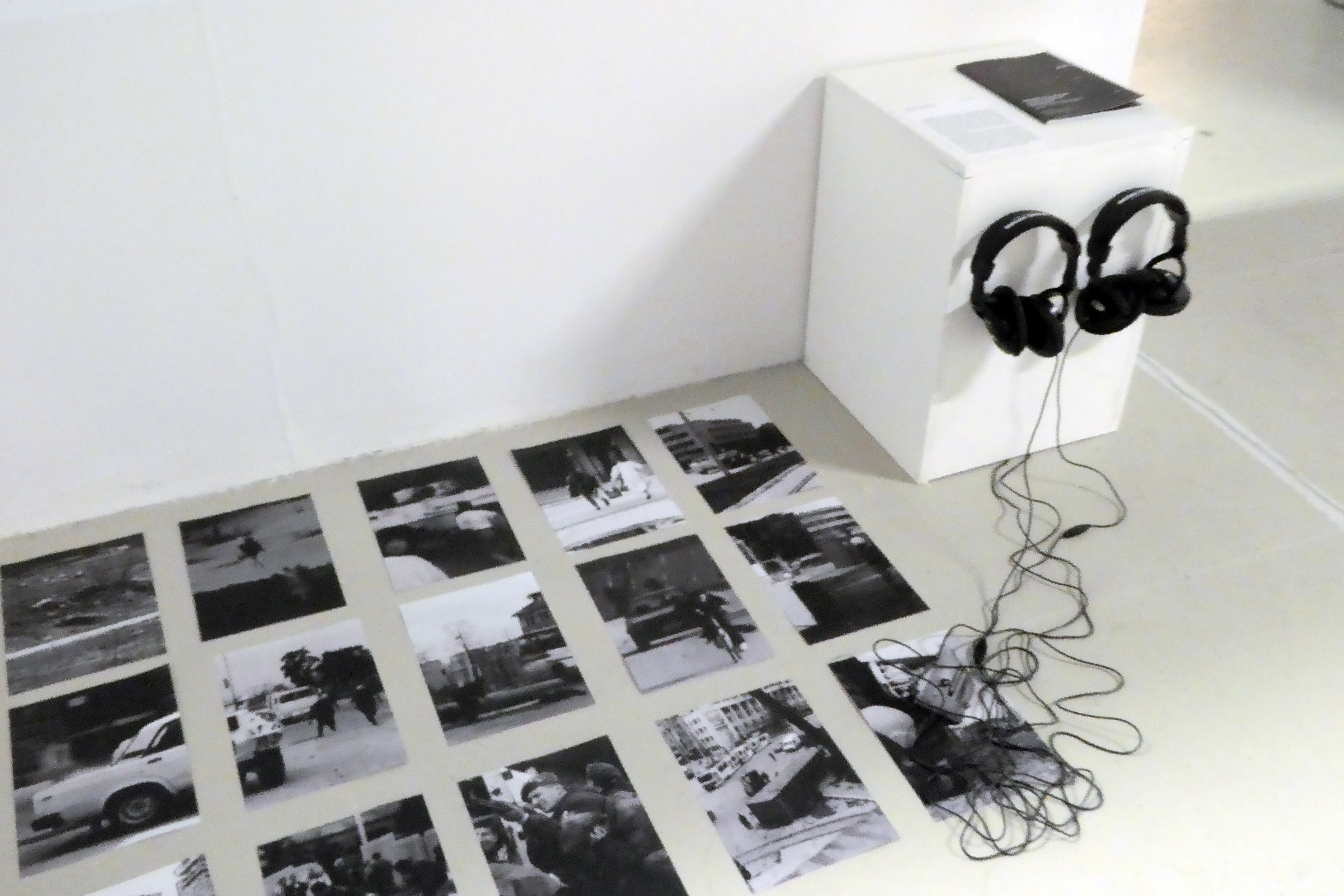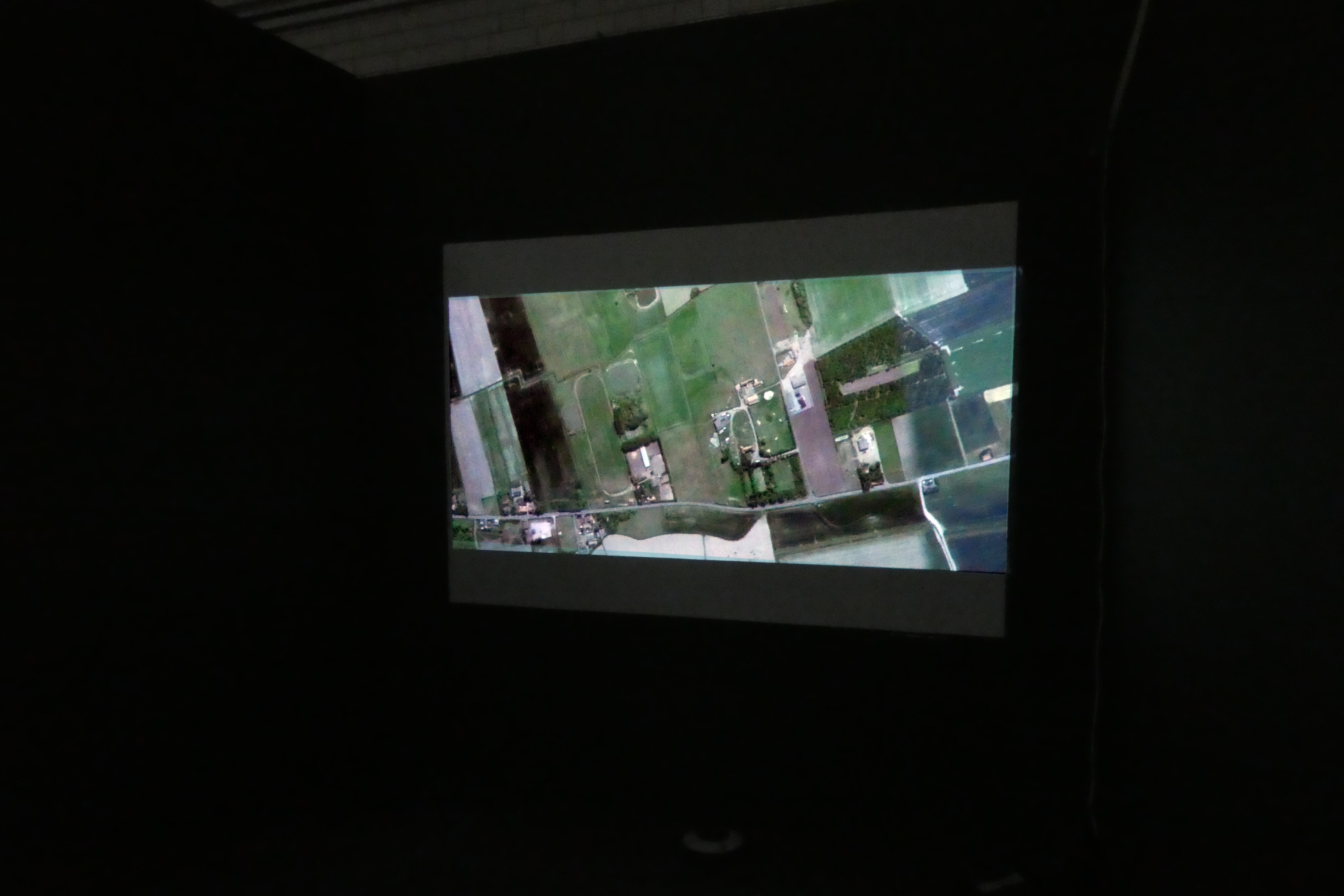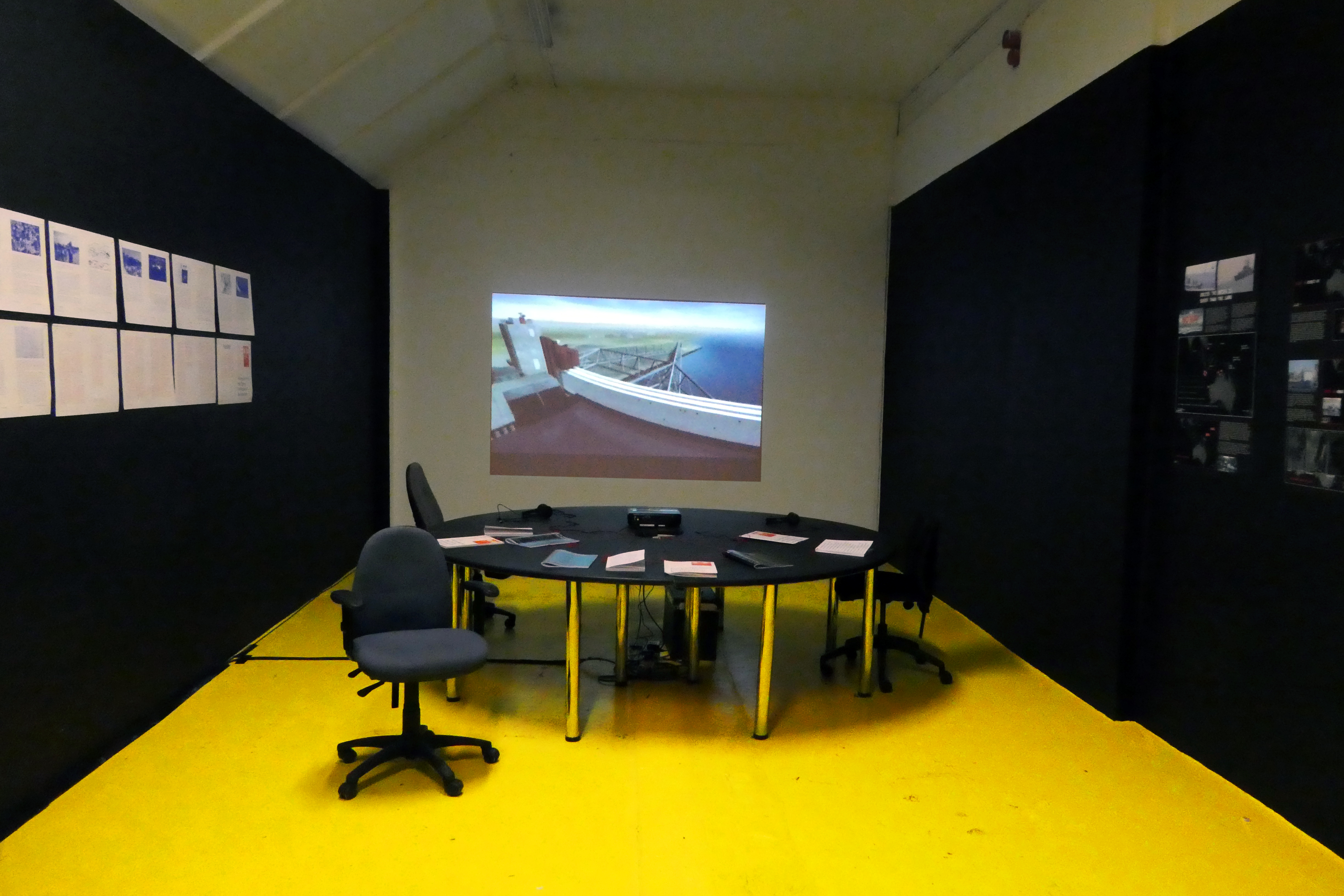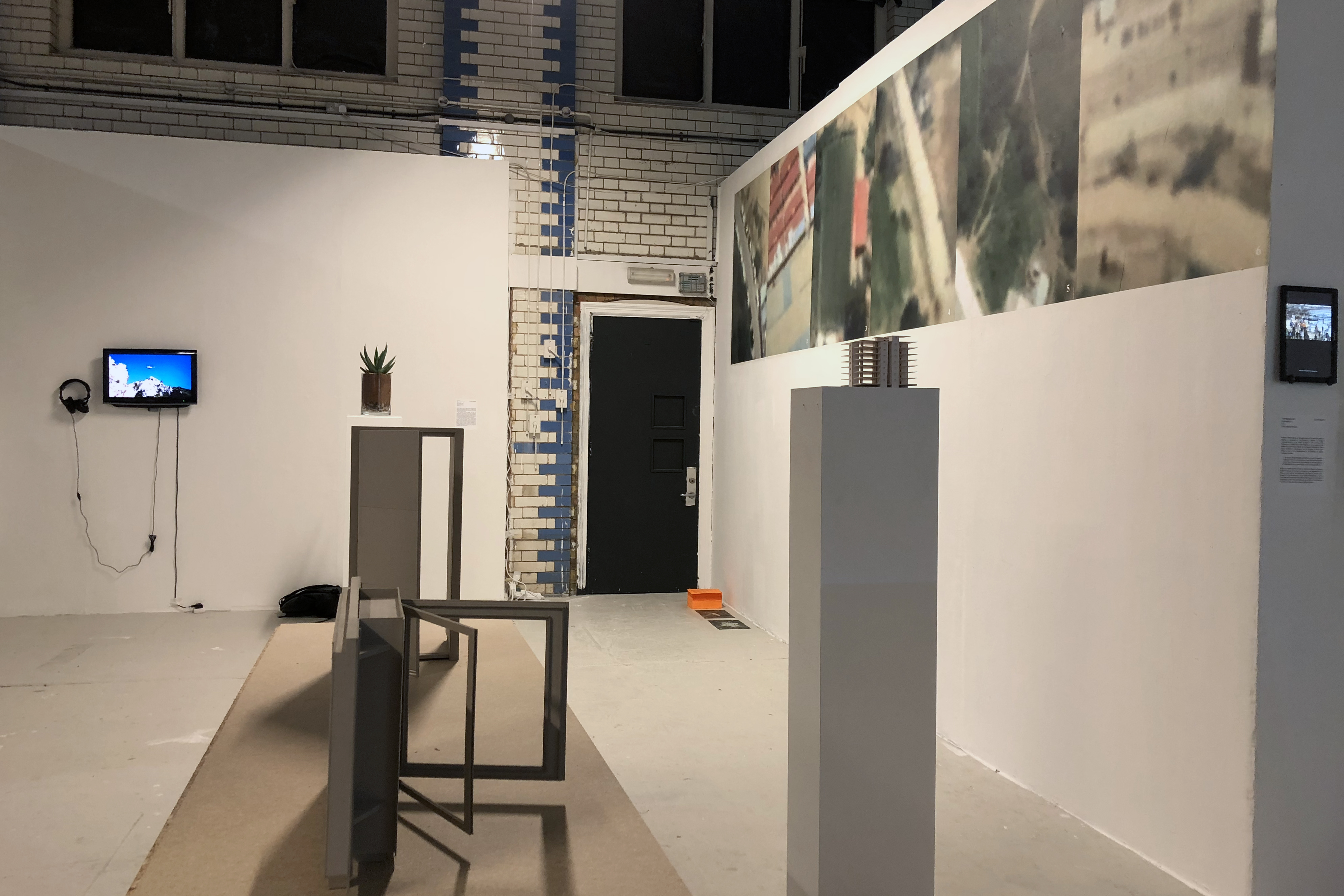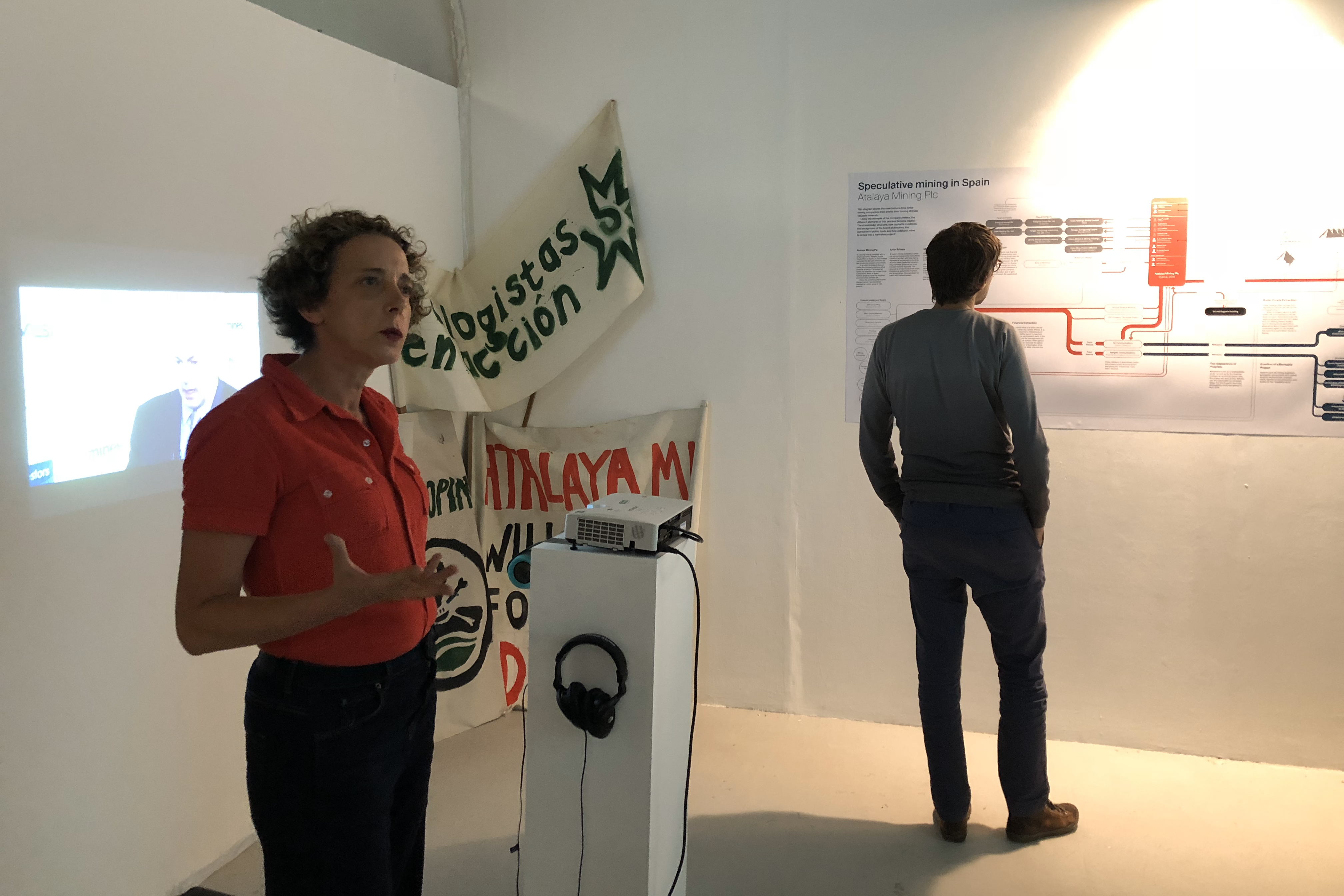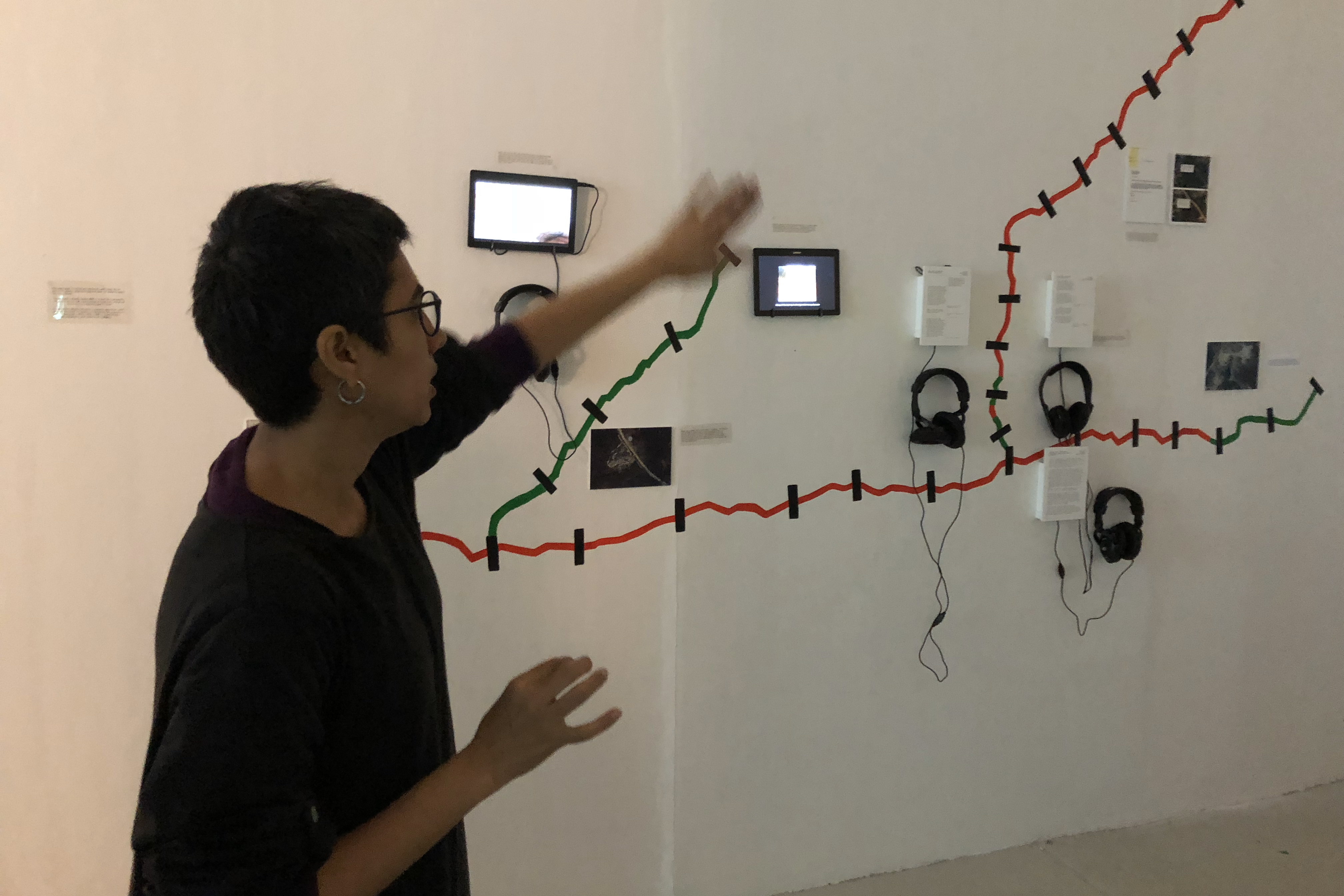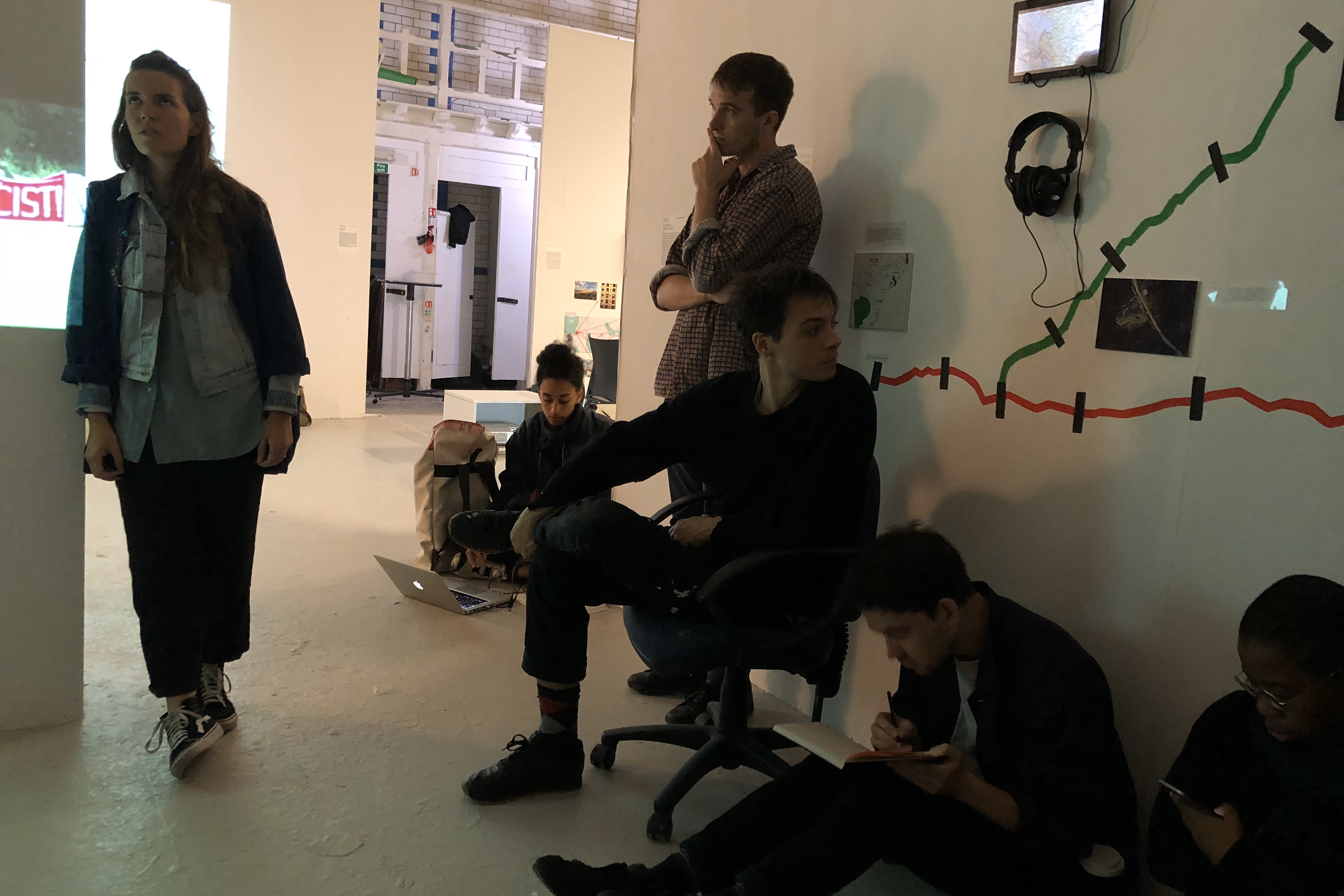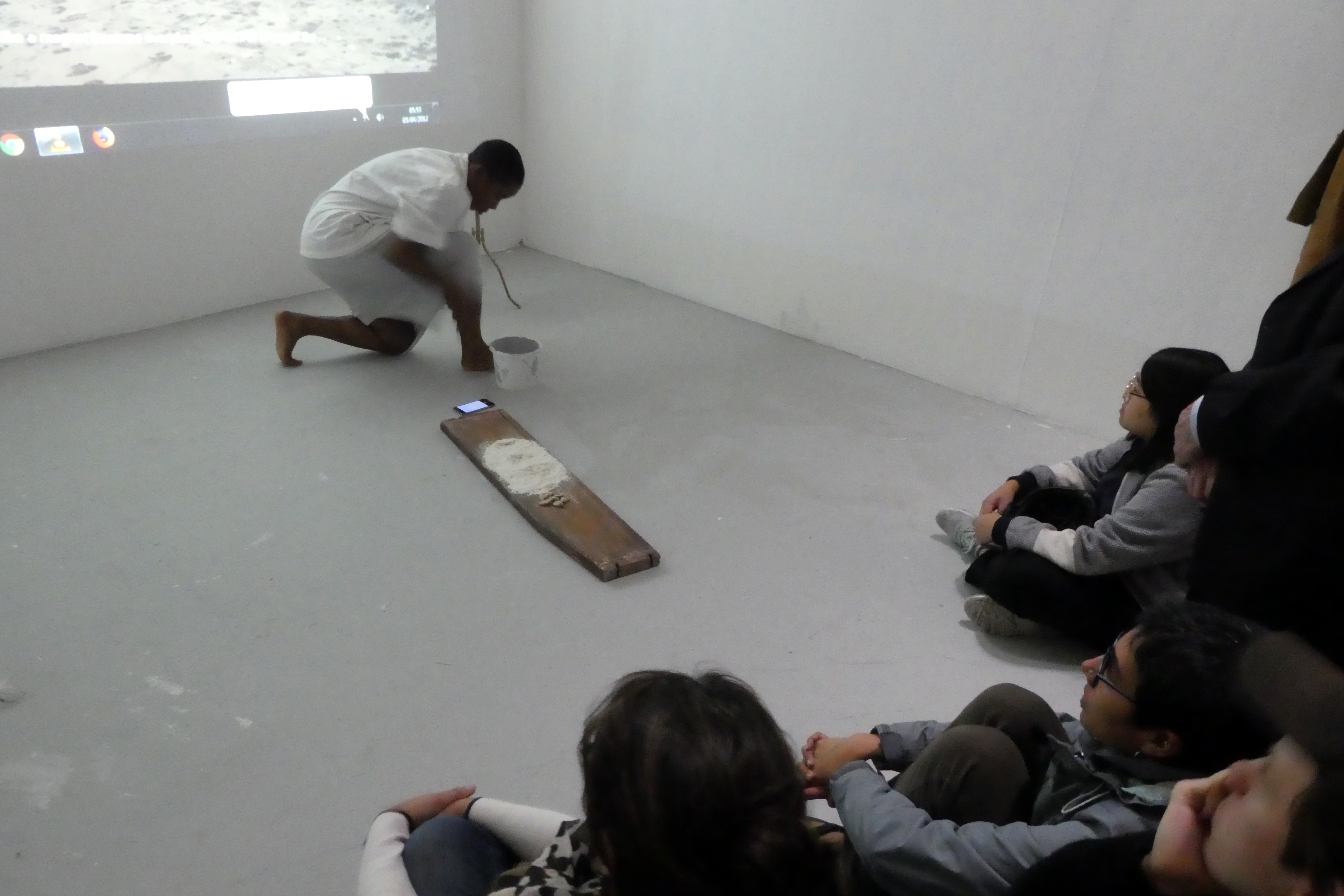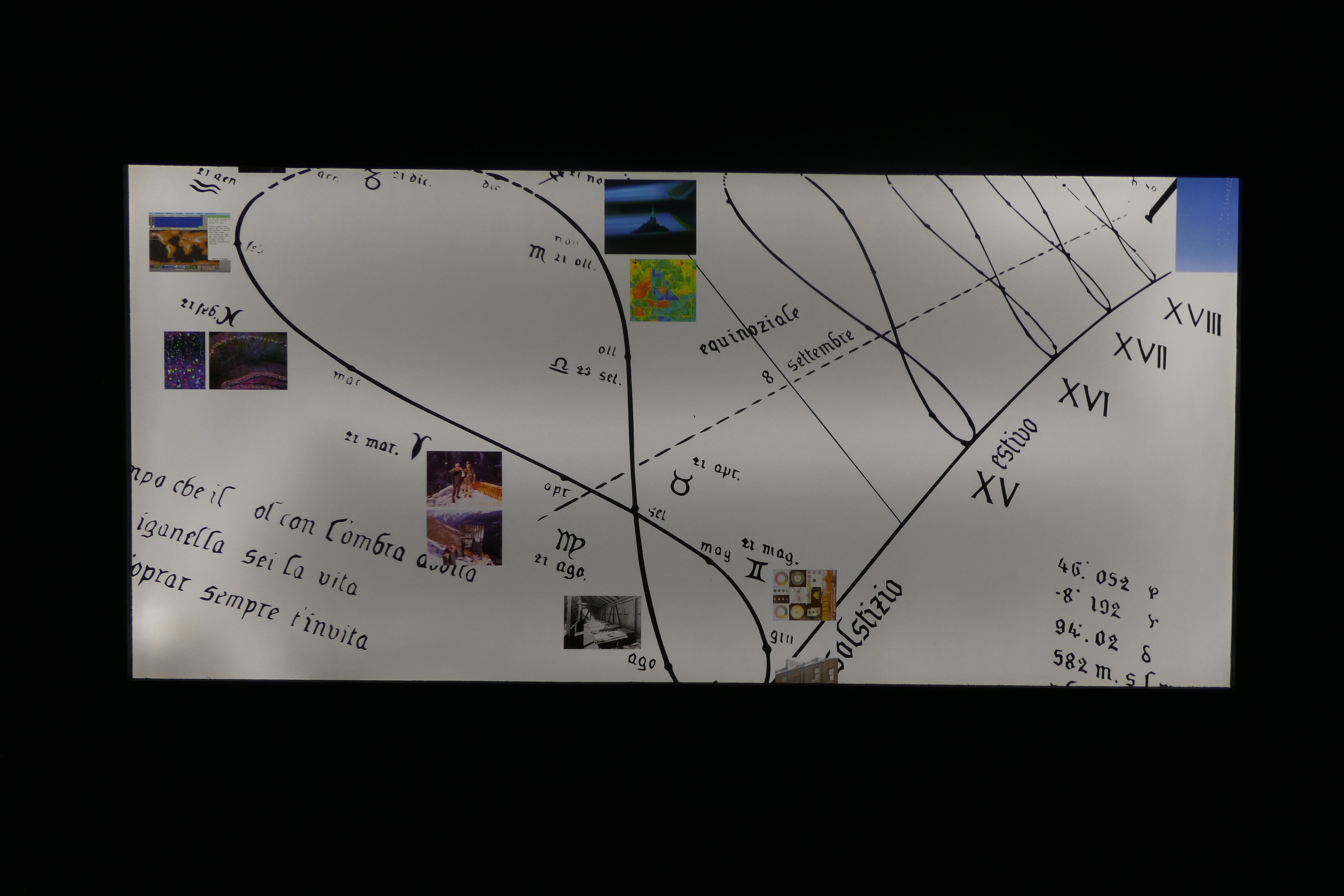Interruptions
MA Research Exhibition
2024
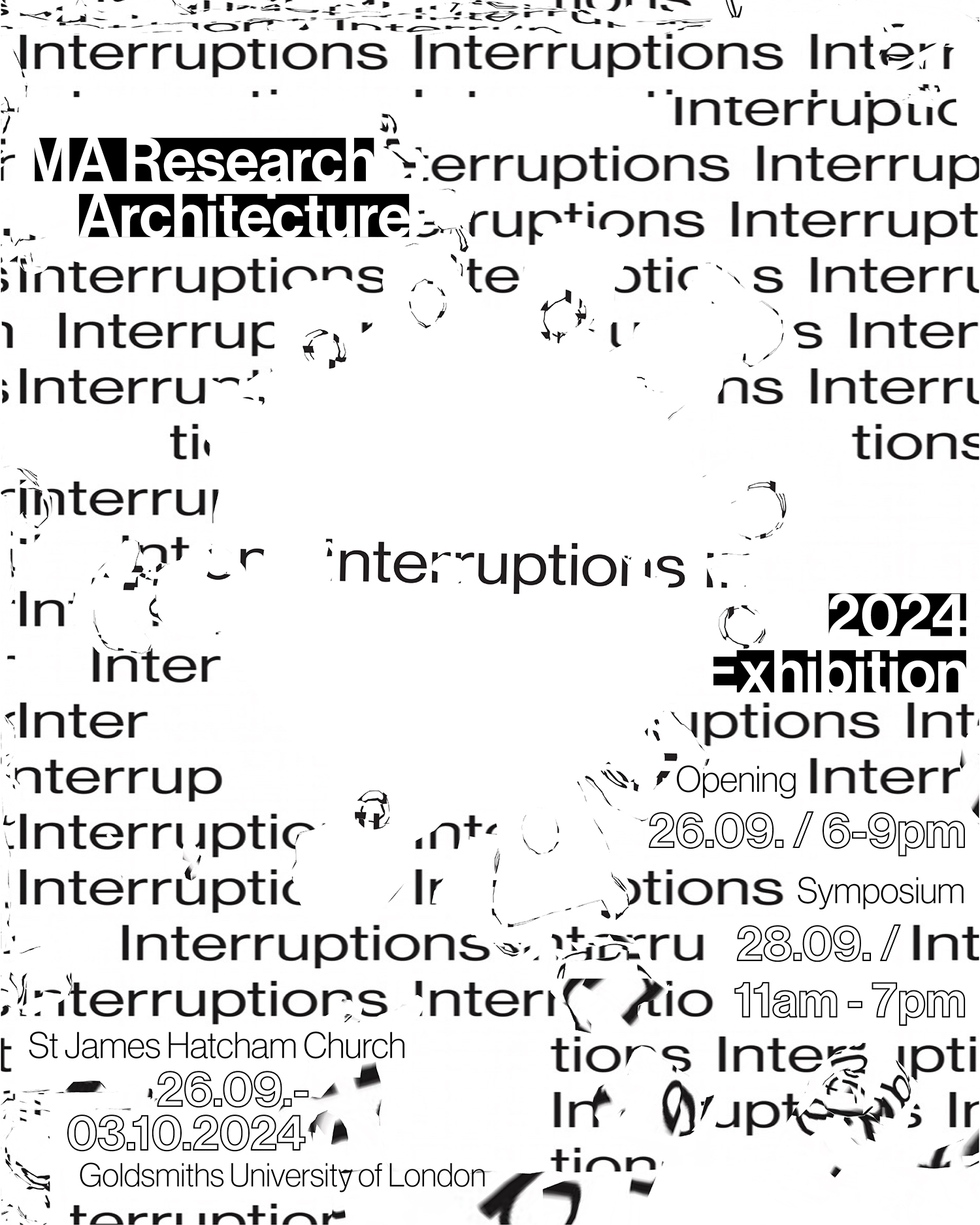
This year has been full of interruptions.
Strikes, walkouts, and unfolding crises both near and far have marked our progression through the academic calendar. Studies were paused as we joined protests against the genocide in Gaza, censorship in Germany, and far-right violence in the UK. While this exhibition was being conceived, Goldsmiths staff were on strike as more than 130 members of faculty faced layoffs from an irresponsible restructuring programme. The sites of these struggles became fields of study in their own right, informing individual research and the formation of new activist groups. Pedagogy became practice; practice became pedagogy.
For the philosopher Henri Bergson, time could not be measured in individual moments, as they pass too quickly to be quantified. Instead, we might read the passage of time in the ways that it changes us. The interruptions that cast their shadows across the year were sometimes agonising yet proved formative to our evolution. Confronted by seemingly perpetual crises, we sought new modes of thinking and being in the breach.
Interruptions foregrounds the earth-shattering geopolitical events, academic milestones, and traumas both personal and collective that have kept time throughout this unconventional year. These connect New Cross to distant parts of the globe, just as this exhibition seeks to forge networks of solidarity across time and space. Barriers and spatial disjunctures point towards other entryways through which new relationships can be drawn and connections made. Gaps in knowledge can be sources of evidence. This is a space of your own making, just as this year has been of ours.
Some roads may lead nowhere. The accompanying publication Dead Ends follows paths we have travelled down without necessarily reaching their intended destination. These journeys have been counterintuitively productive: not all dead ends are interruptions, and conversely, not all interruptions are dead ends.
Download Dead Ends publication here
See 2024 MA research here
Strikes, walkouts, and unfolding crises both near and far have marked our progression through the academic calendar. Studies were paused as we joined protests against the genocide in Gaza, censorship in Germany, and far-right violence in the UK. While this exhibition was being conceived, Goldsmiths staff were on strike as more than 130 members of faculty faced layoffs from an irresponsible restructuring programme. The sites of these struggles became fields of study in their own right, informing individual research and the formation of new activist groups. Pedagogy became practice; practice became pedagogy.
For the philosopher Henri Bergson, time could not be measured in individual moments, as they pass too quickly to be quantified. Instead, we might read the passage of time in the ways that it changes us. The interruptions that cast their shadows across the year were sometimes agonising yet proved formative to our evolution. Confronted by seemingly perpetual crises, we sought new modes of thinking and being in the breach.
Interruptions foregrounds the earth-shattering geopolitical events, academic milestones, and traumas both personal and collective that have kept time throughout this unconventional year. These connect New Cross to distant parts of the globe, just as this exhibition seeks to forge networks of solidarity across time and space. Barriers and spatial disjunctures point towards other entryways through which new relationships can be drawn and connections made. Gaps in knowledge can be sources of evidence. This is a space of your own making, just as this year has been of ours.
Some roads may lead nowhere. The accompanying publication Dead Ends follows paths we have travelled down without necessarily reaching their intended destination. These journeys have been counterintuitively productive: not all dead ends are interruptions, and conversely, not all interruptions are dead ends.
Download Dead Ends publication here
See 2024 MA research here
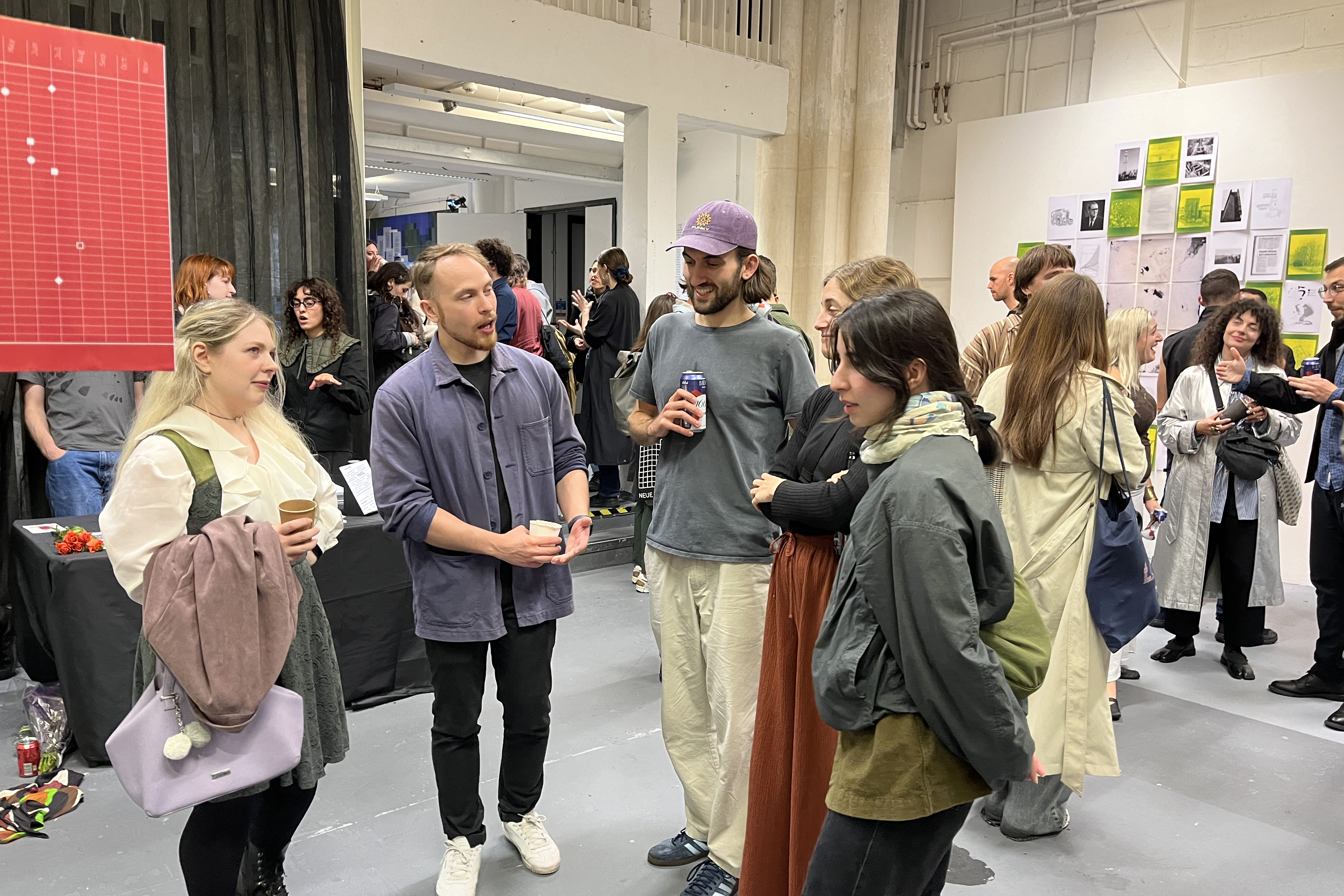
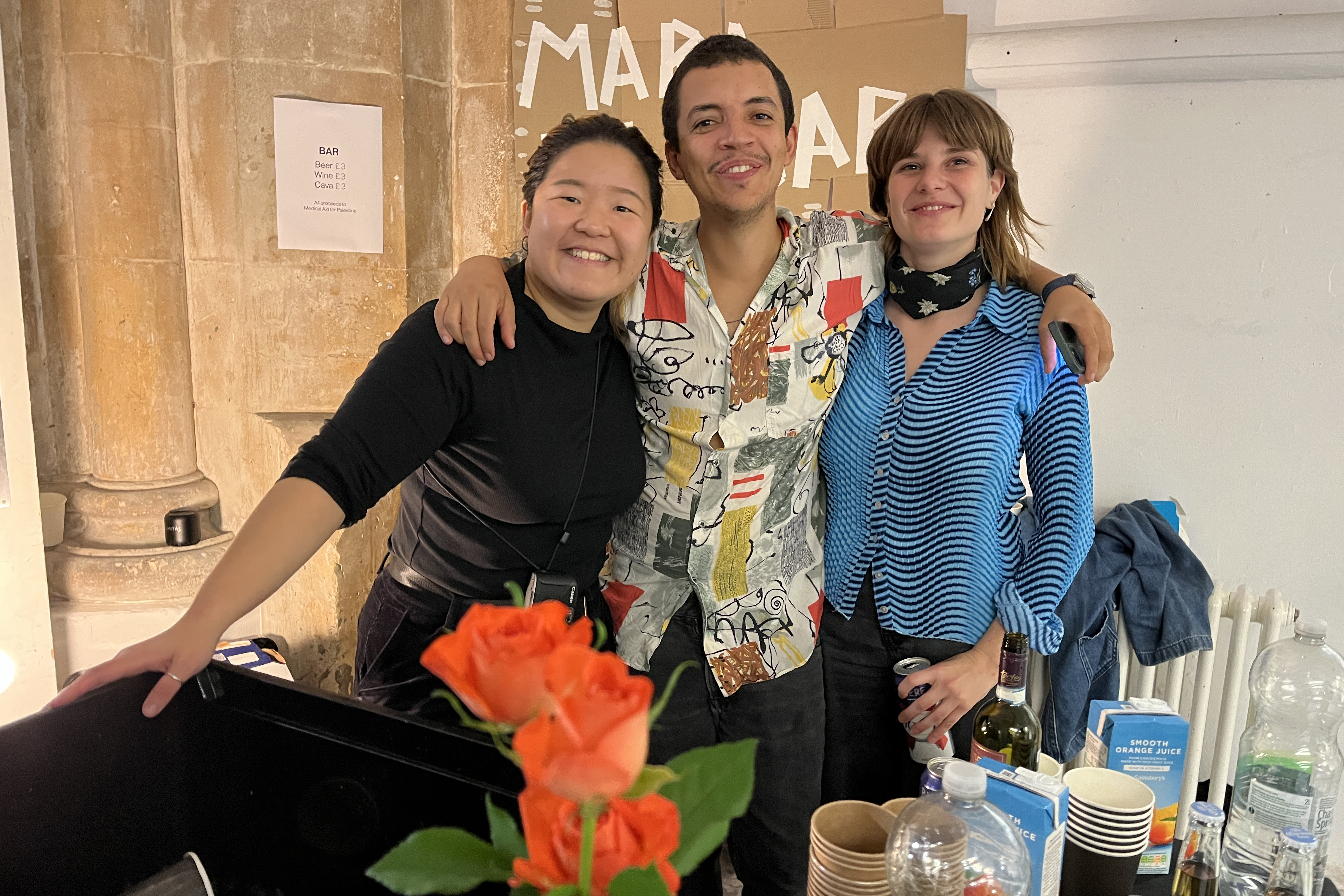
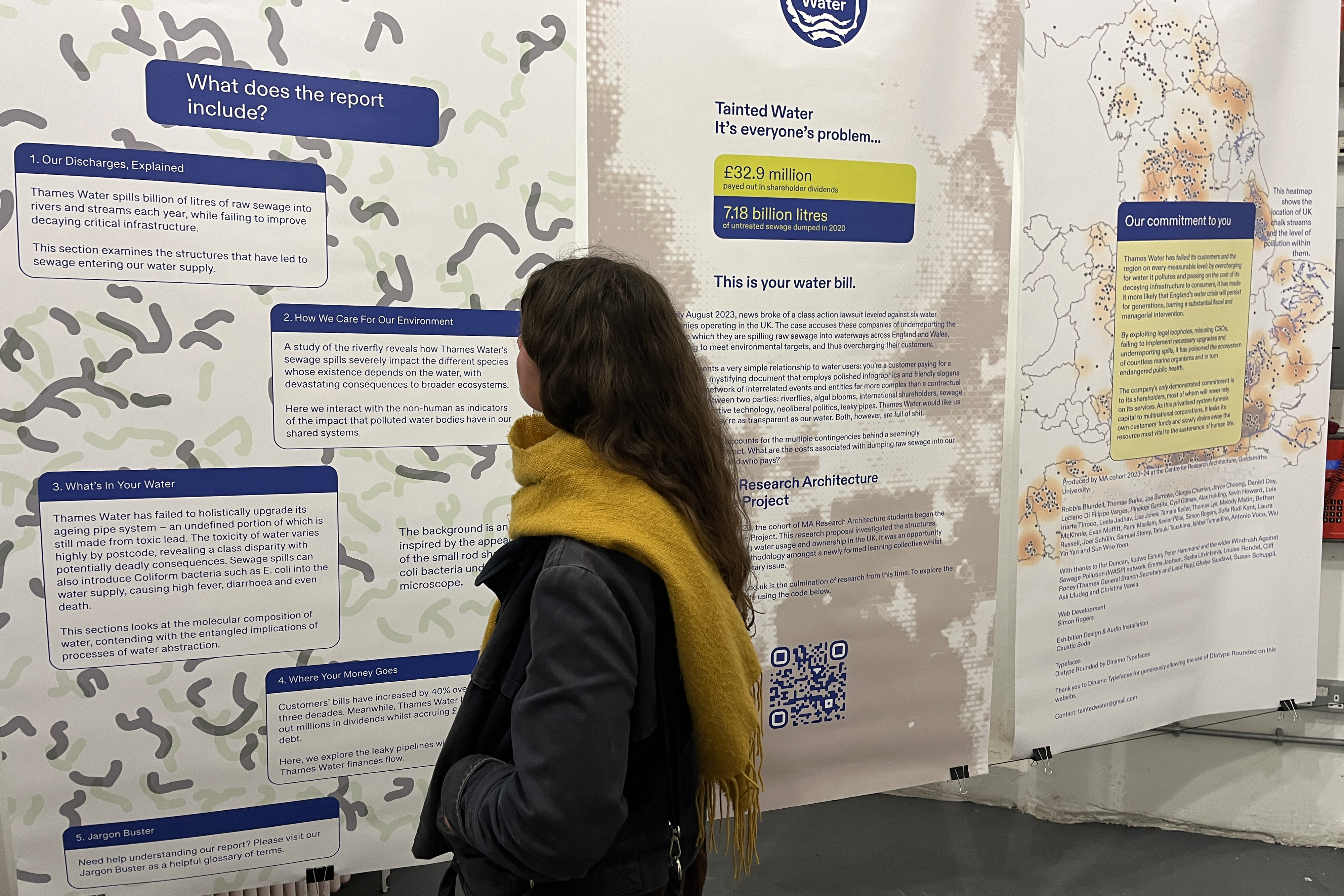
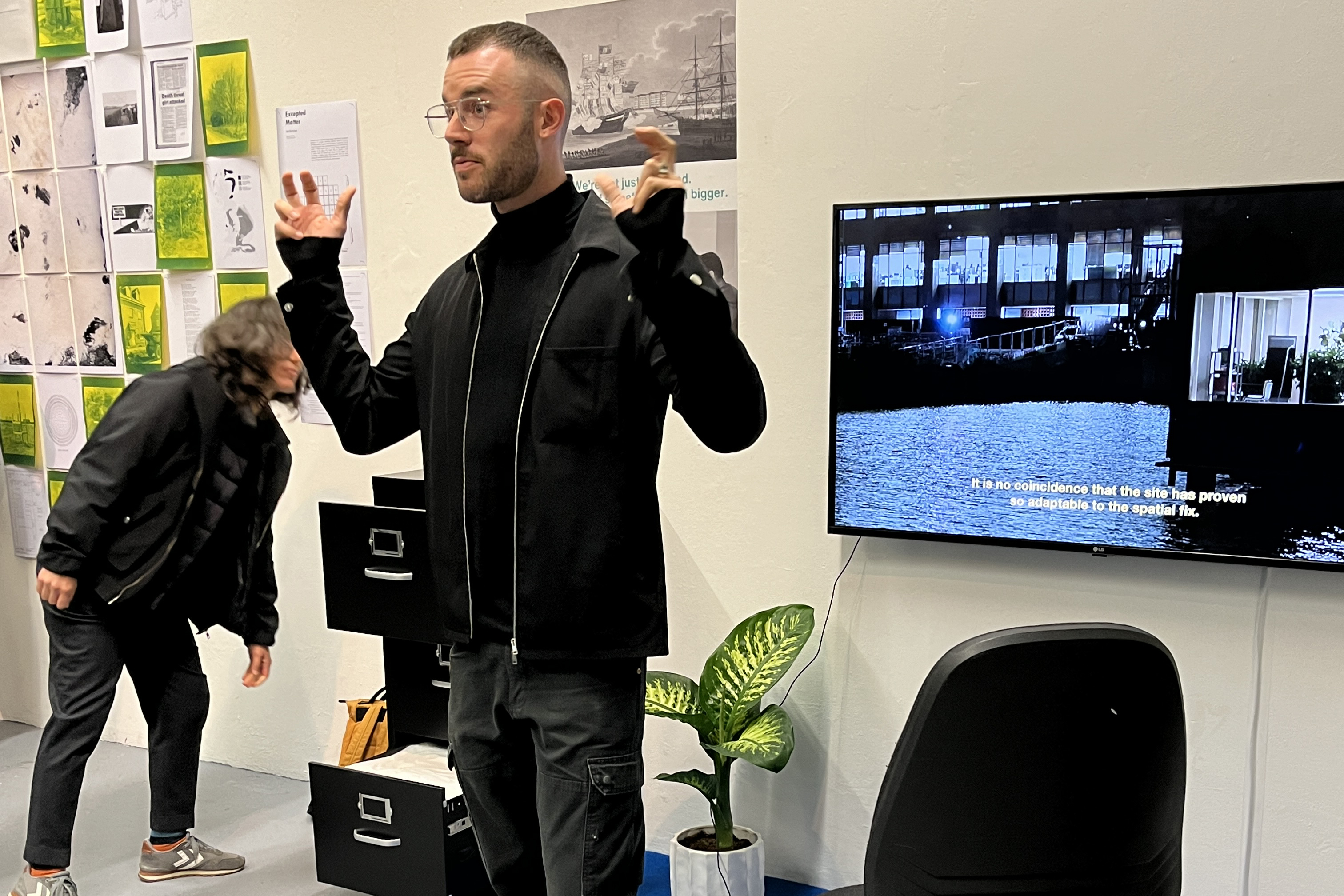
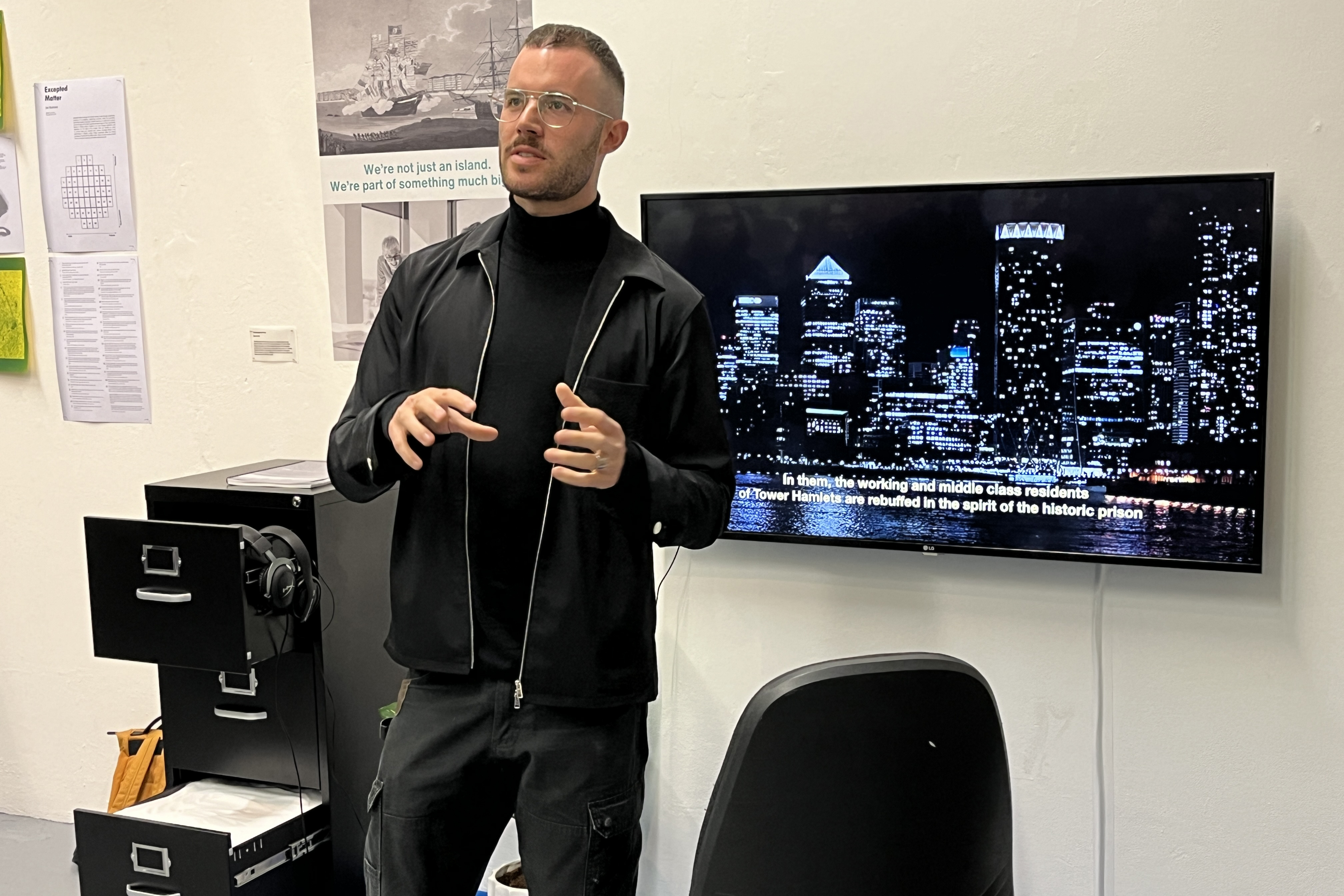
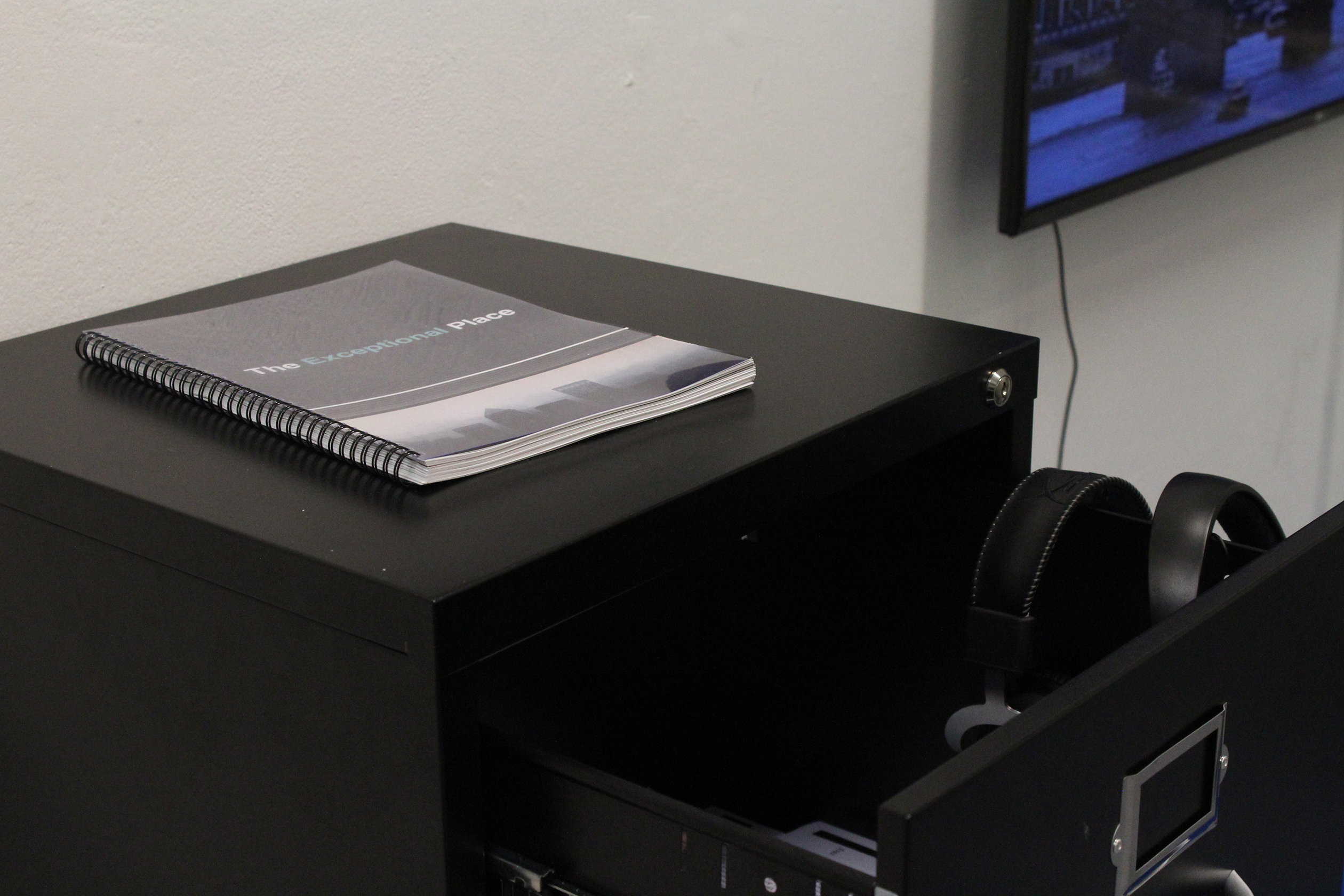

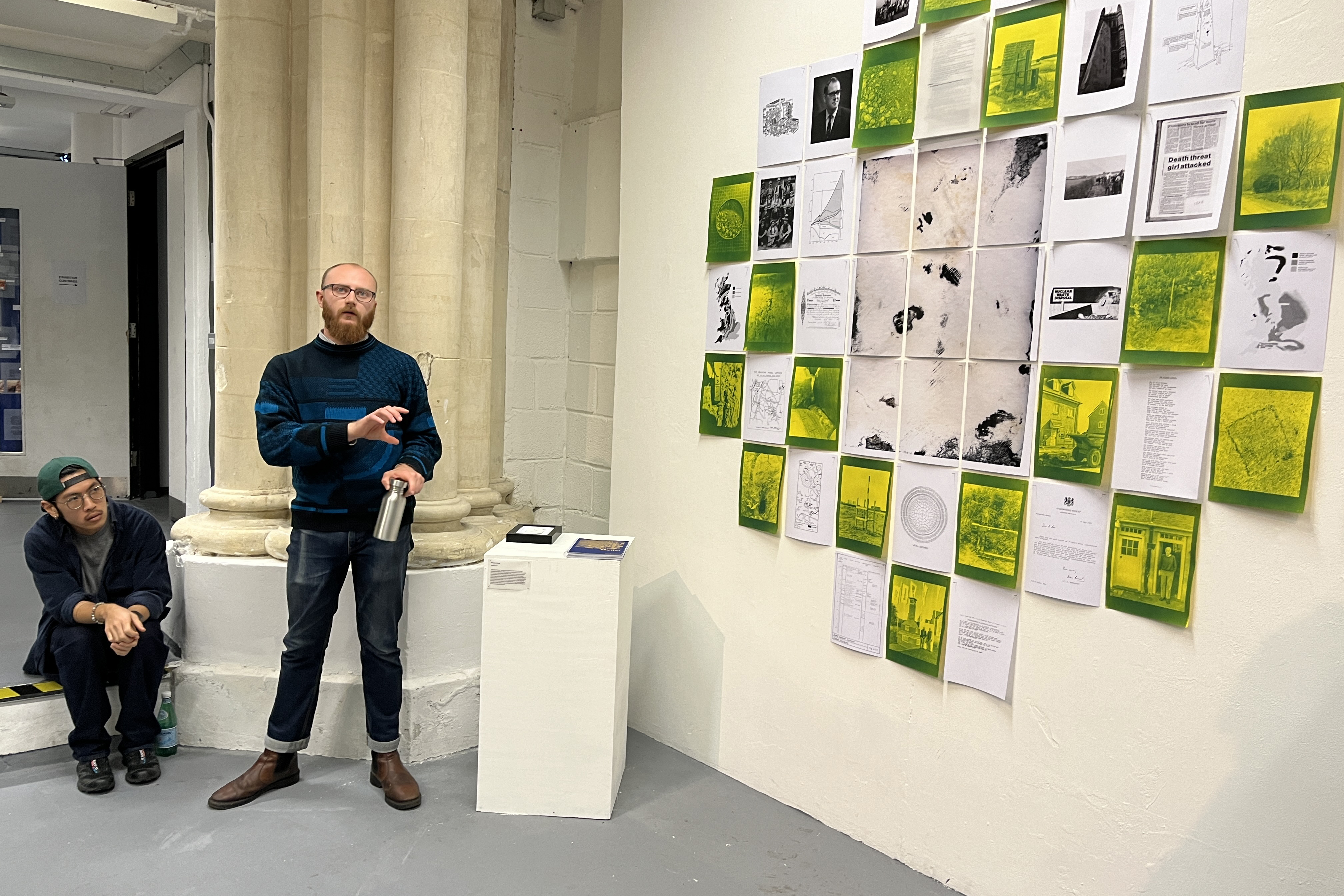
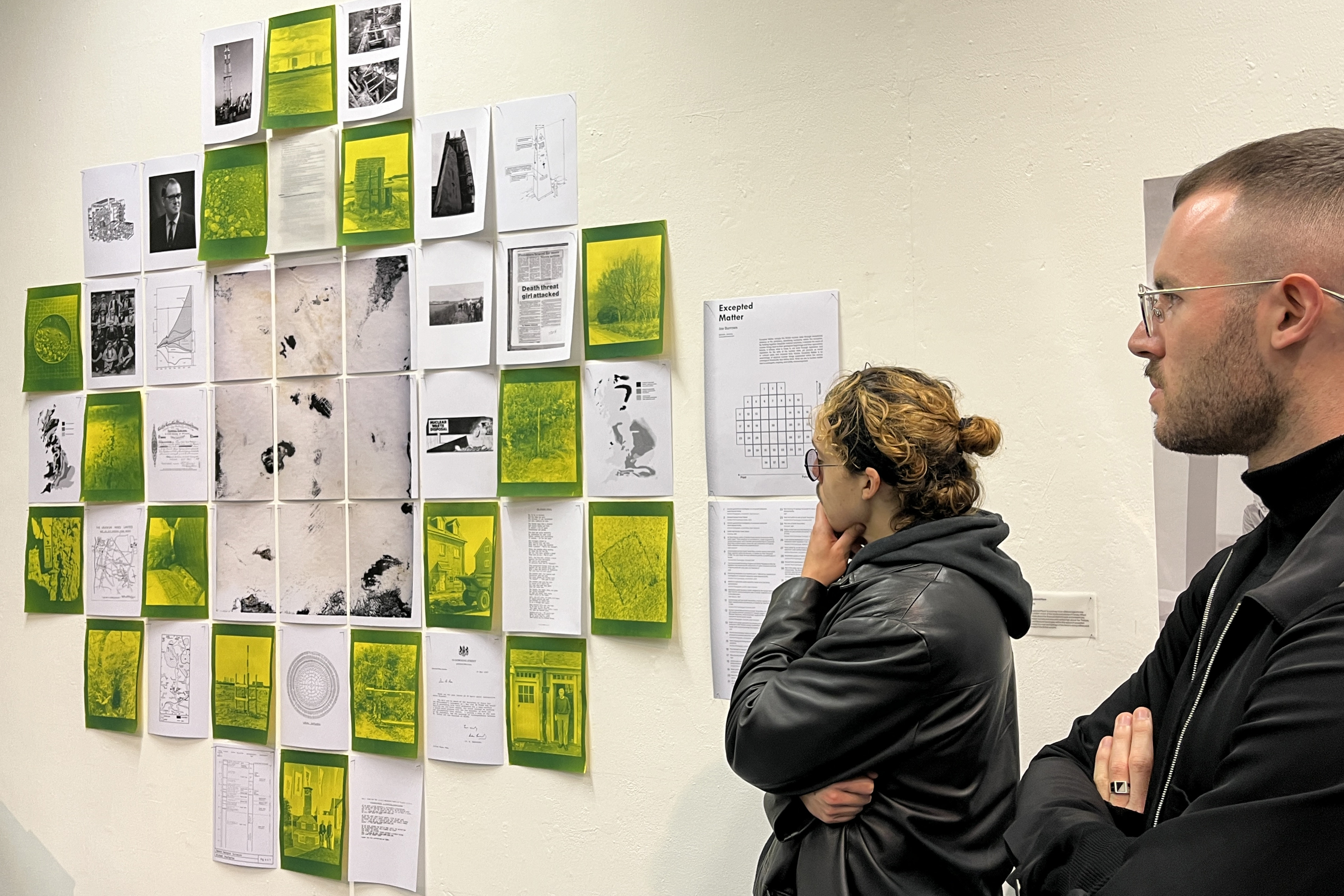
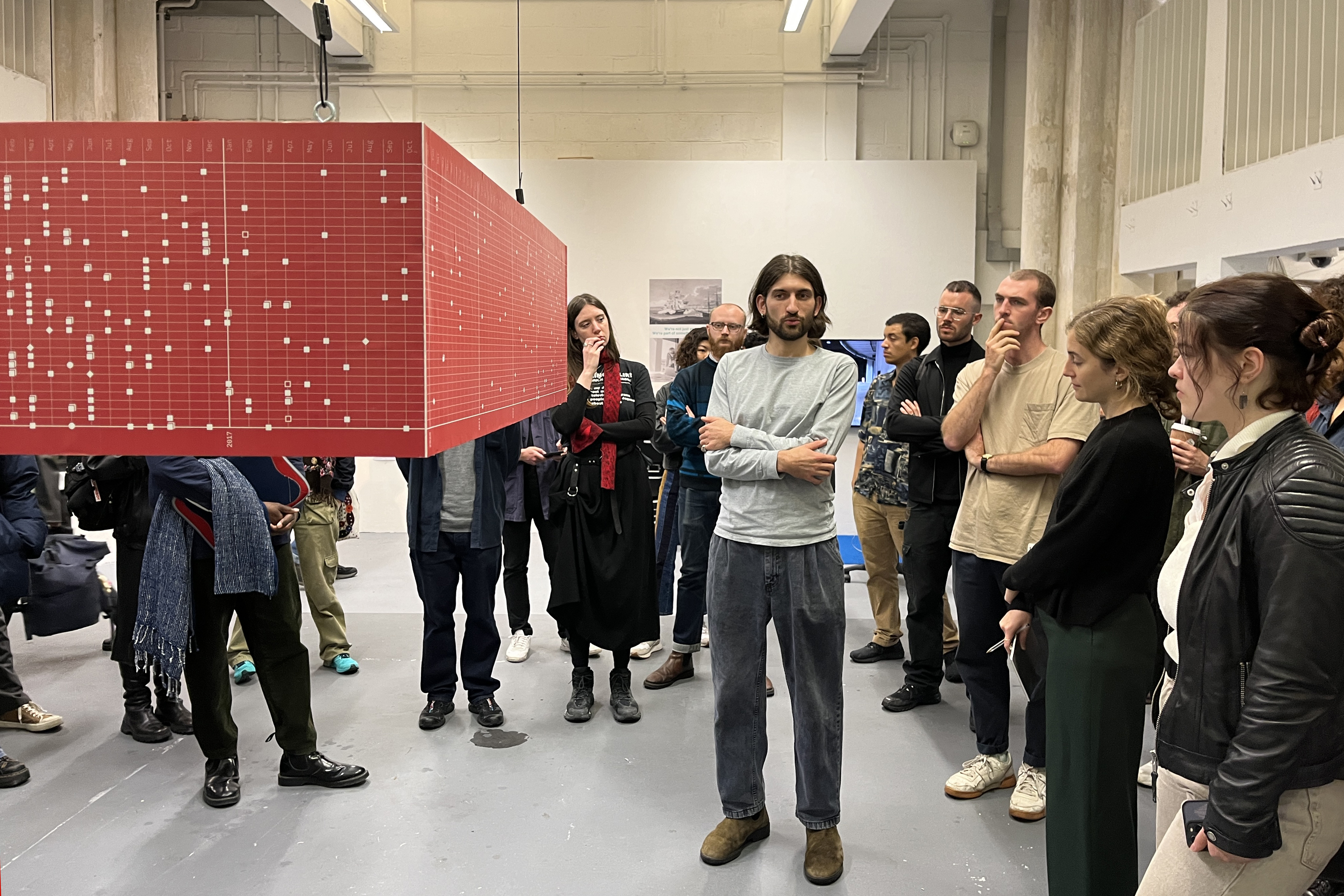
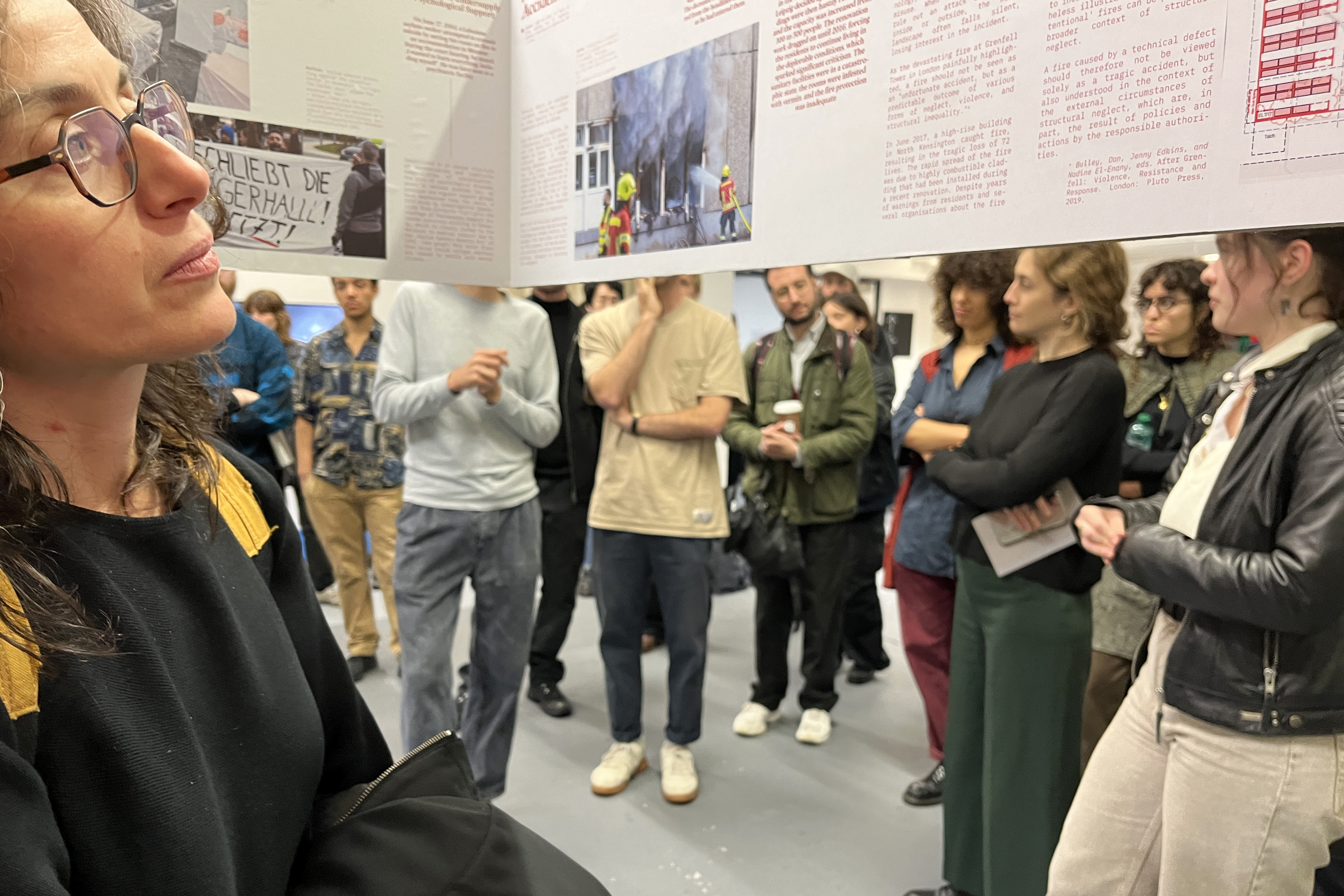
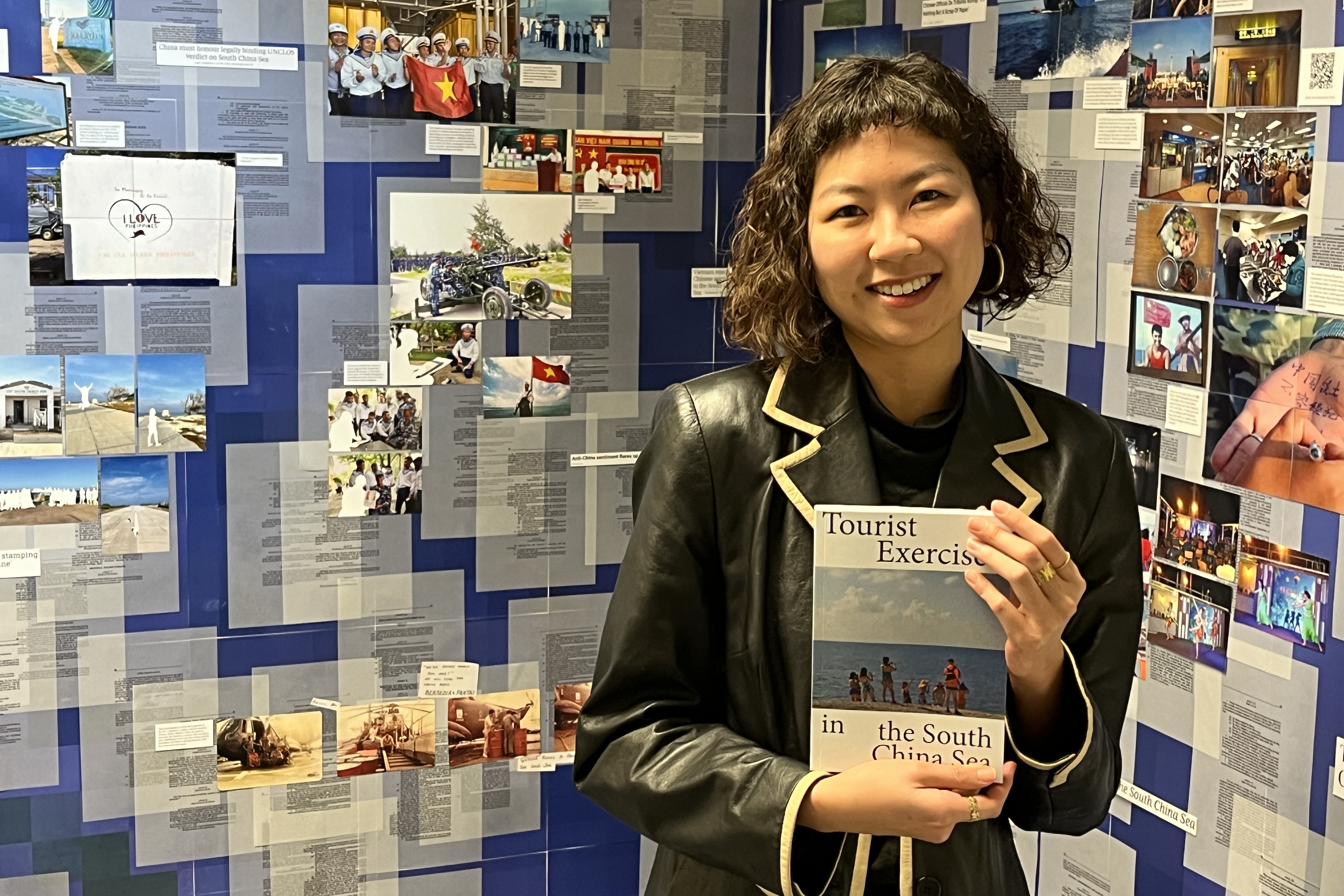
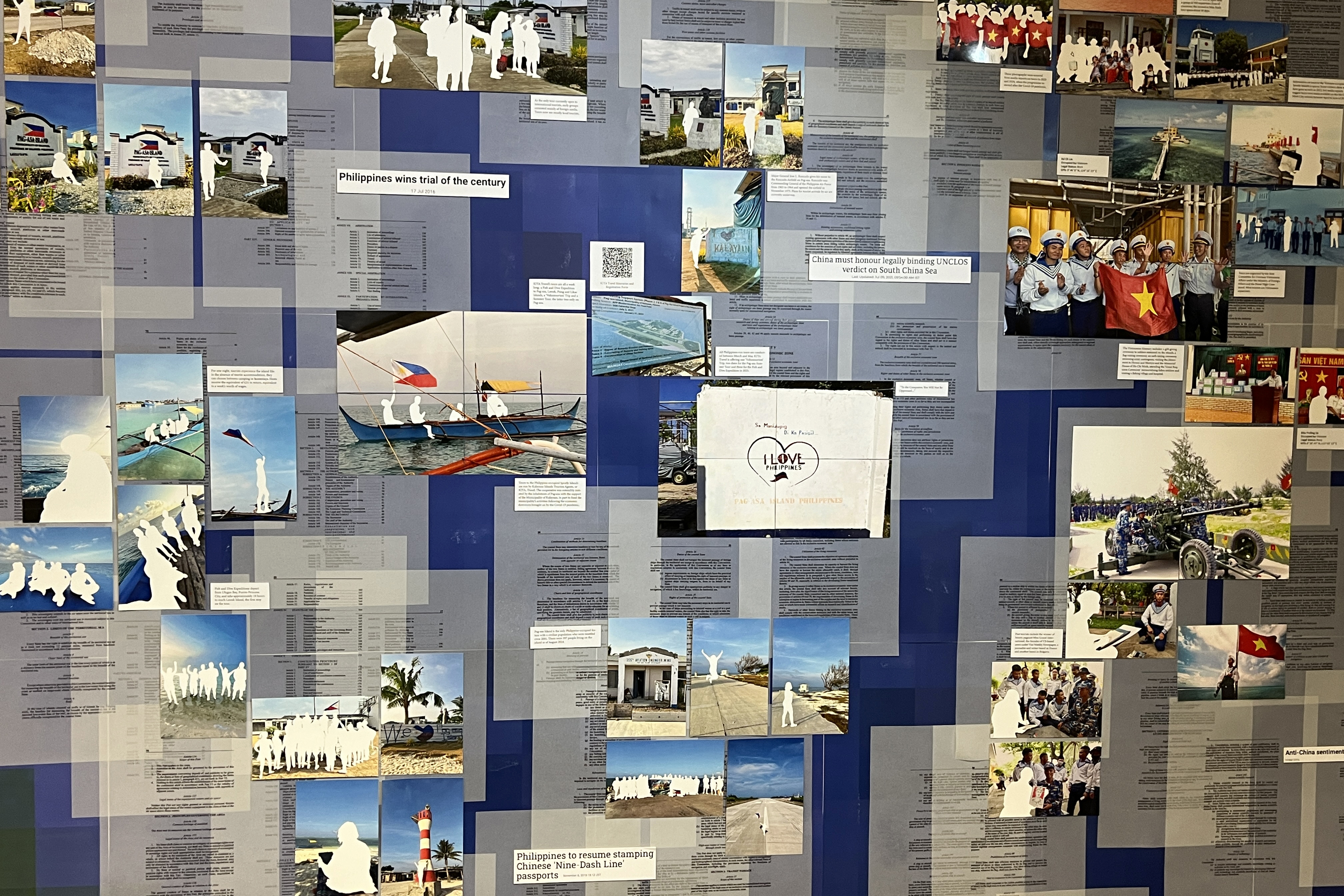
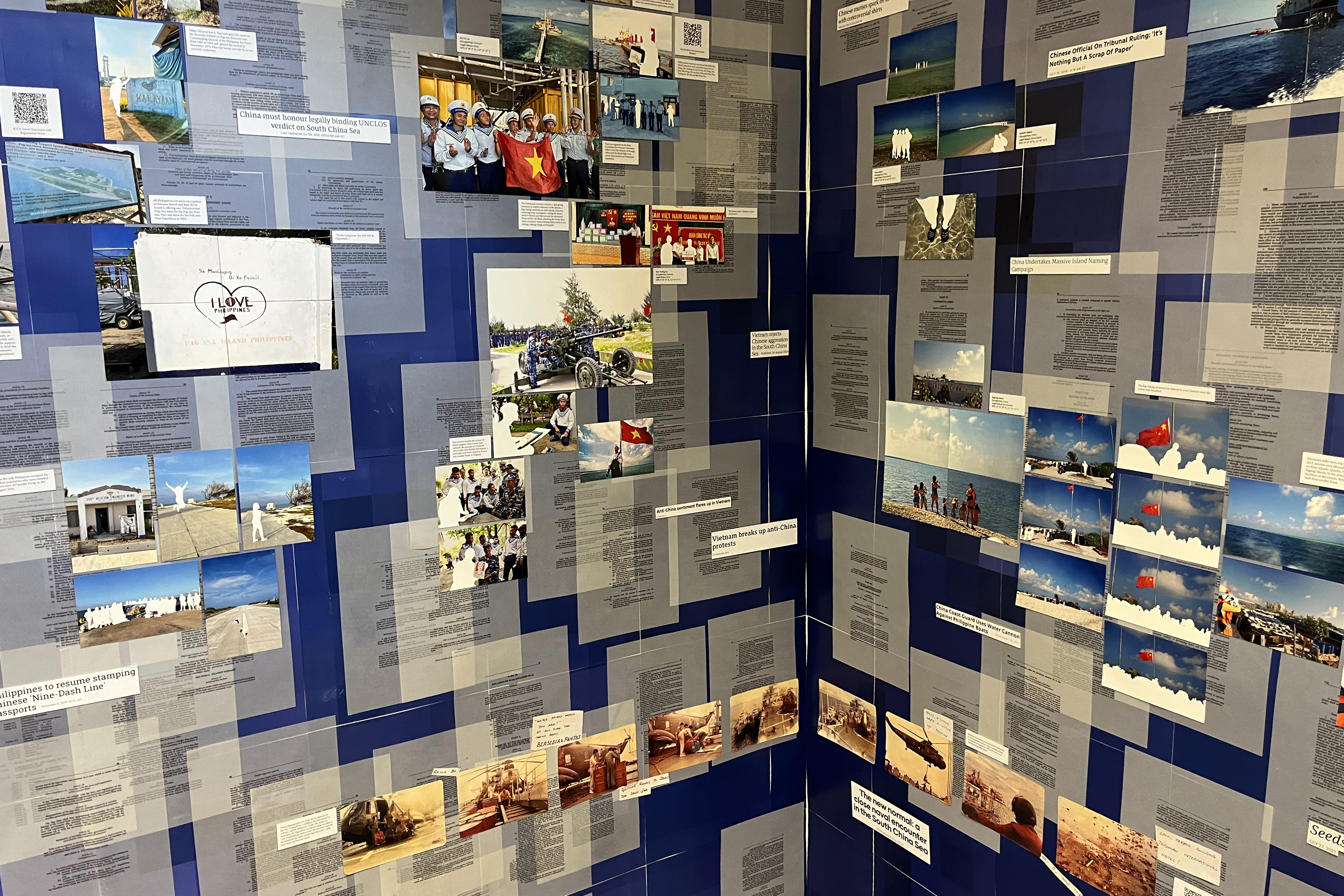
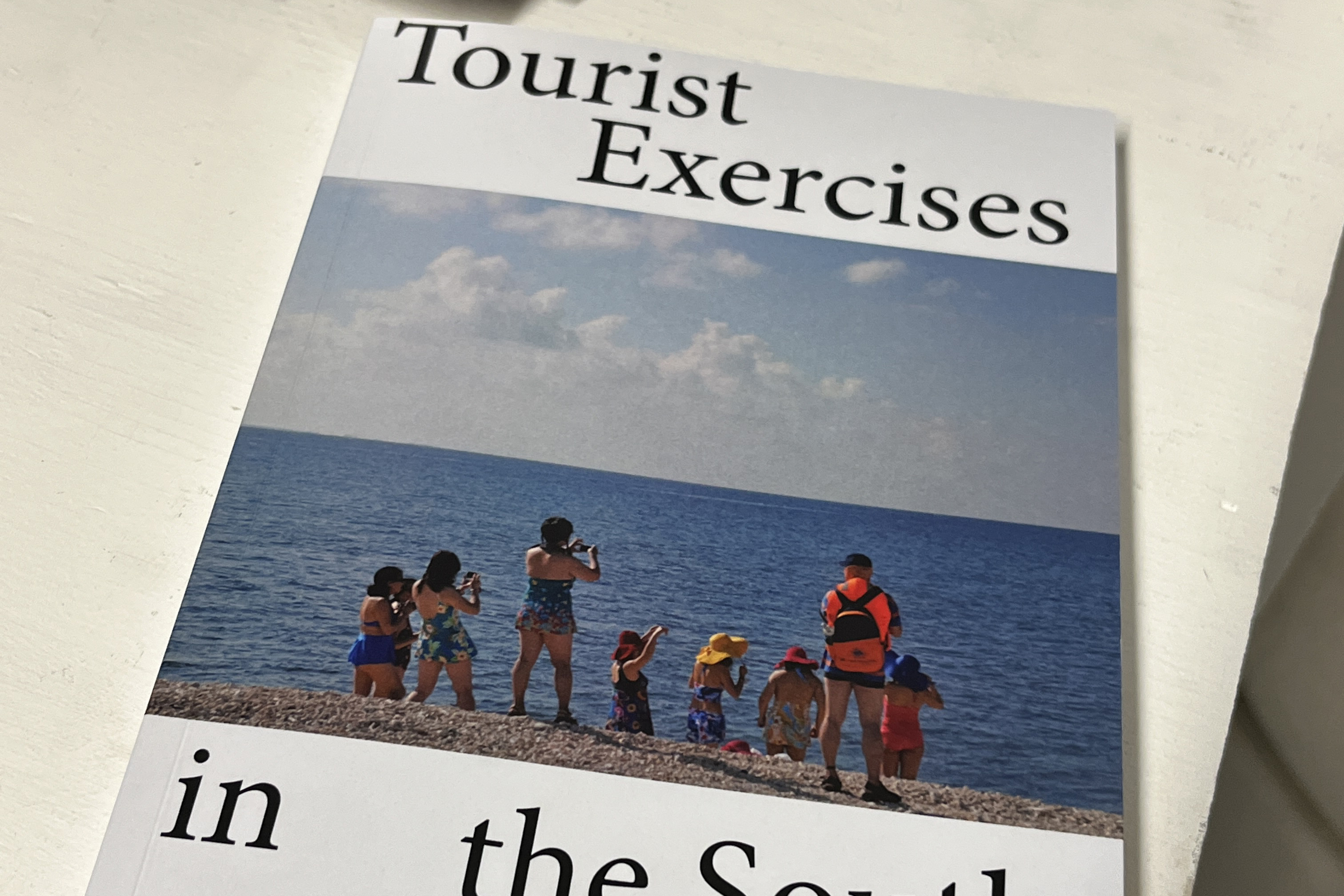
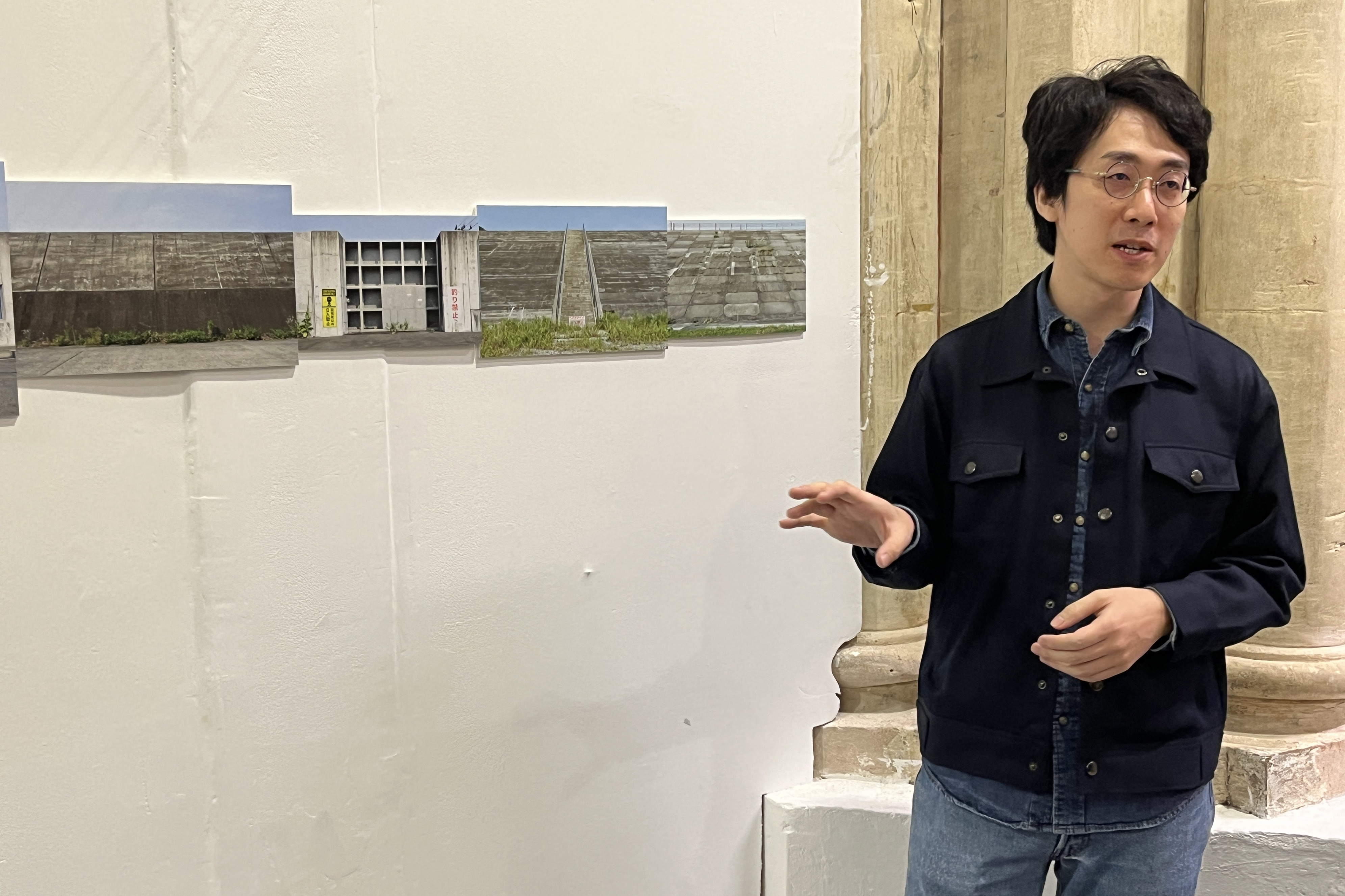

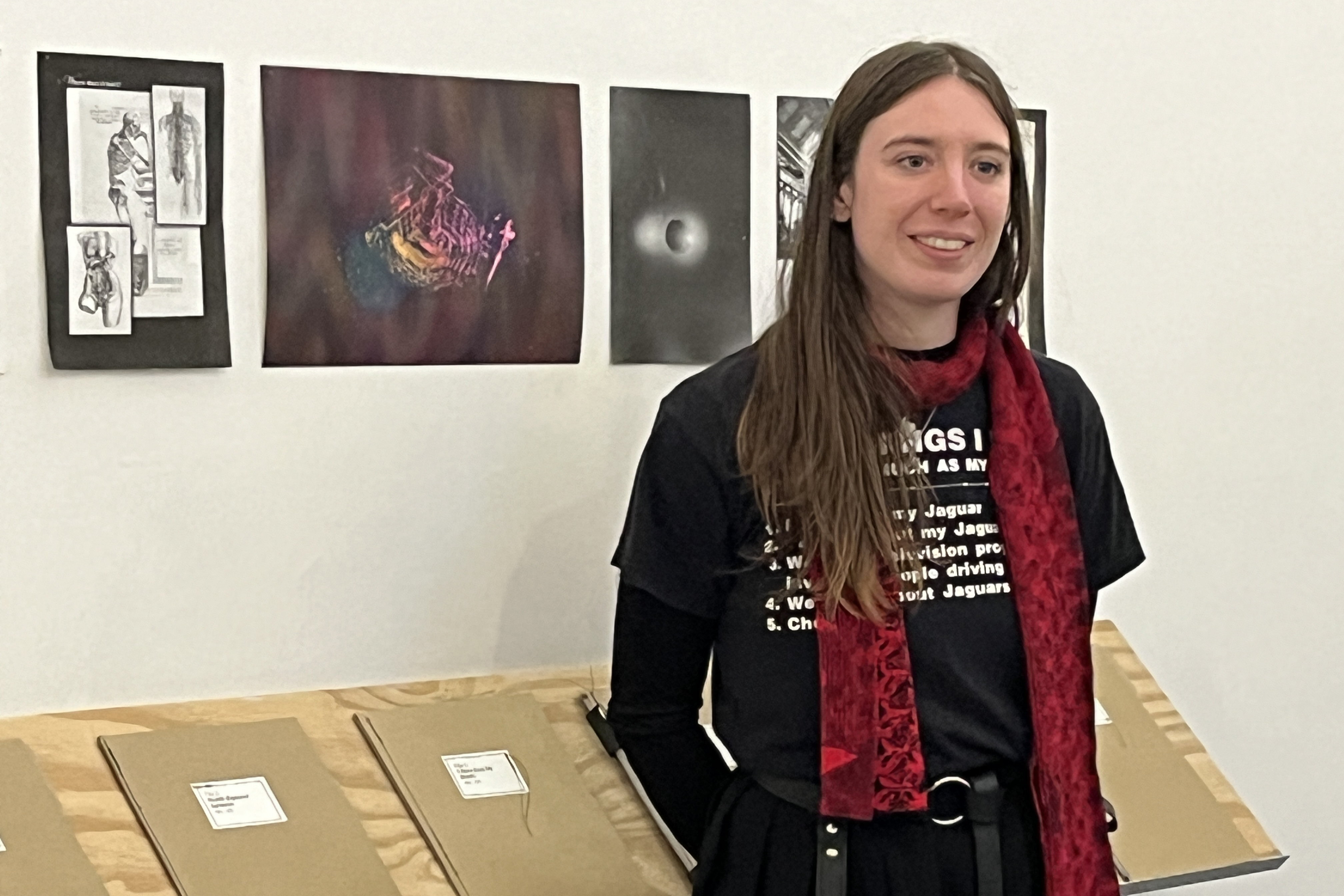
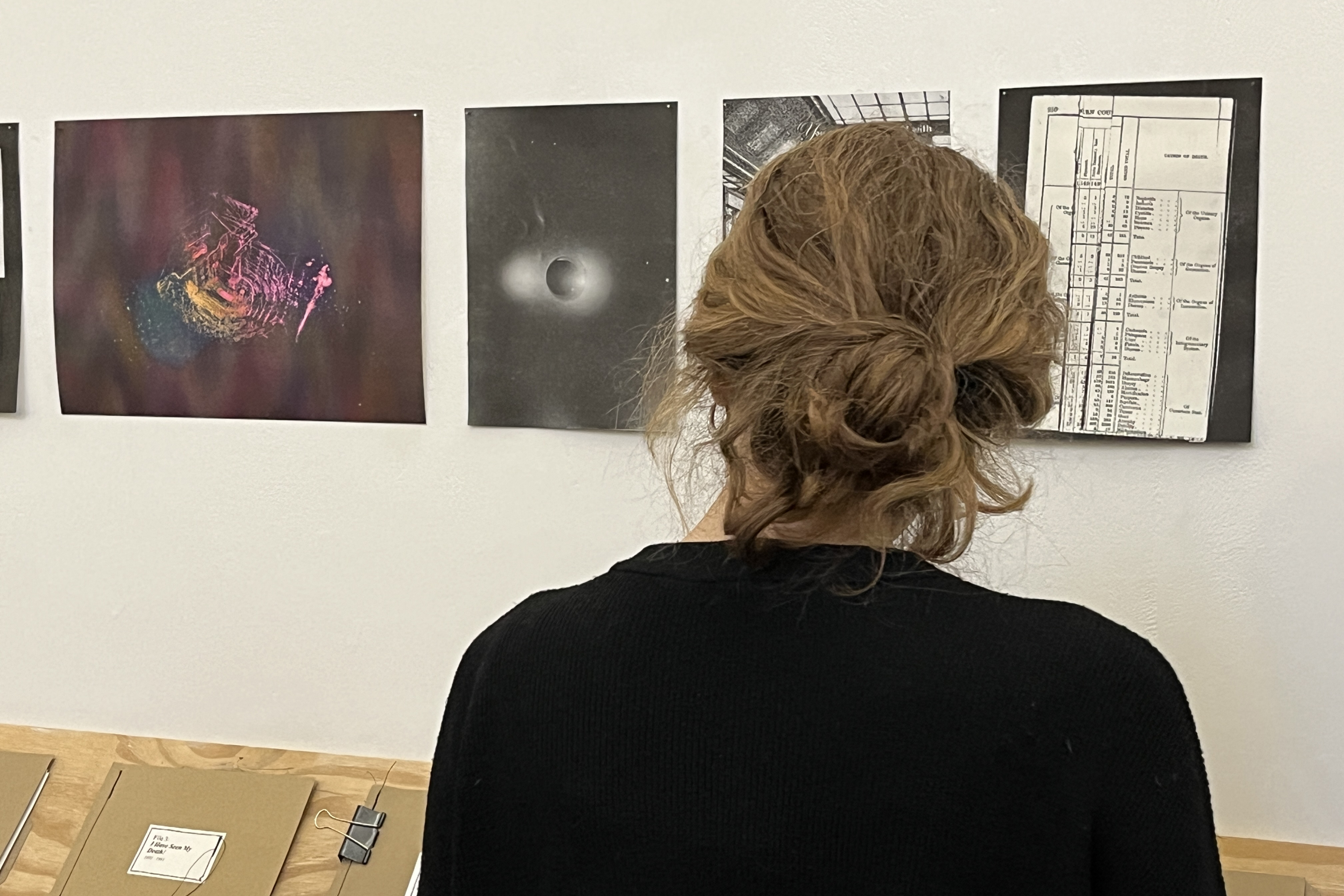
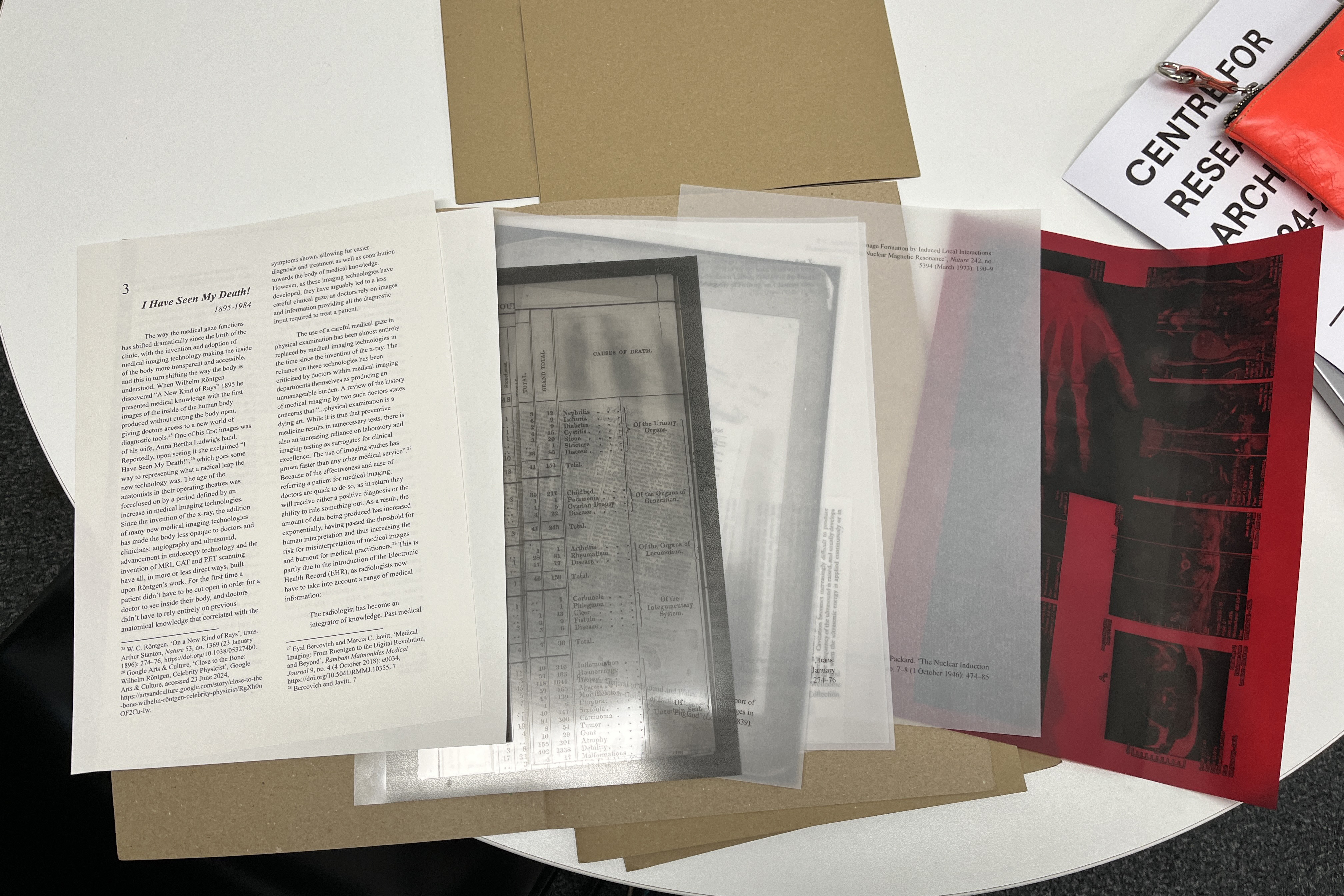

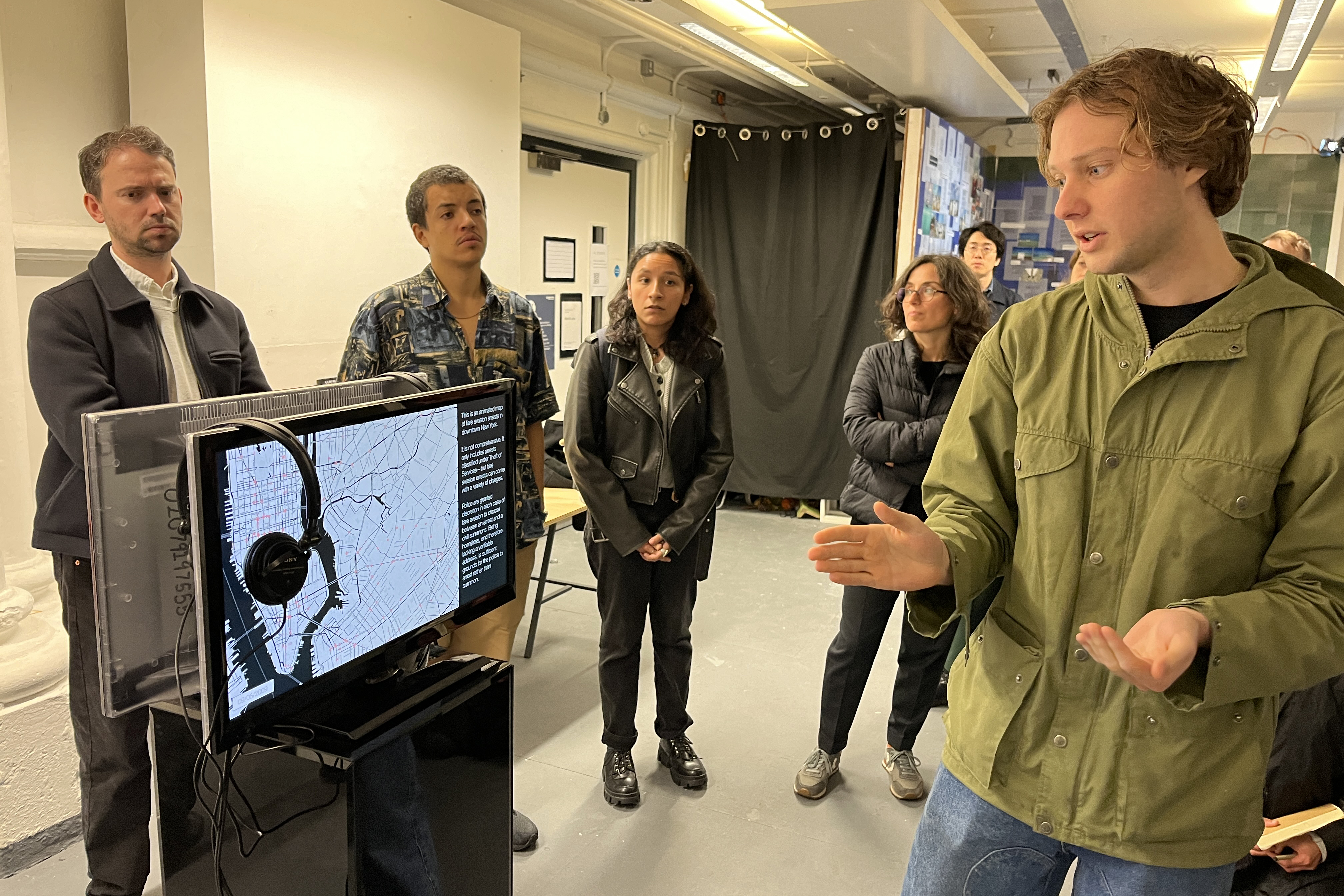
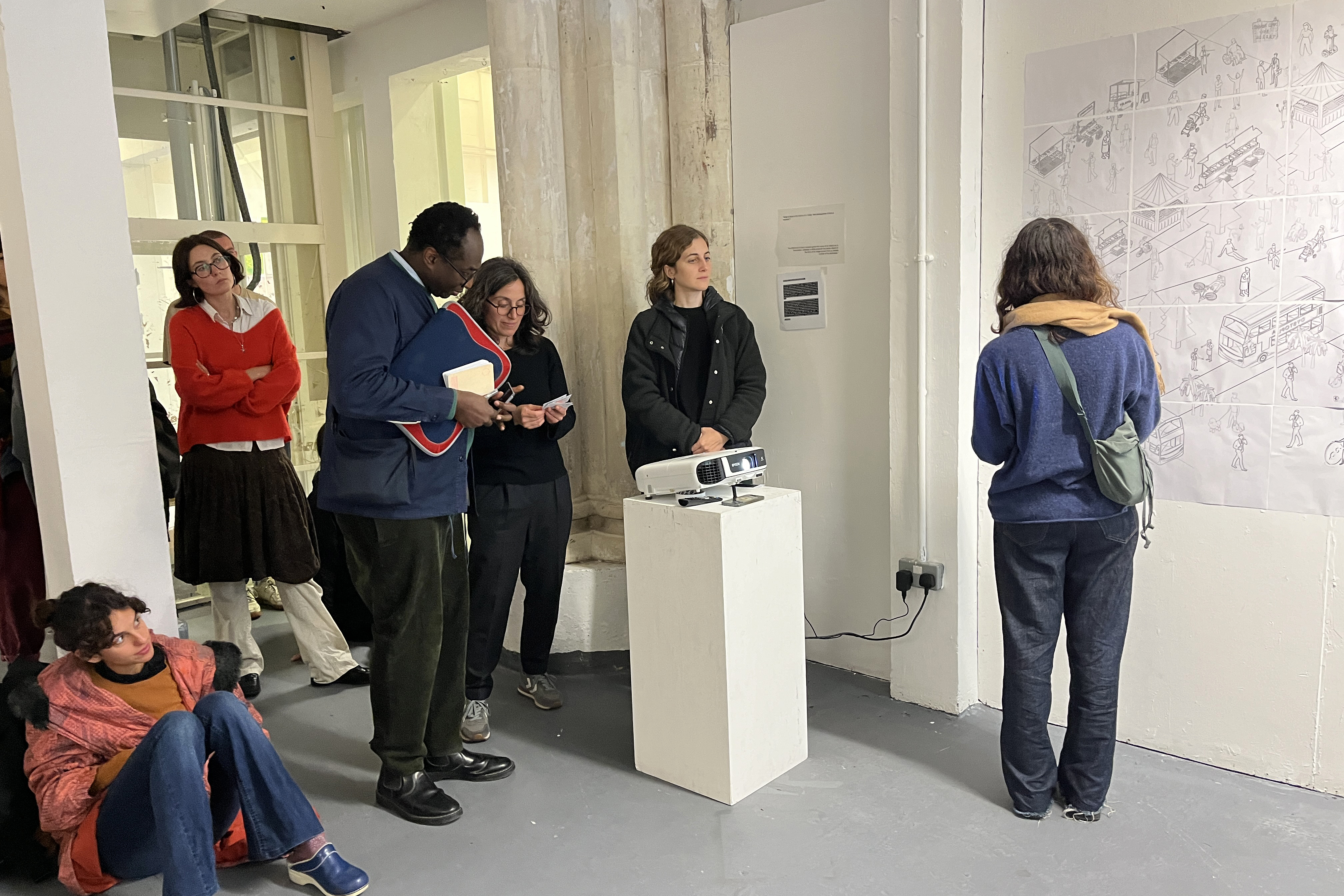
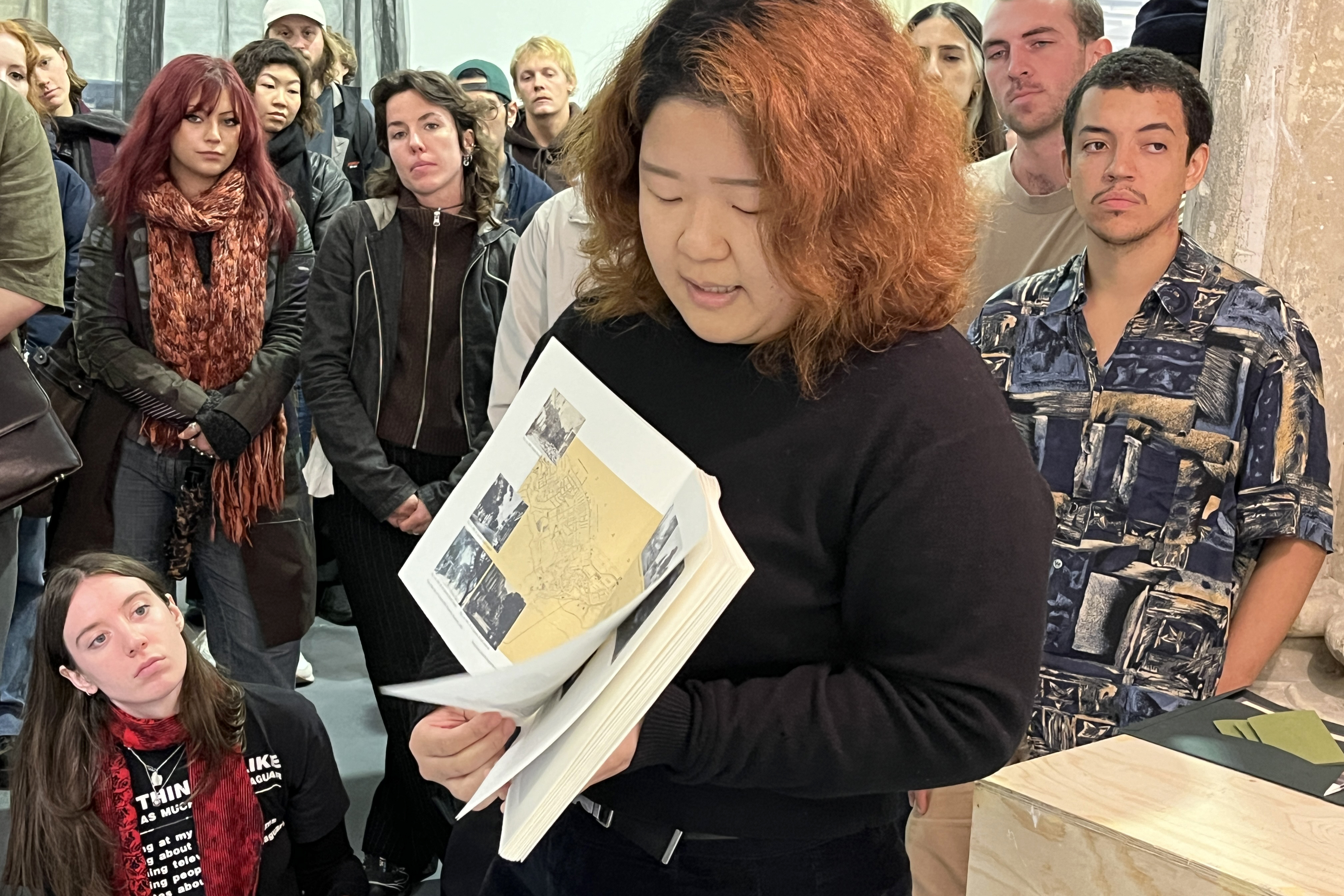

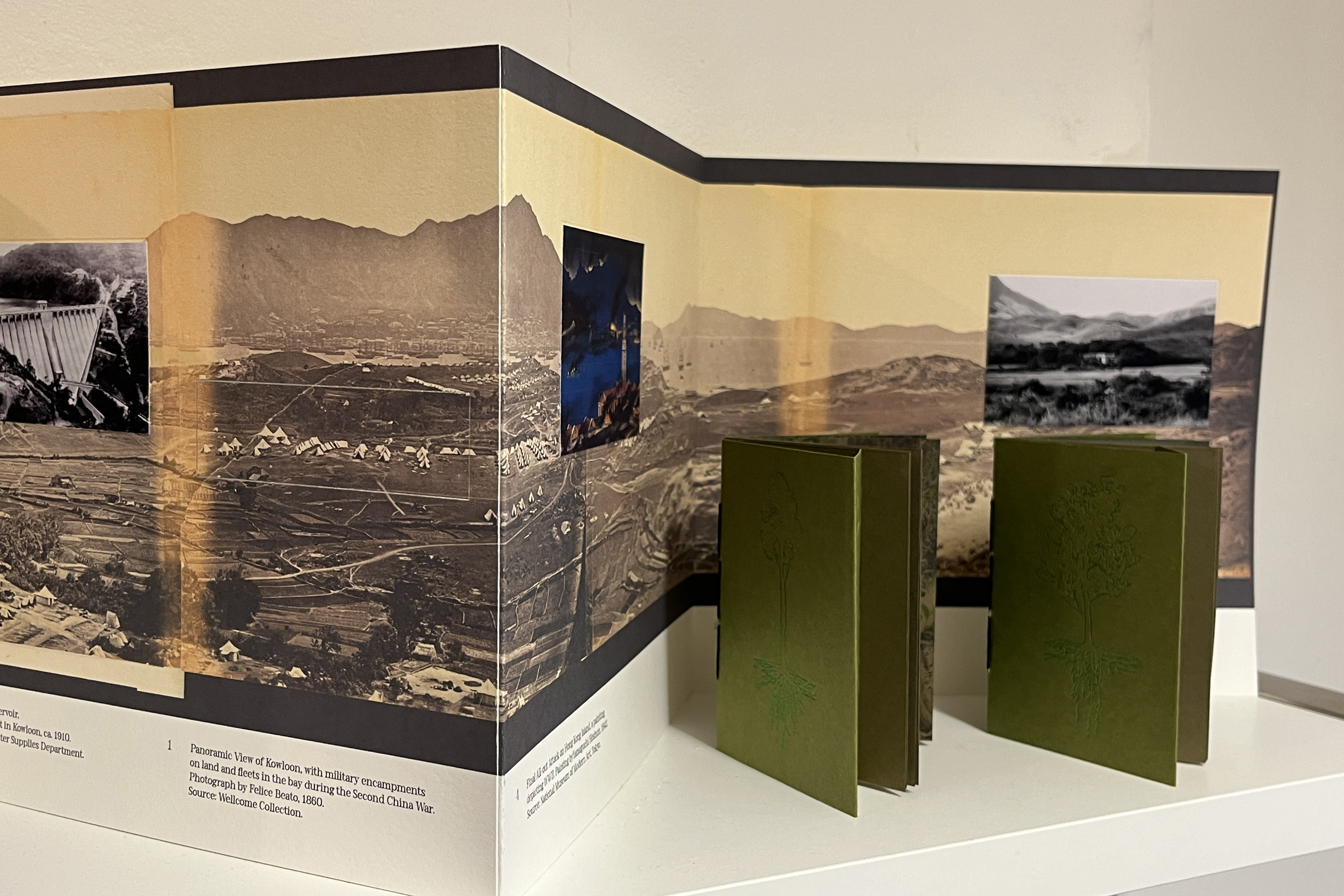
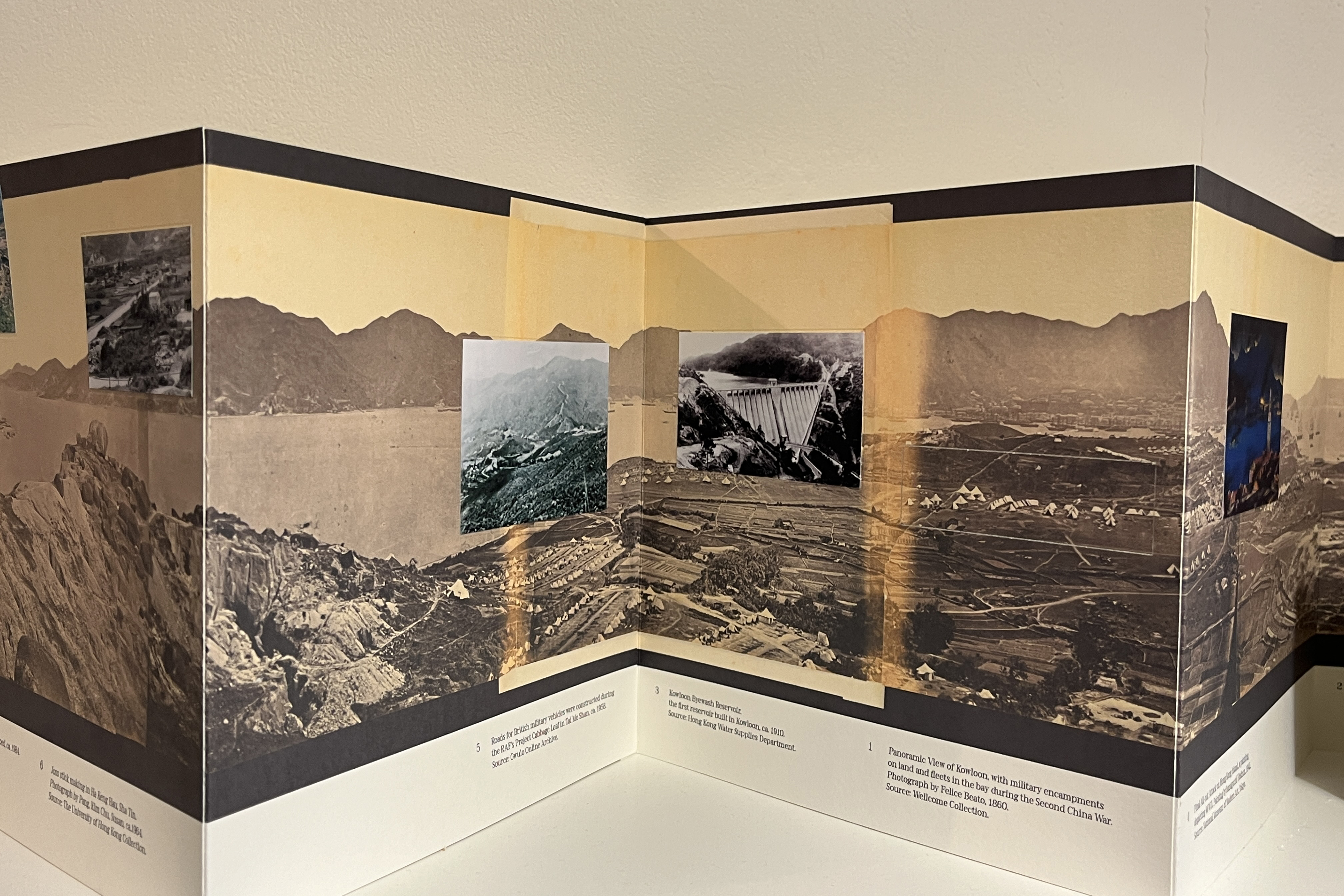
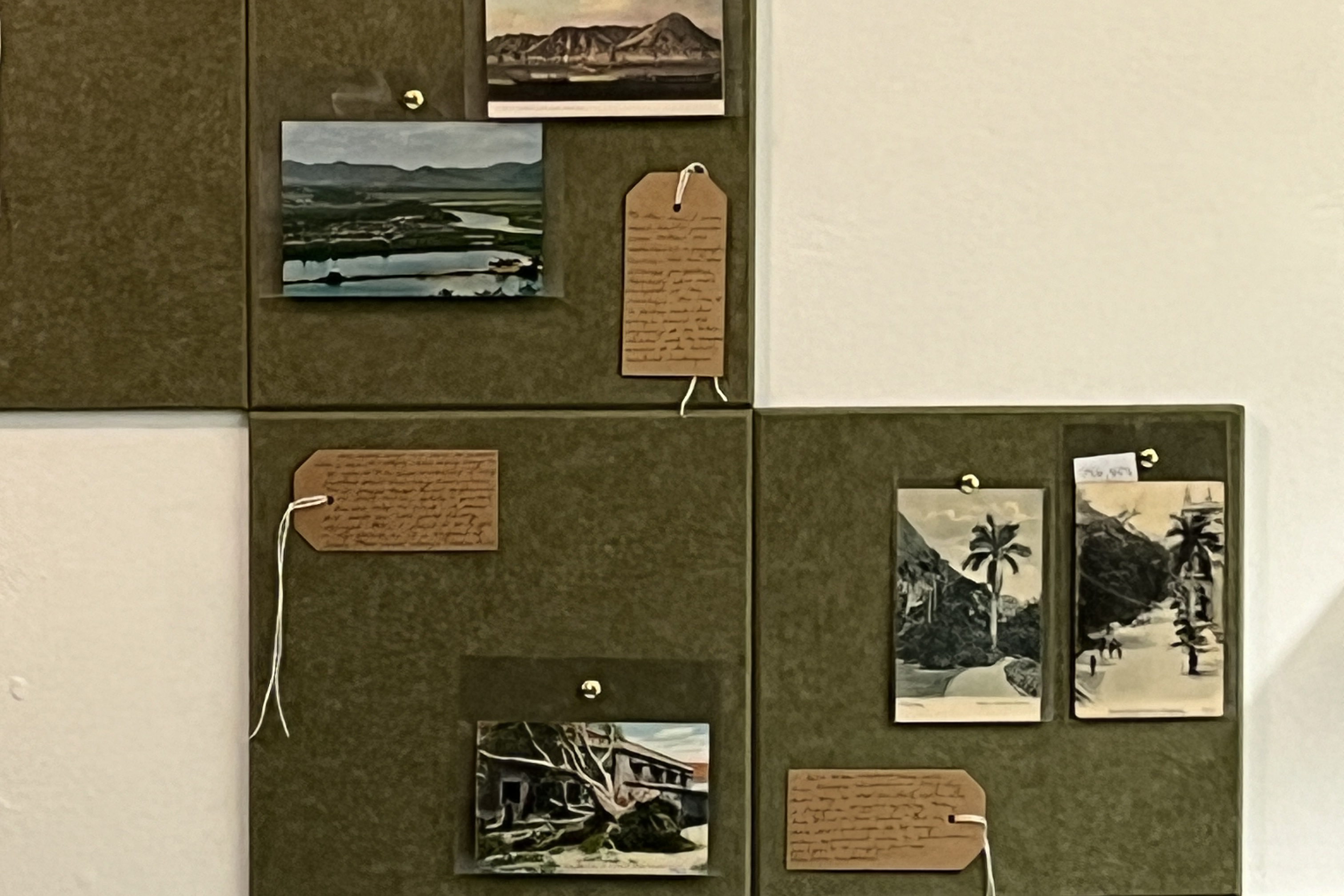
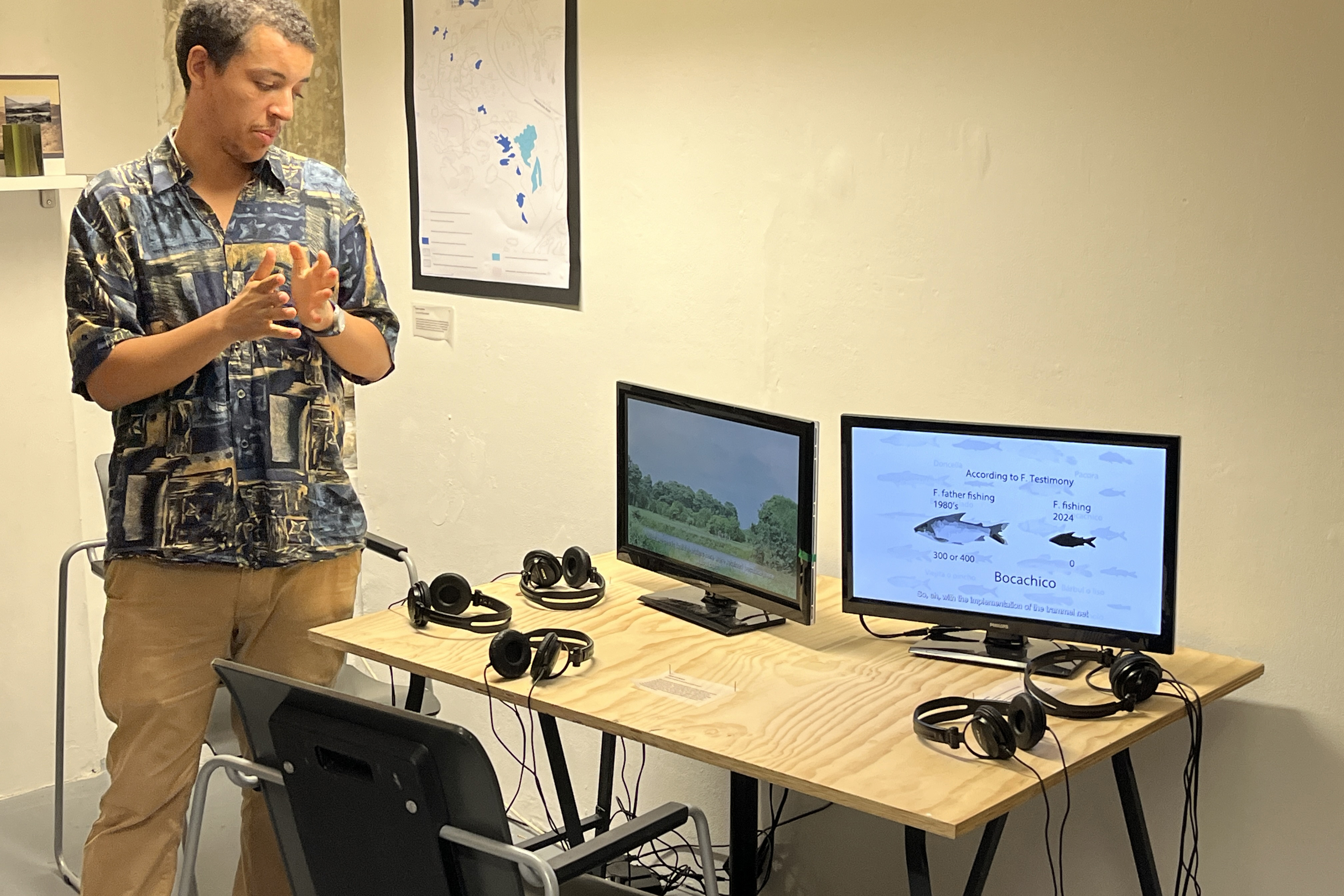

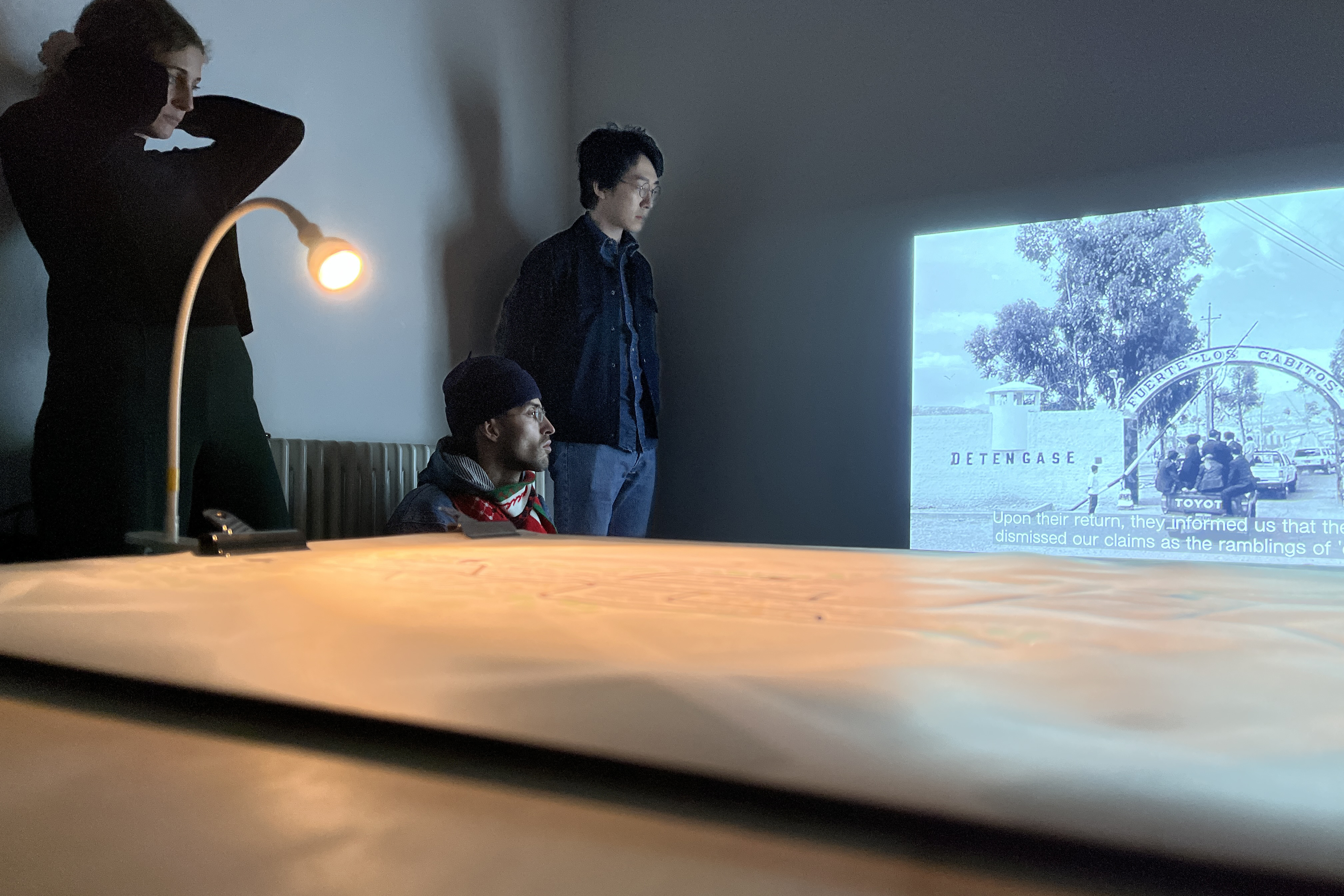
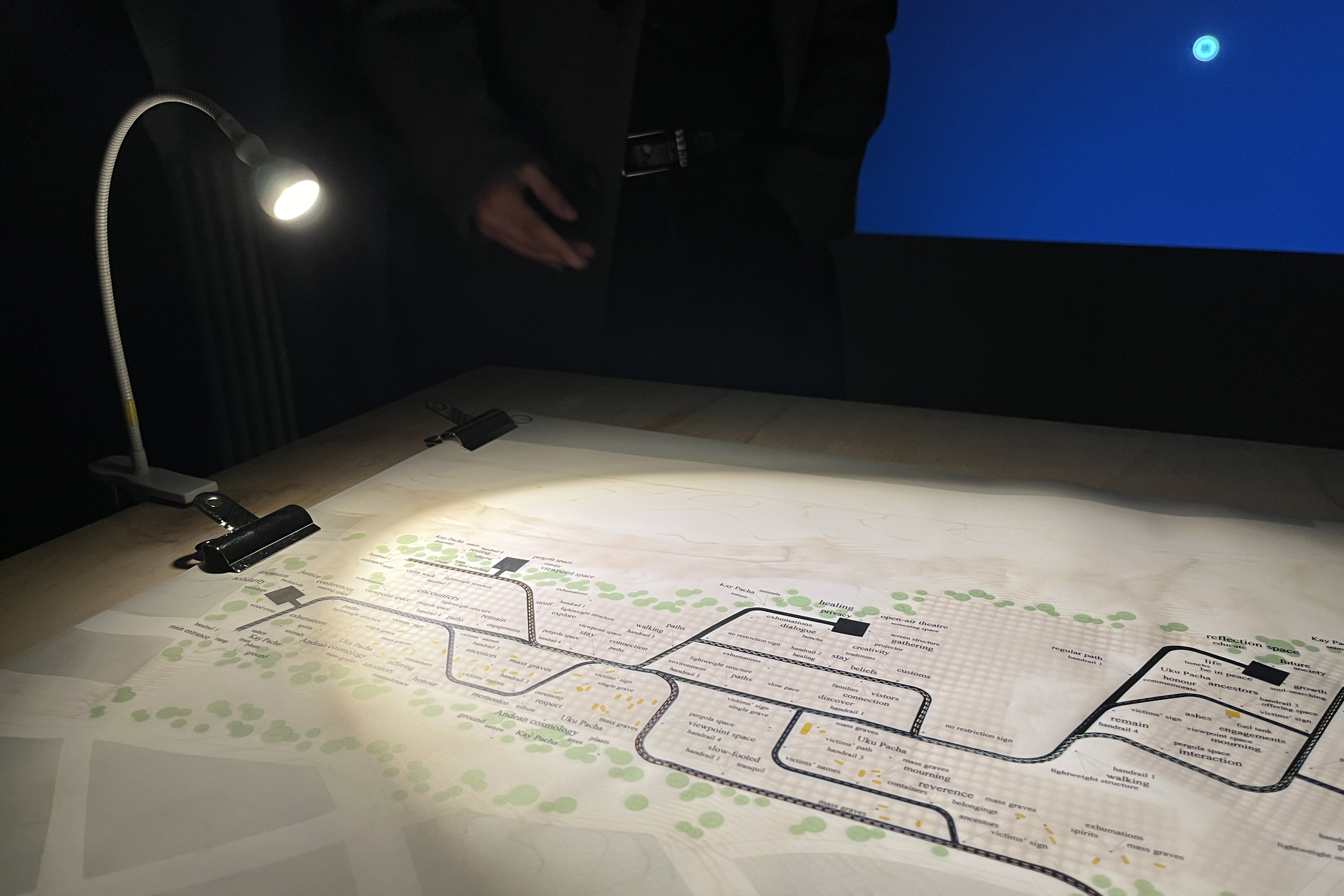
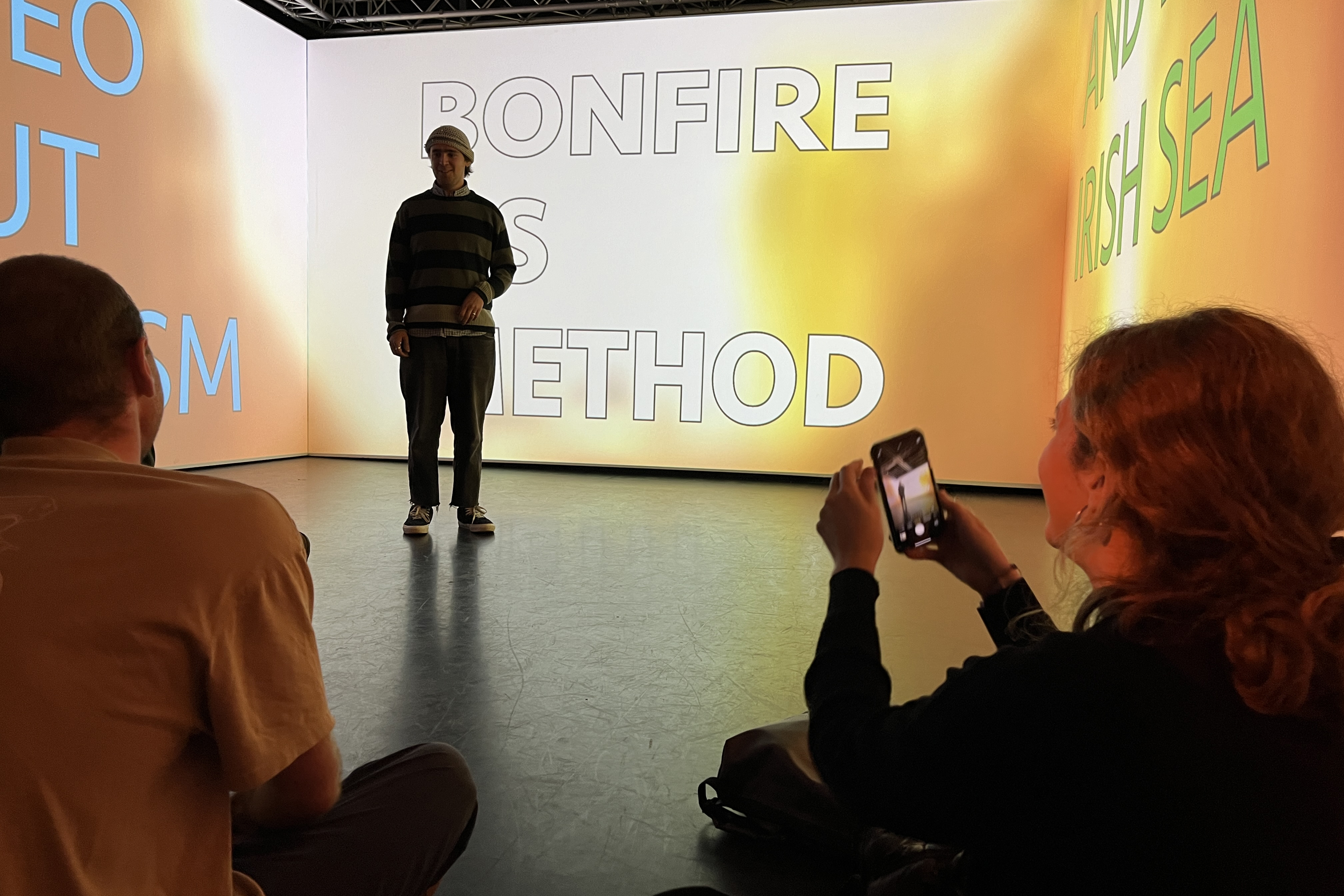
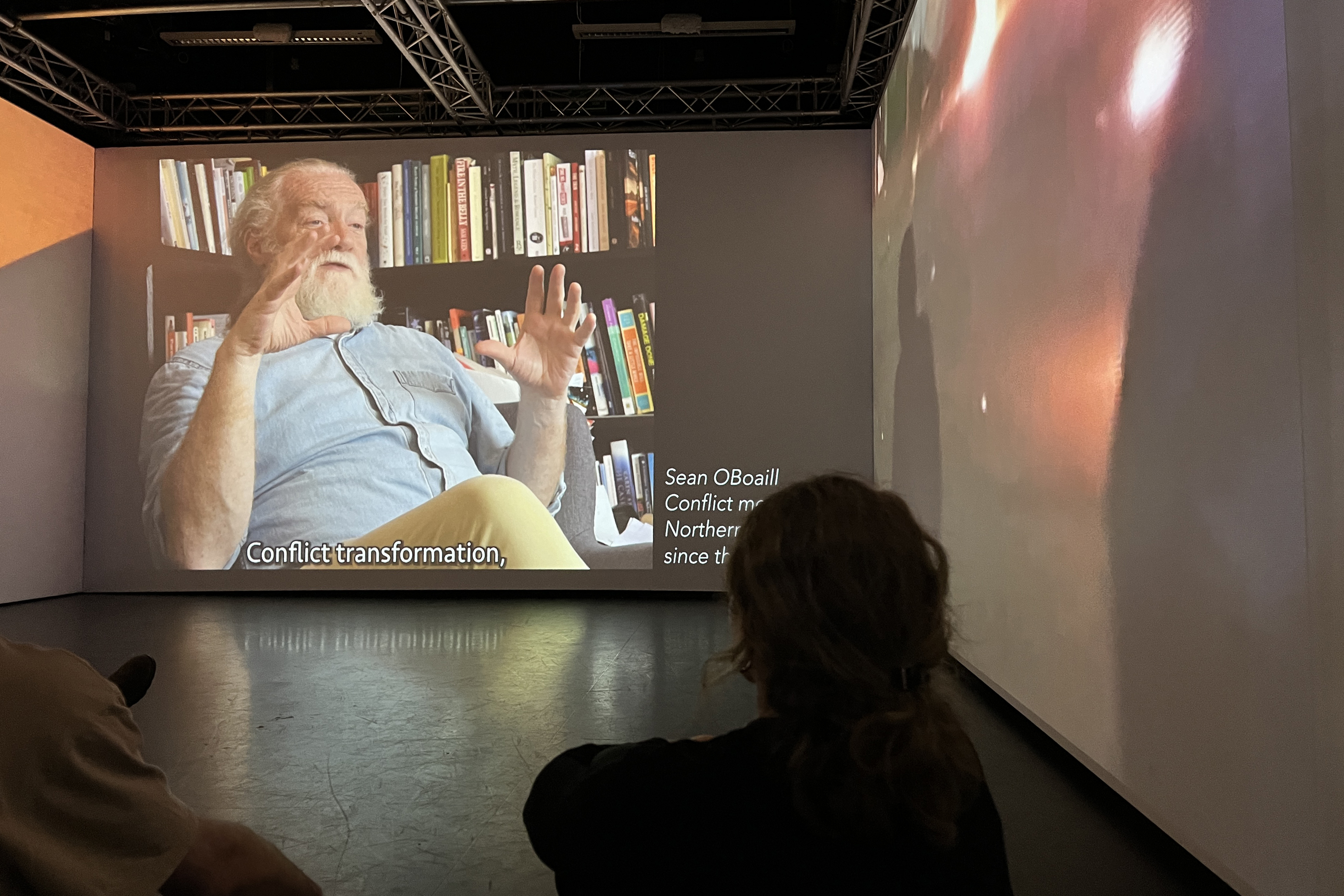
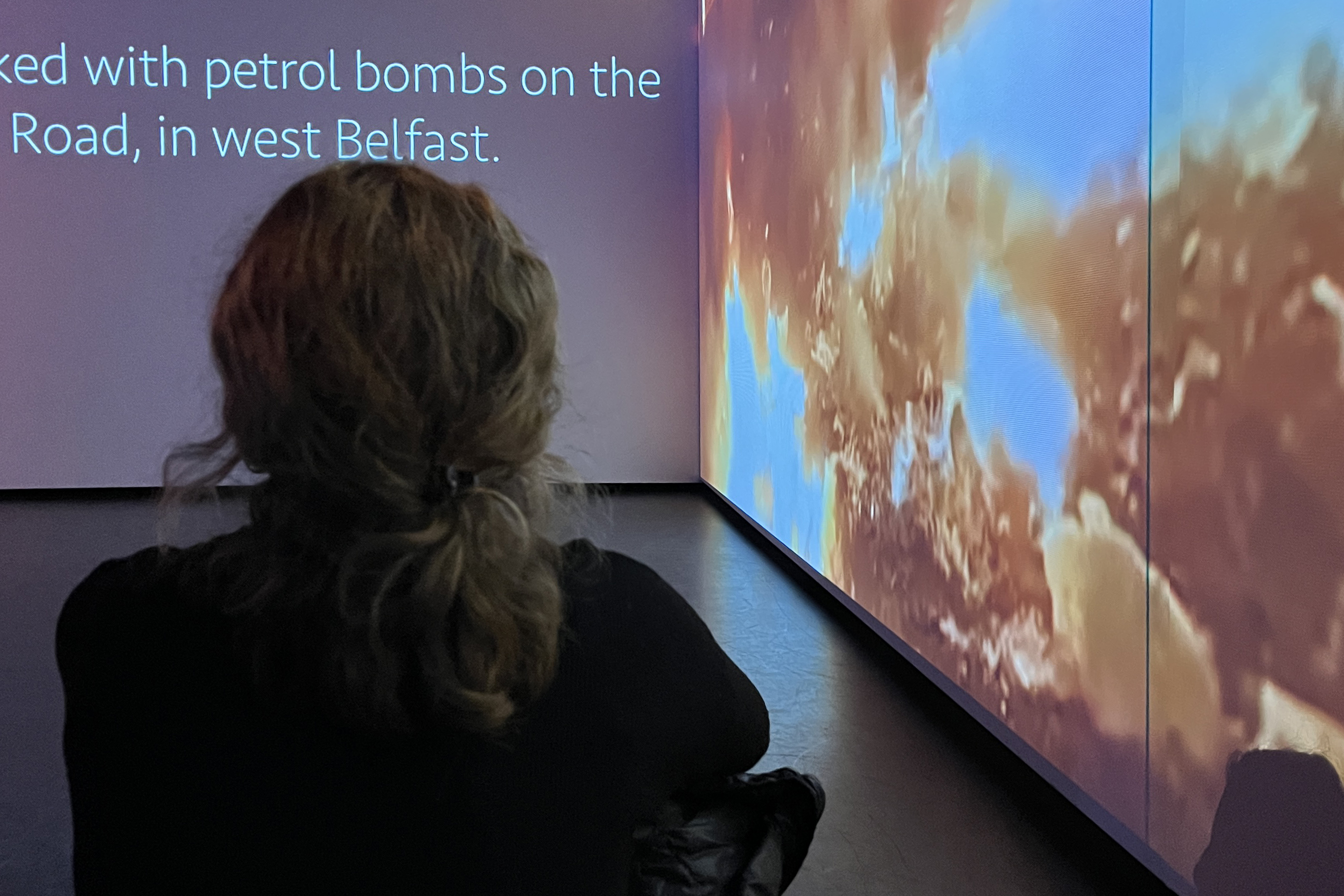
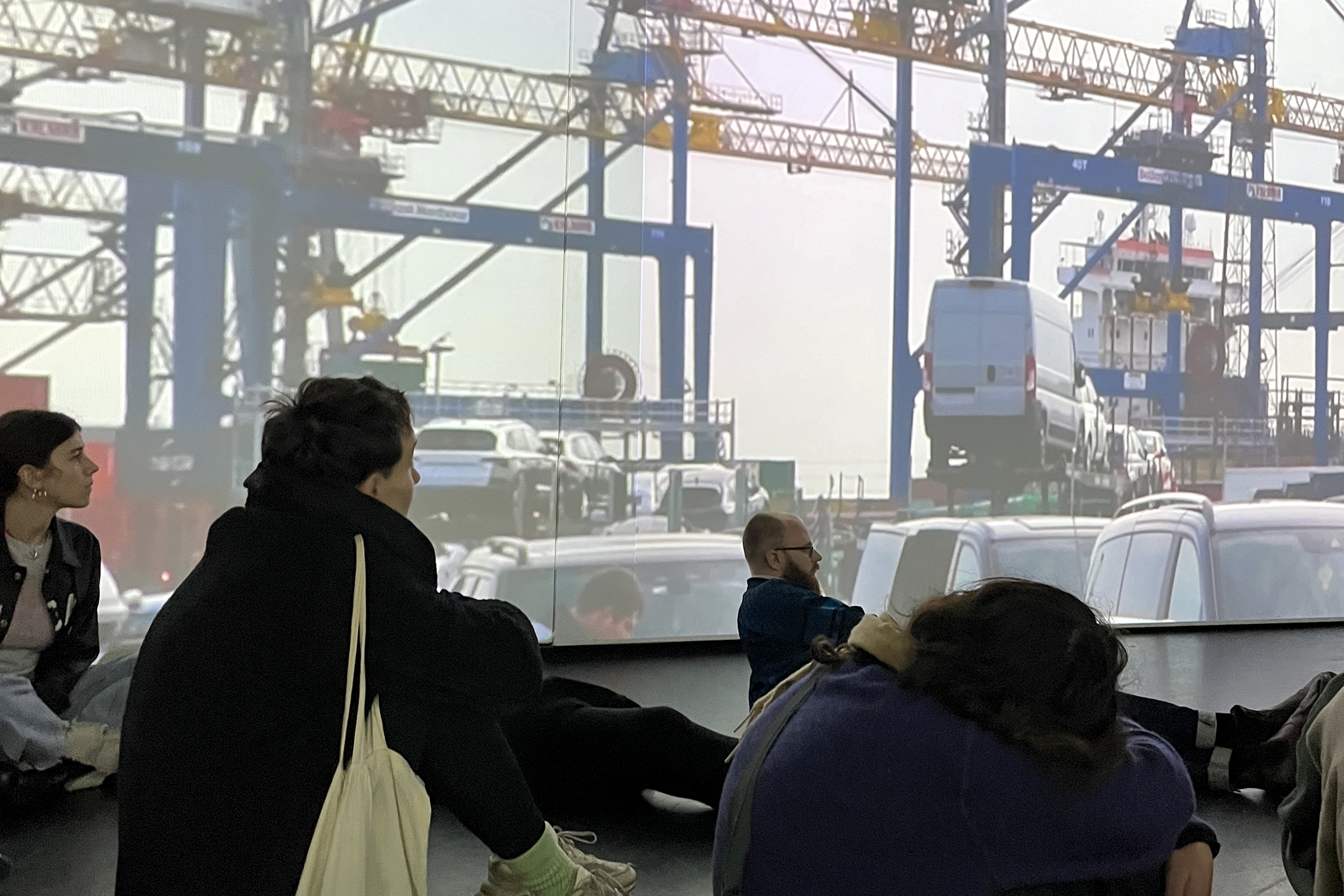
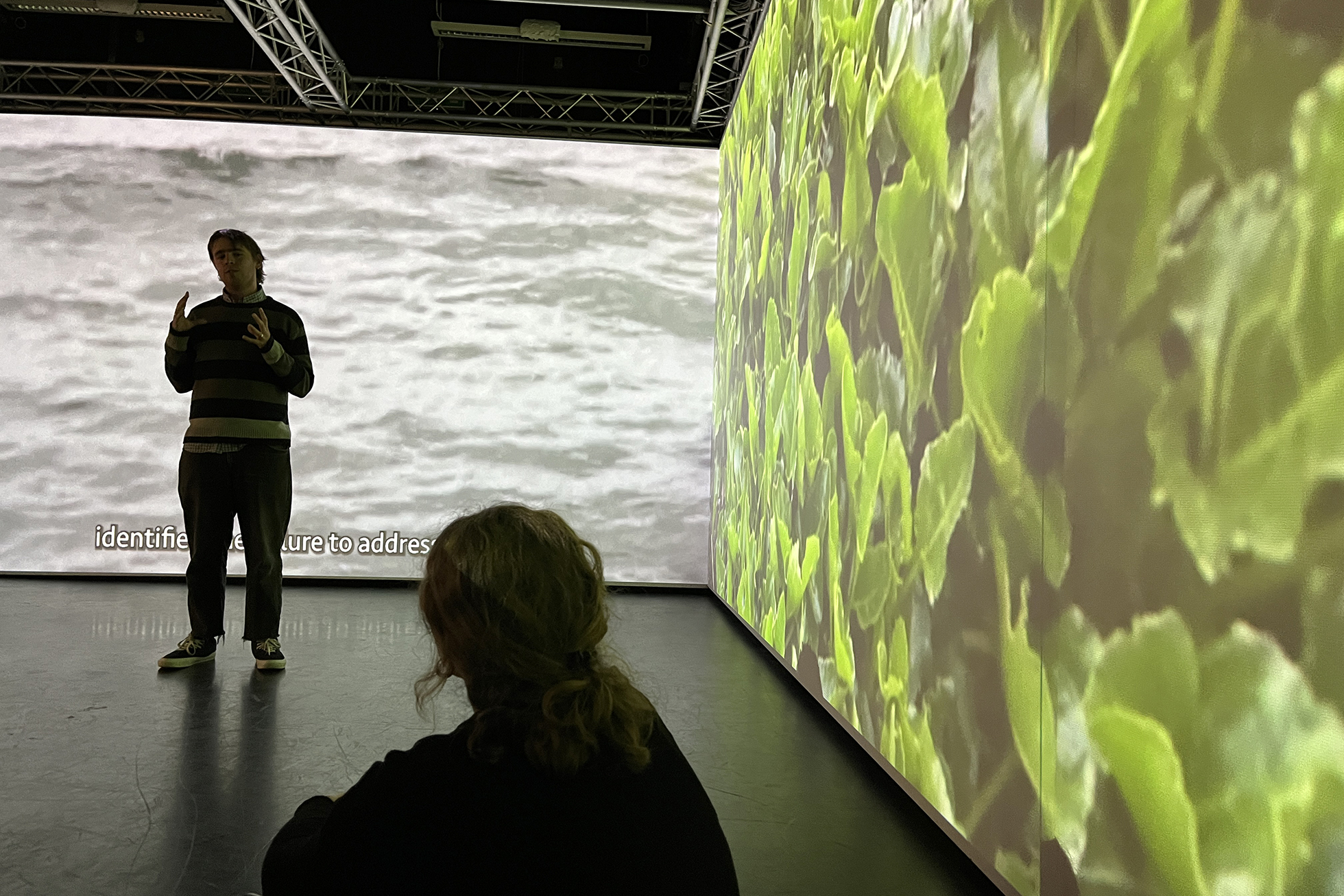
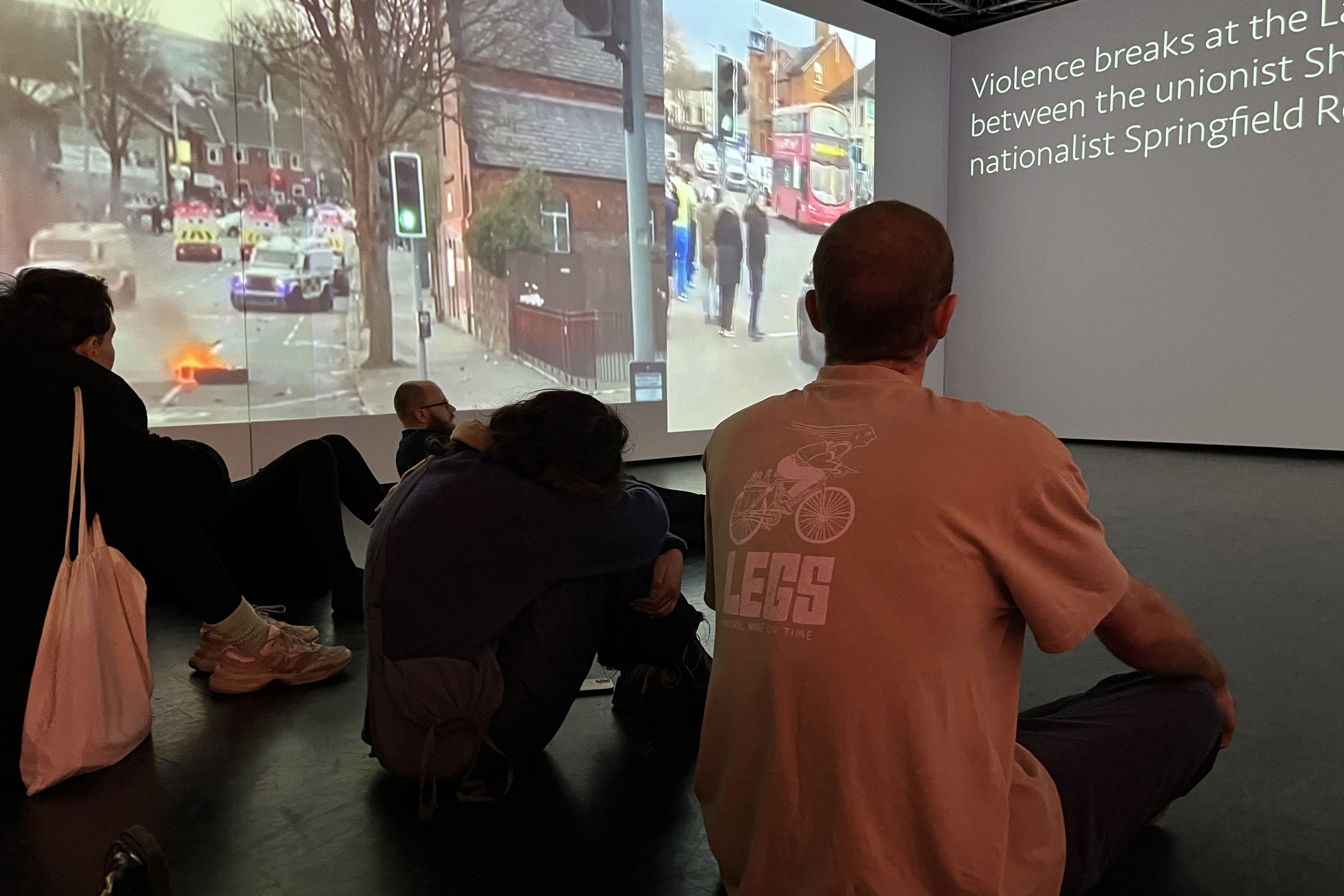
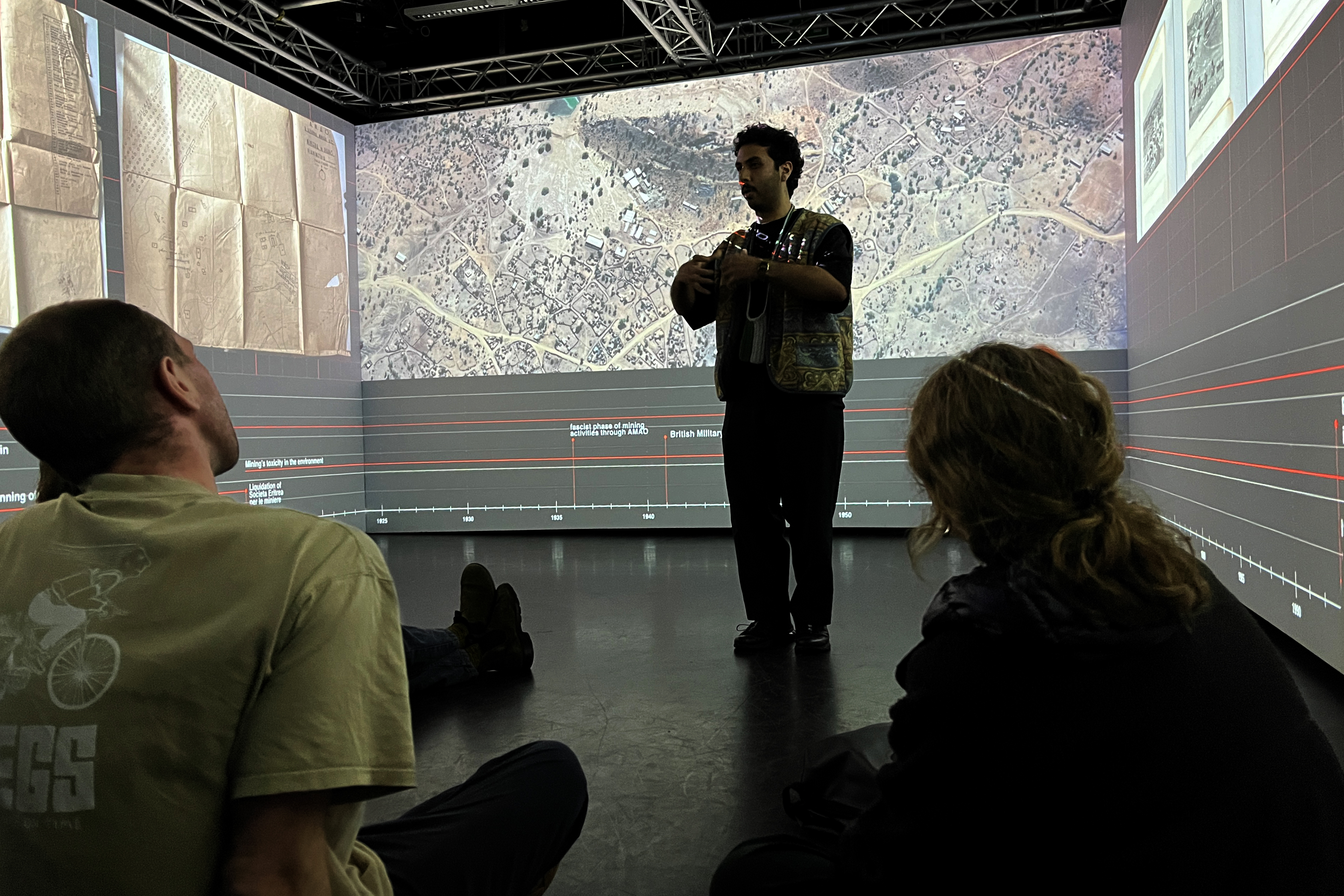

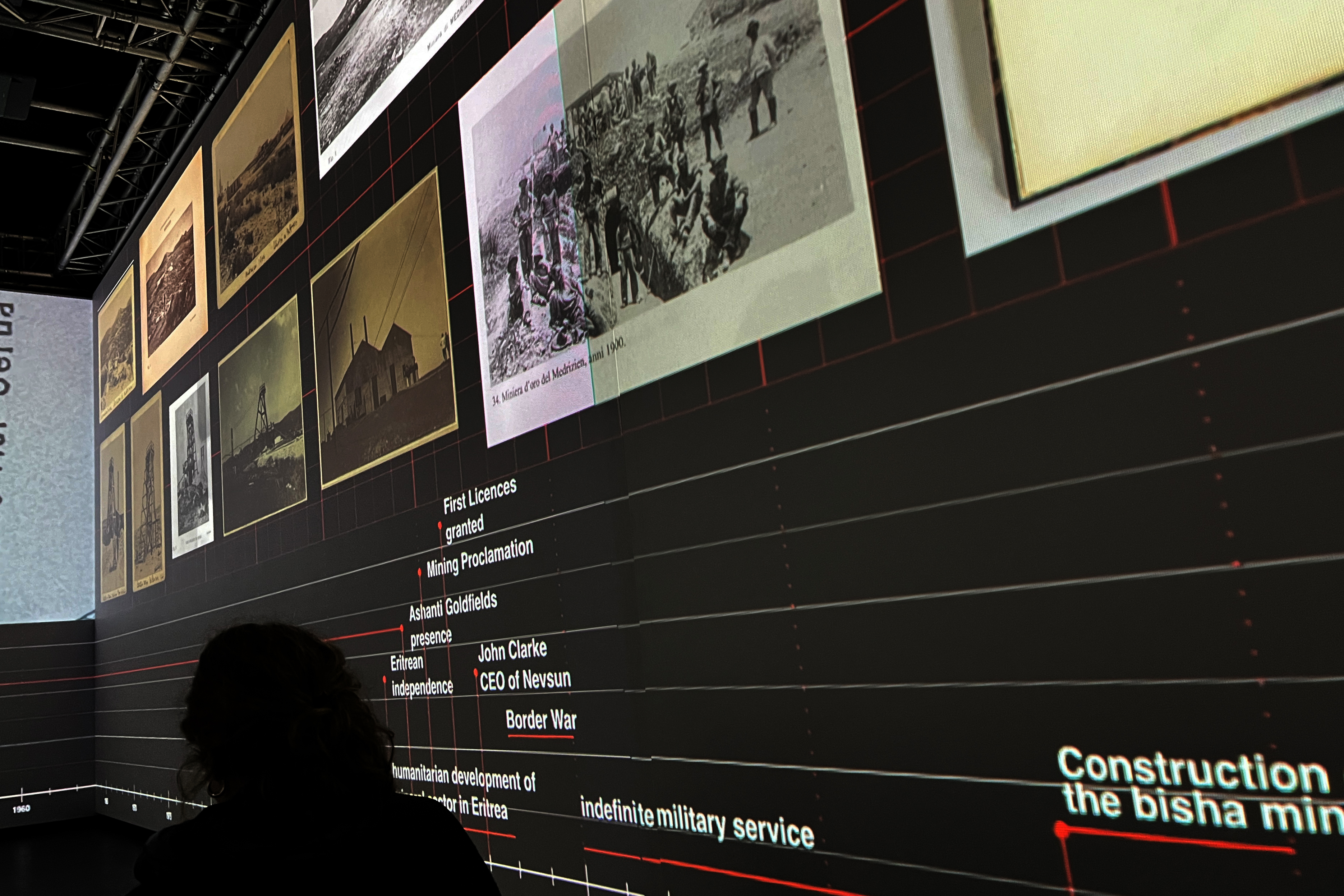
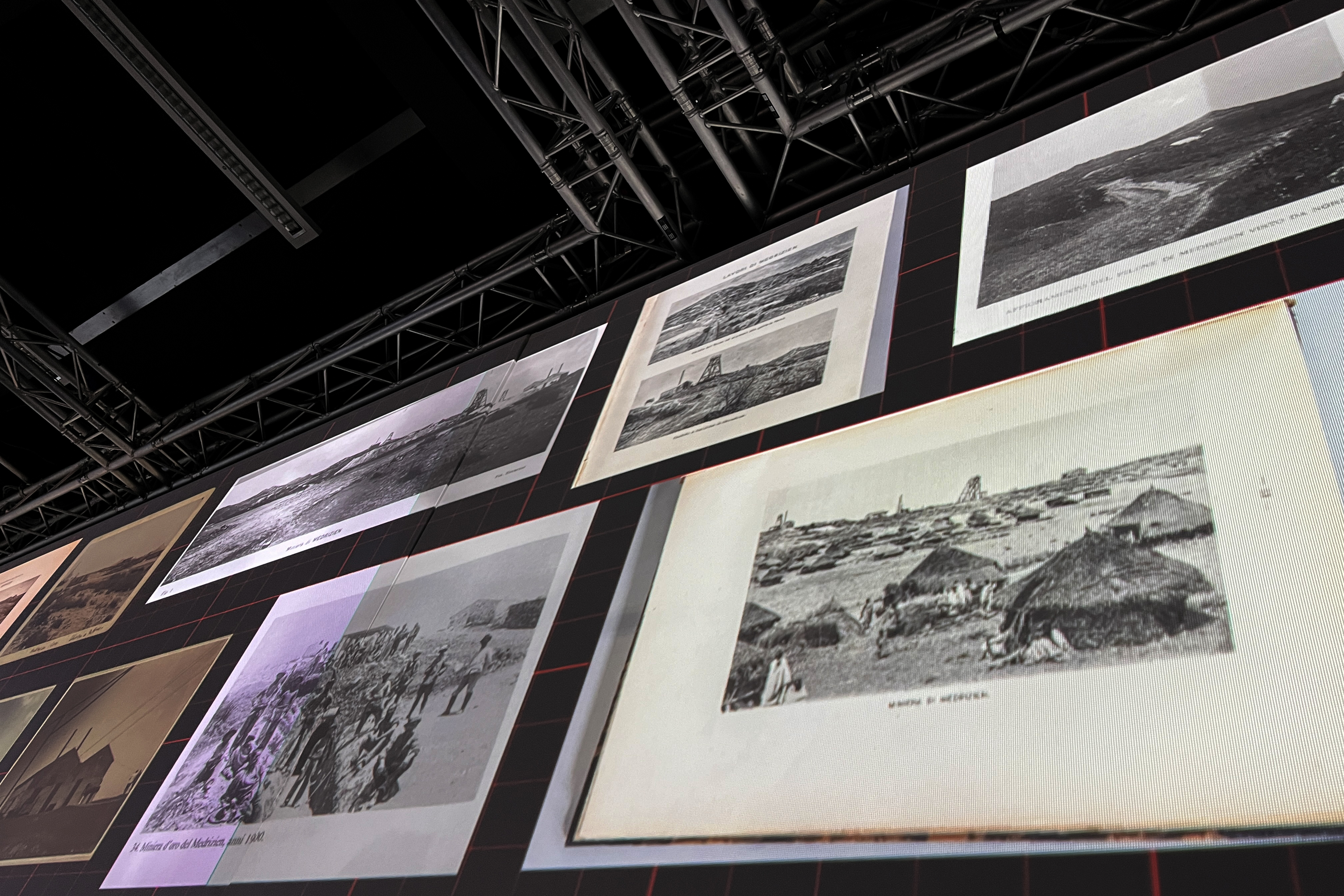
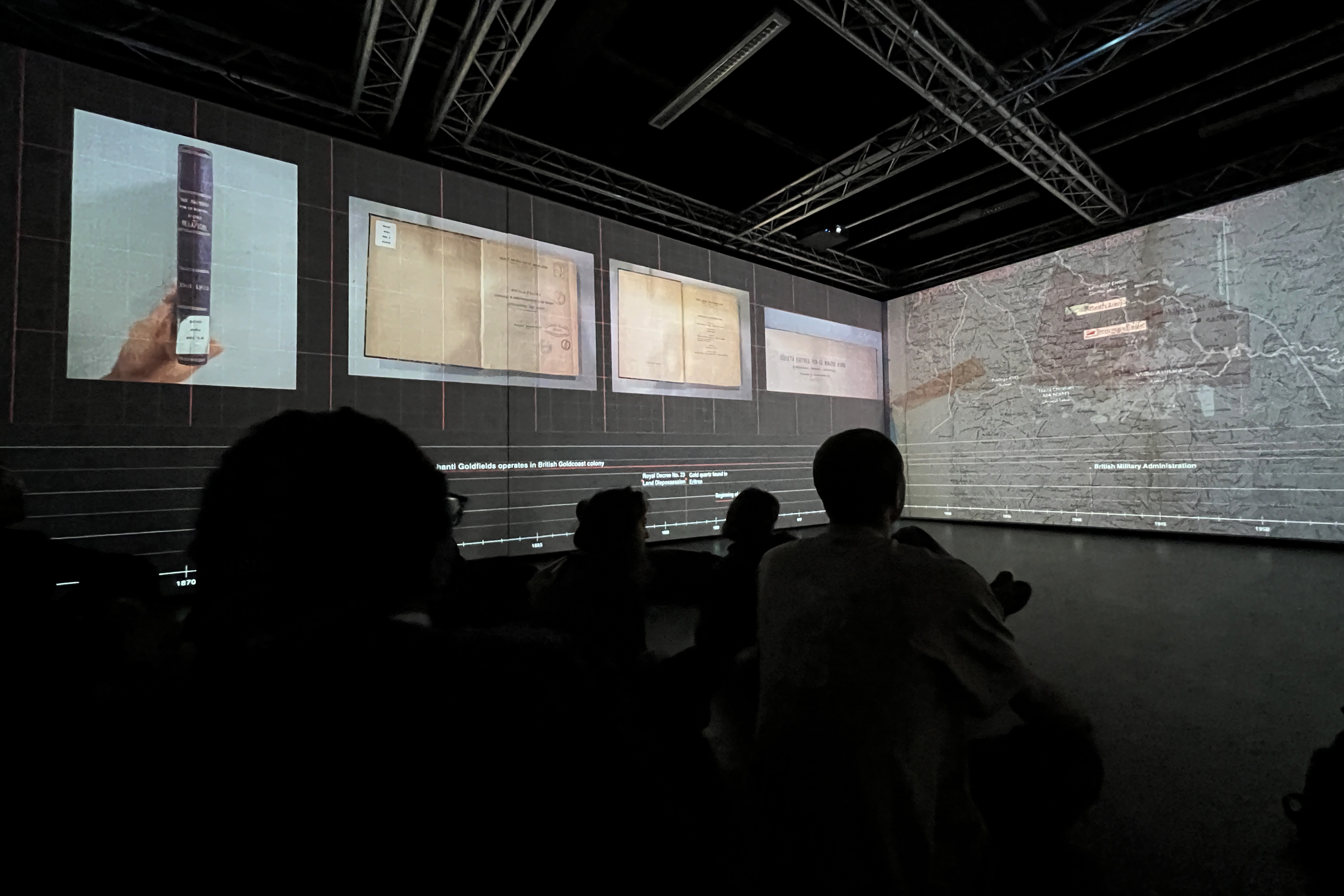
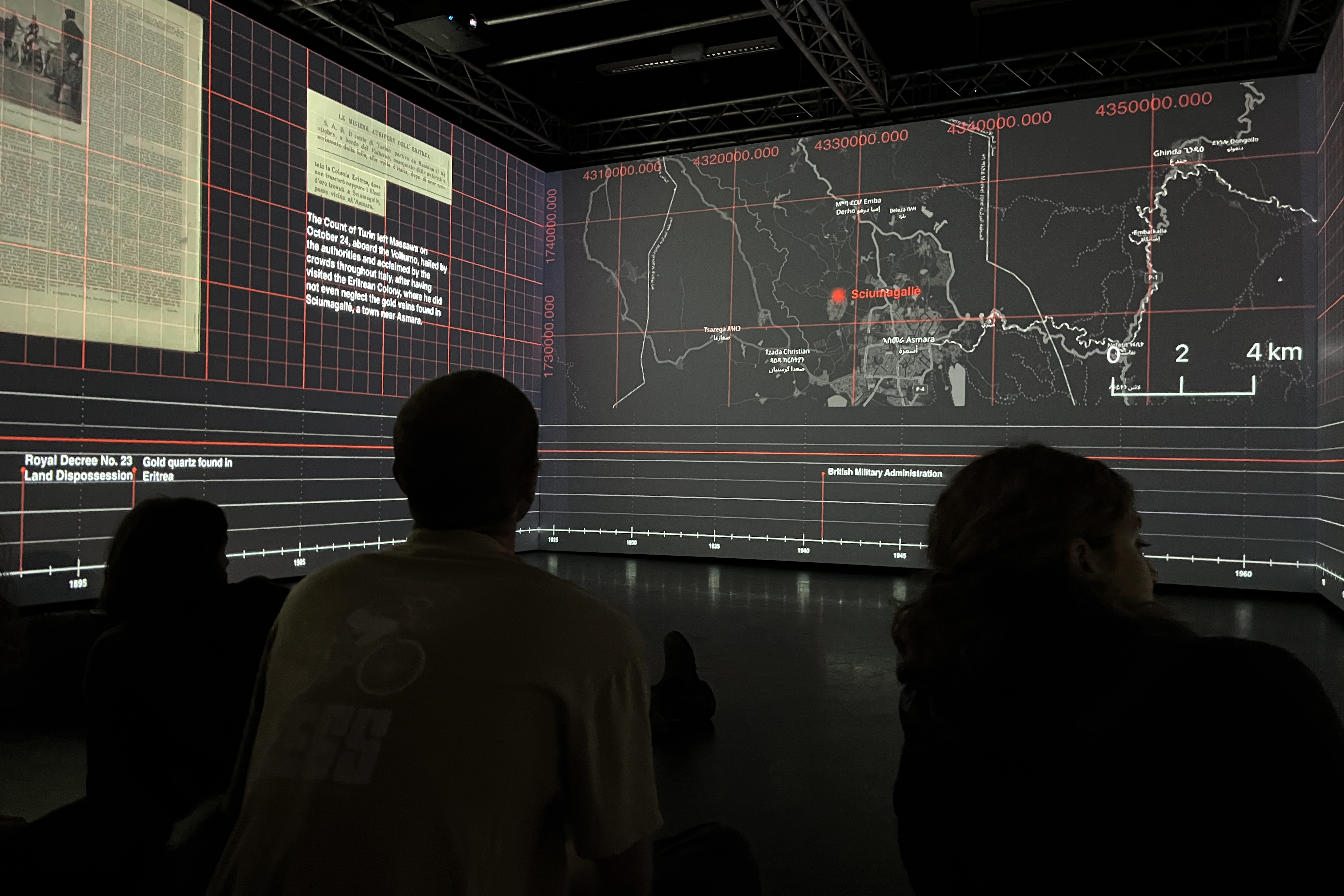
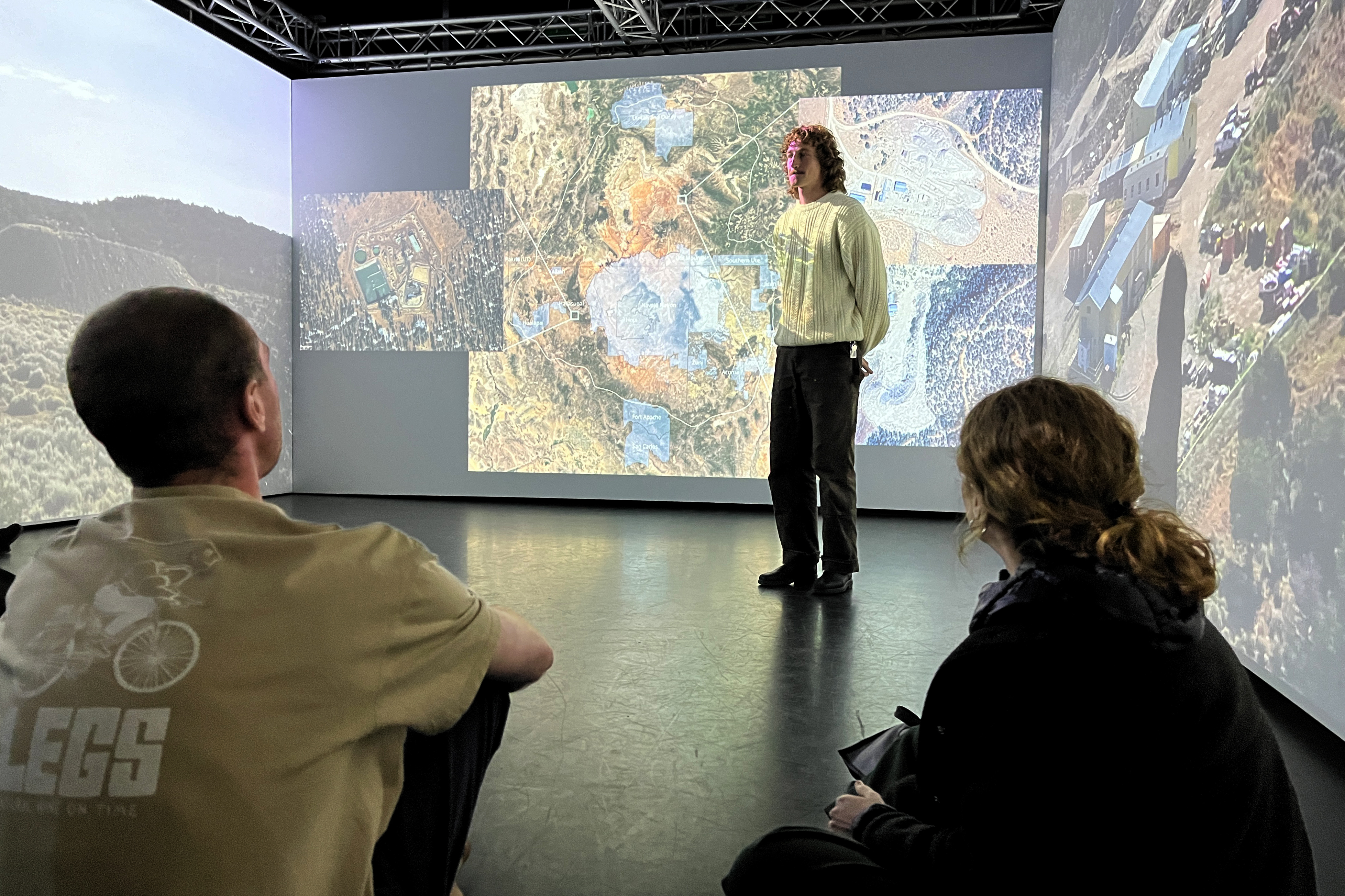
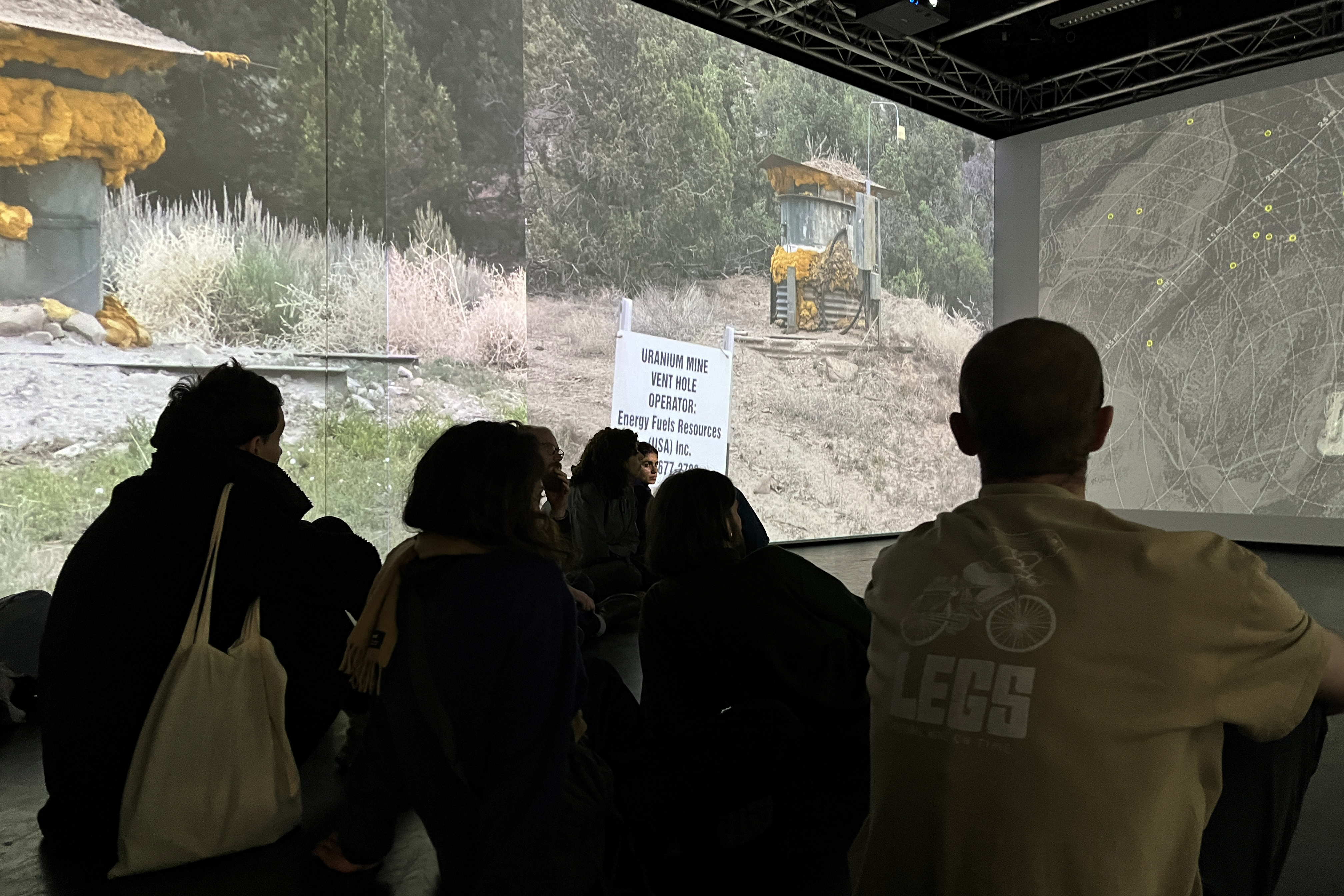
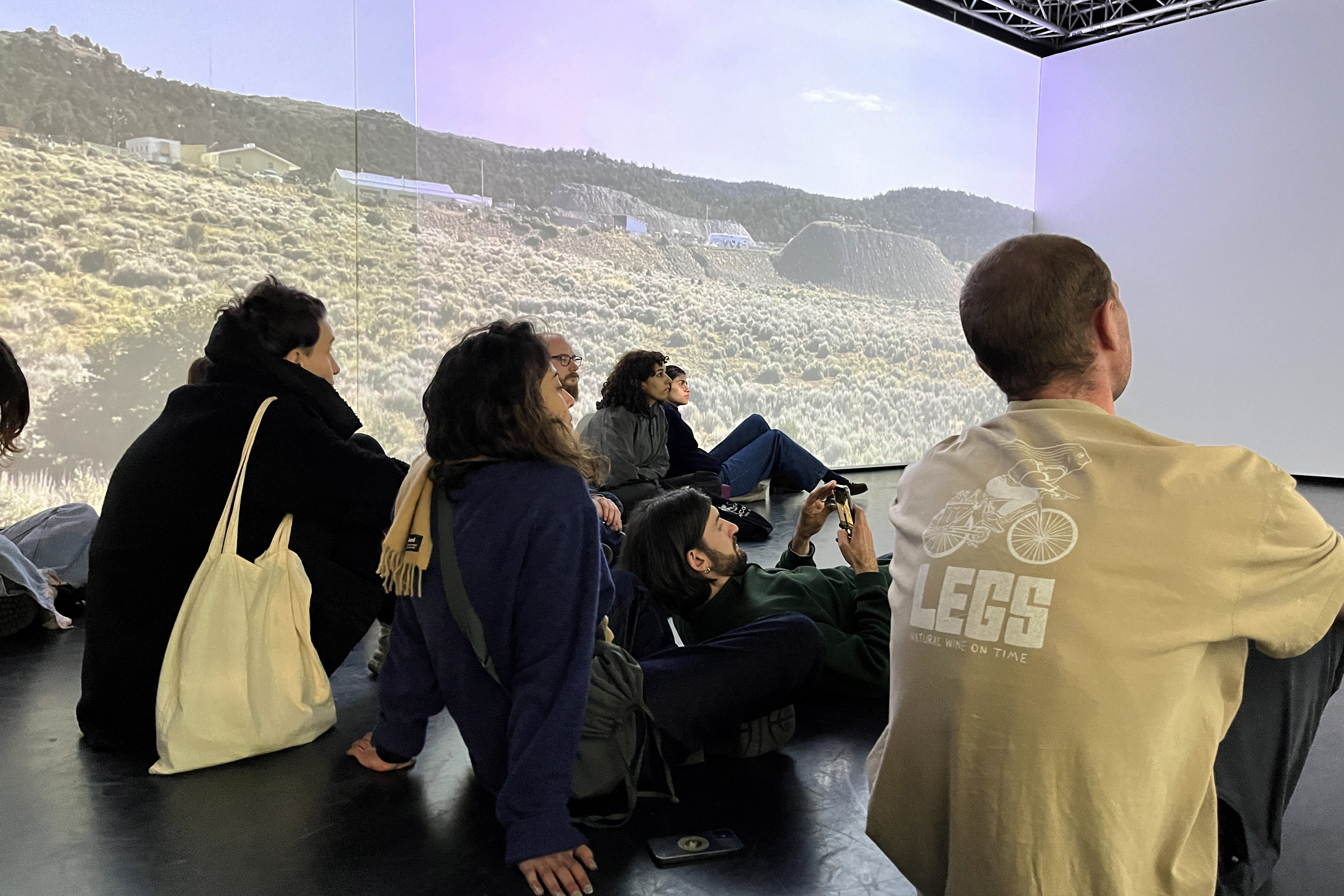
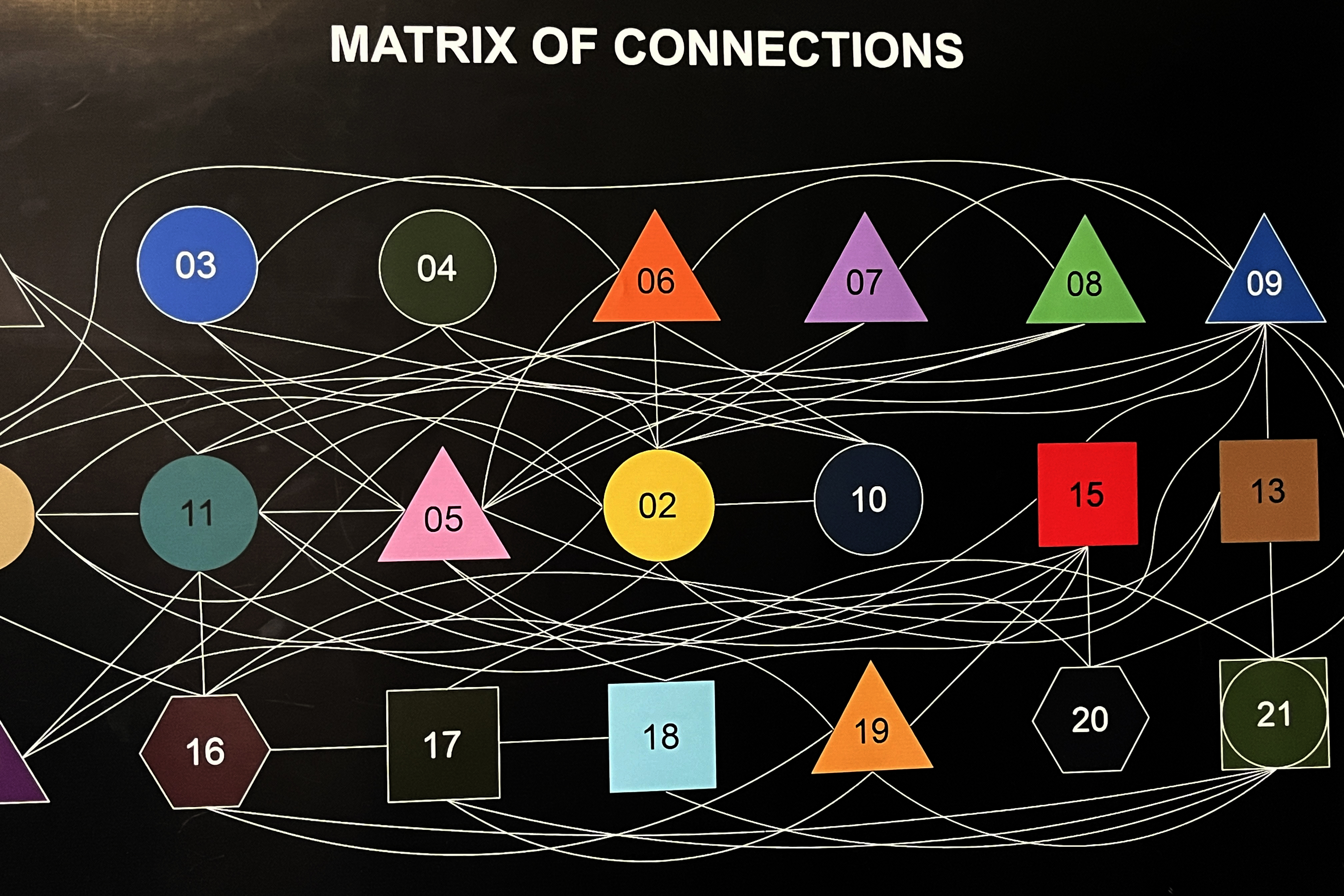
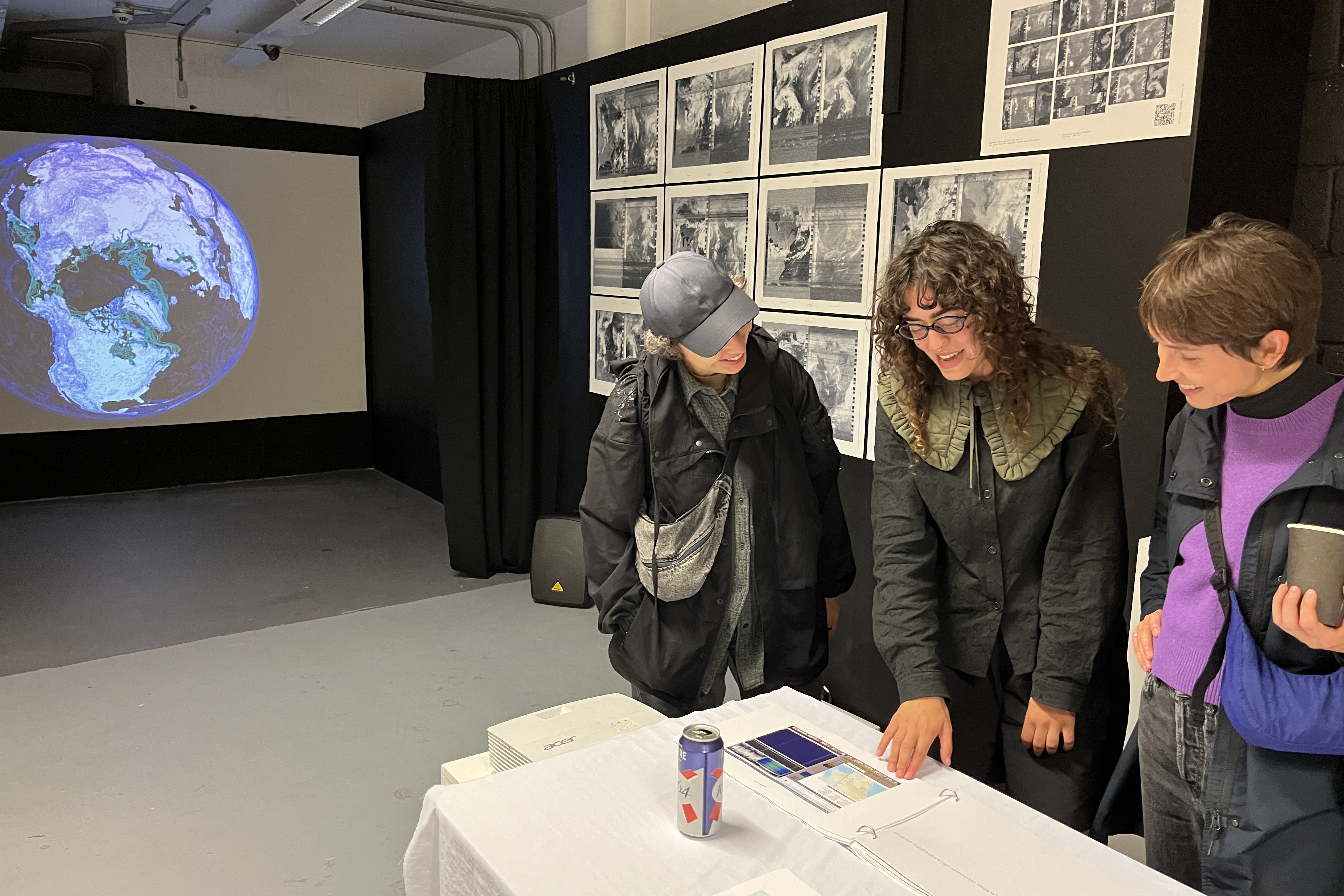
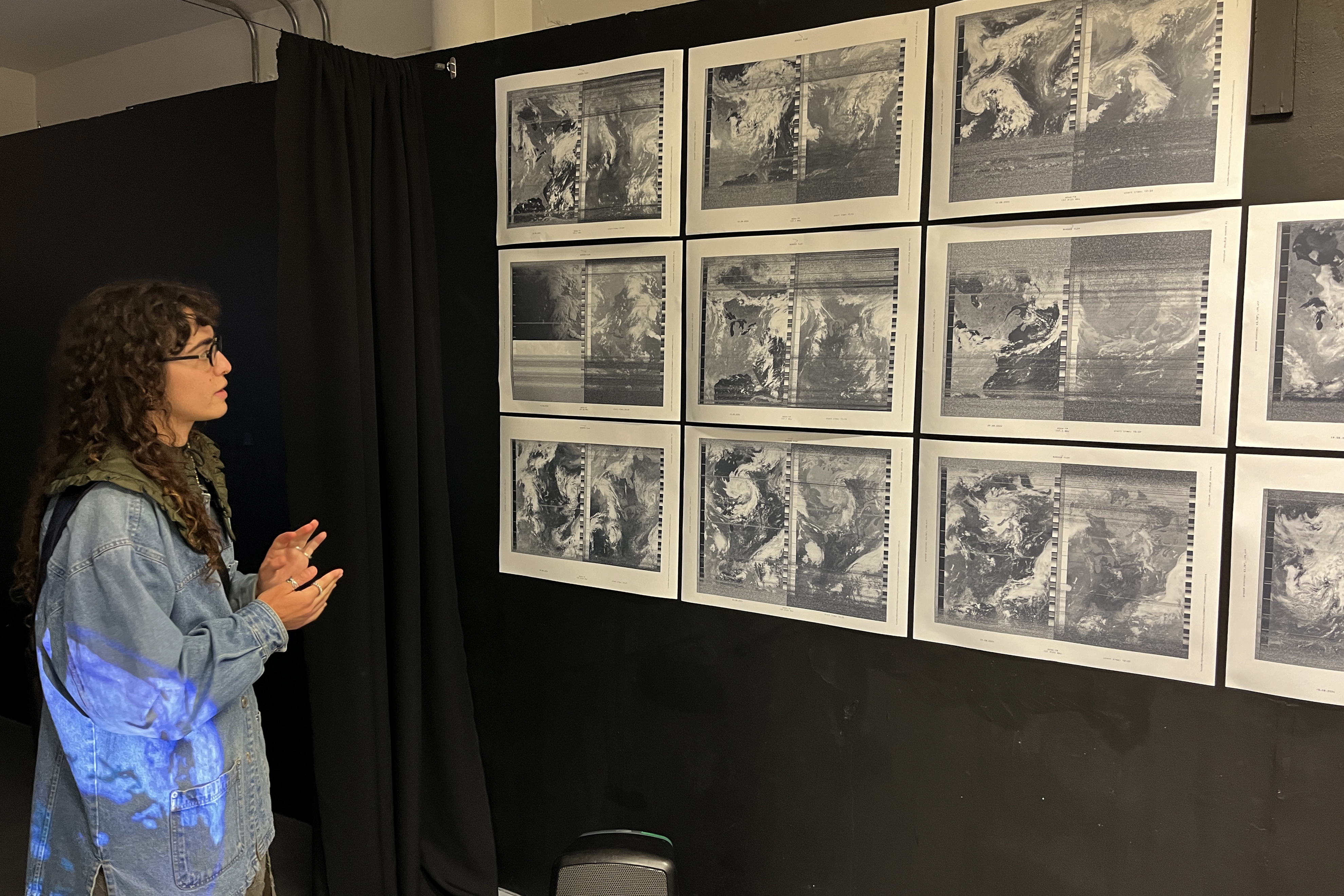
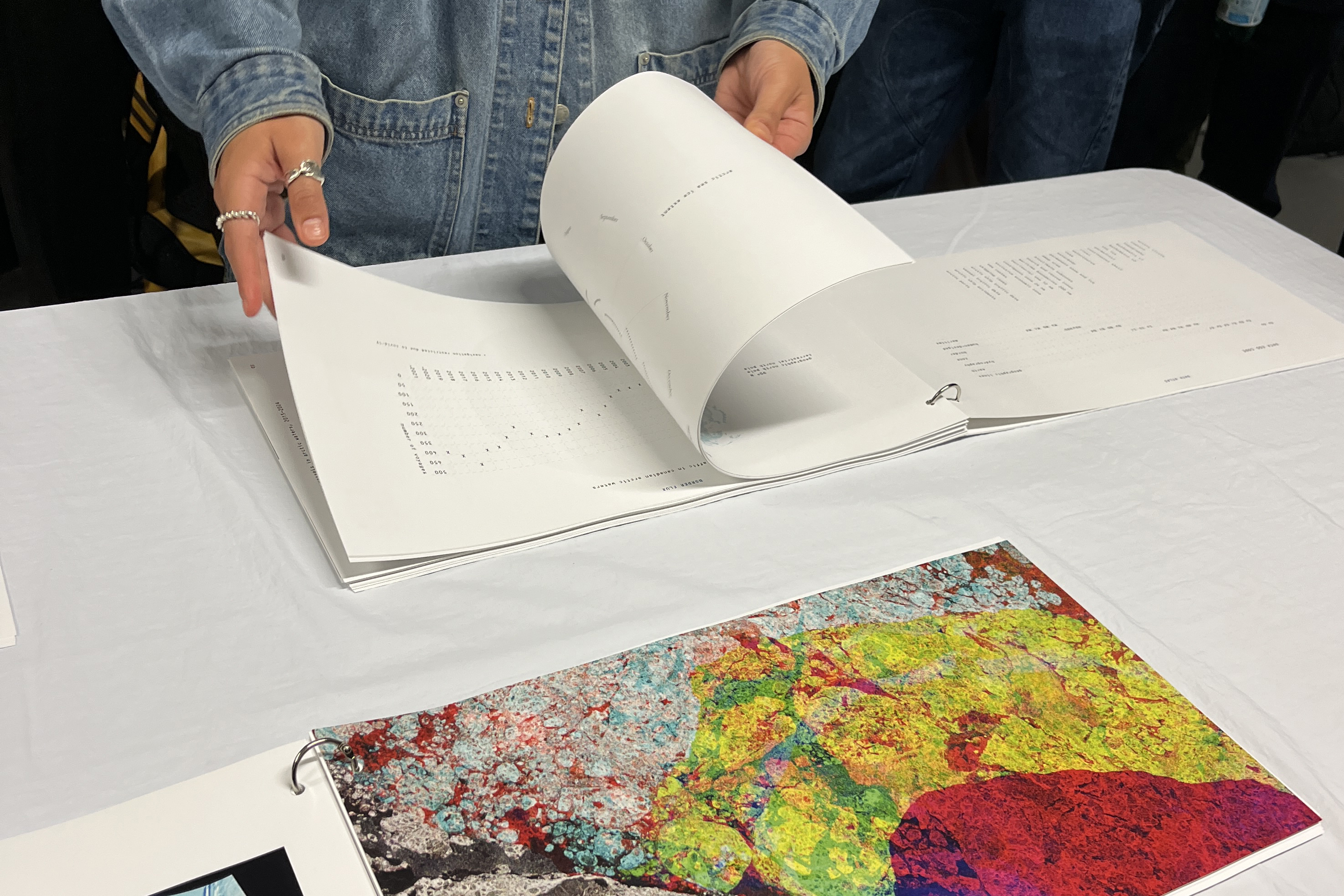
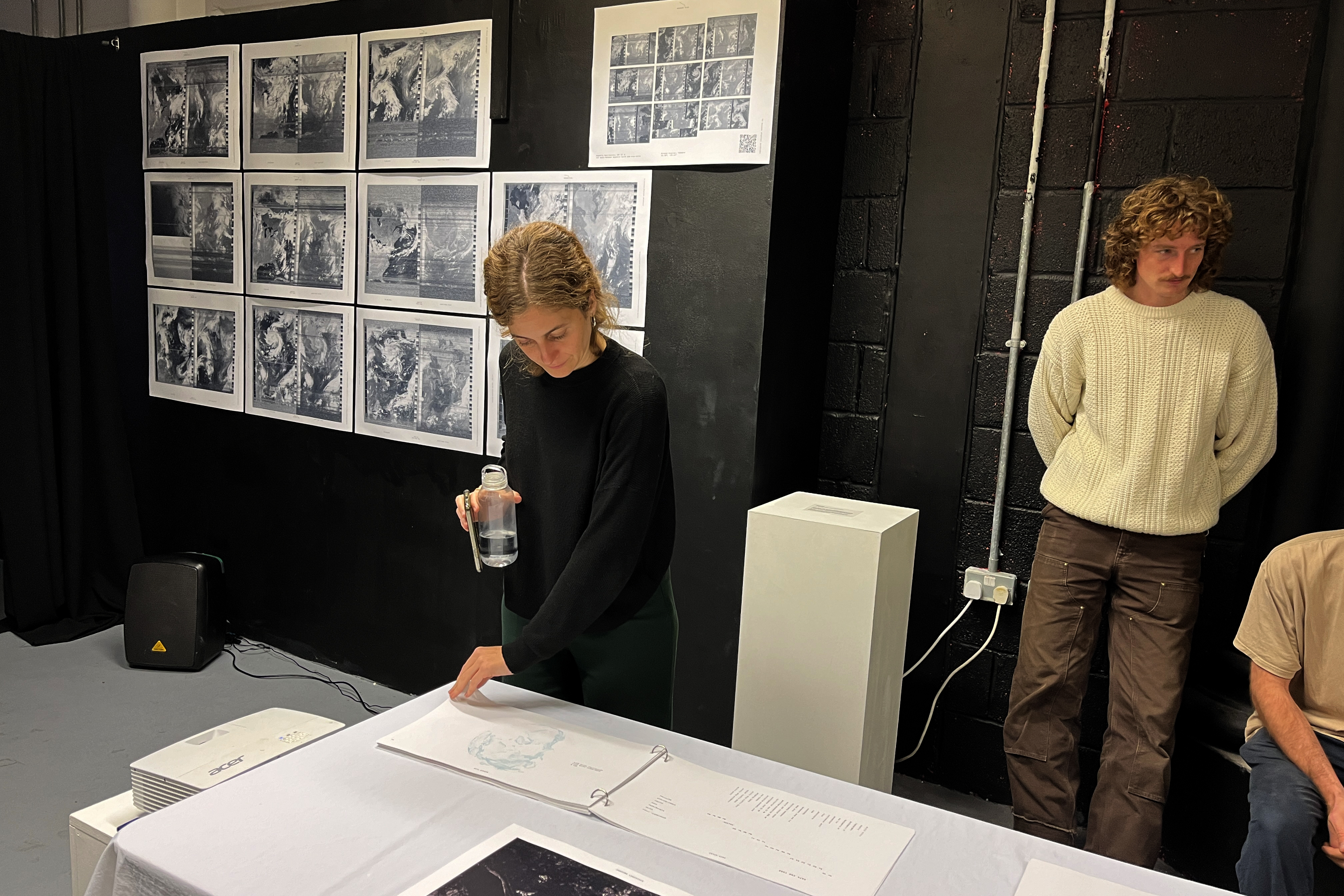
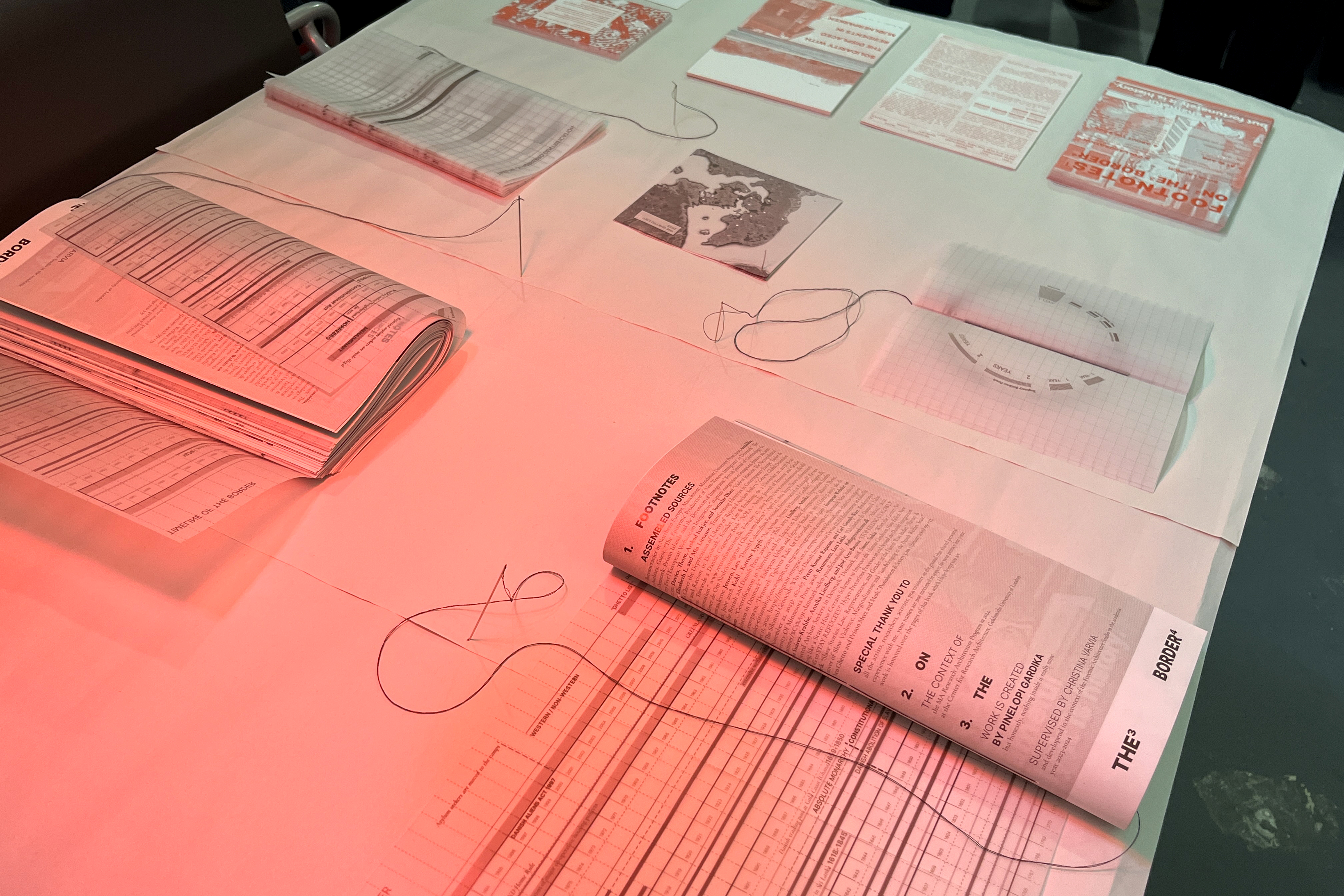
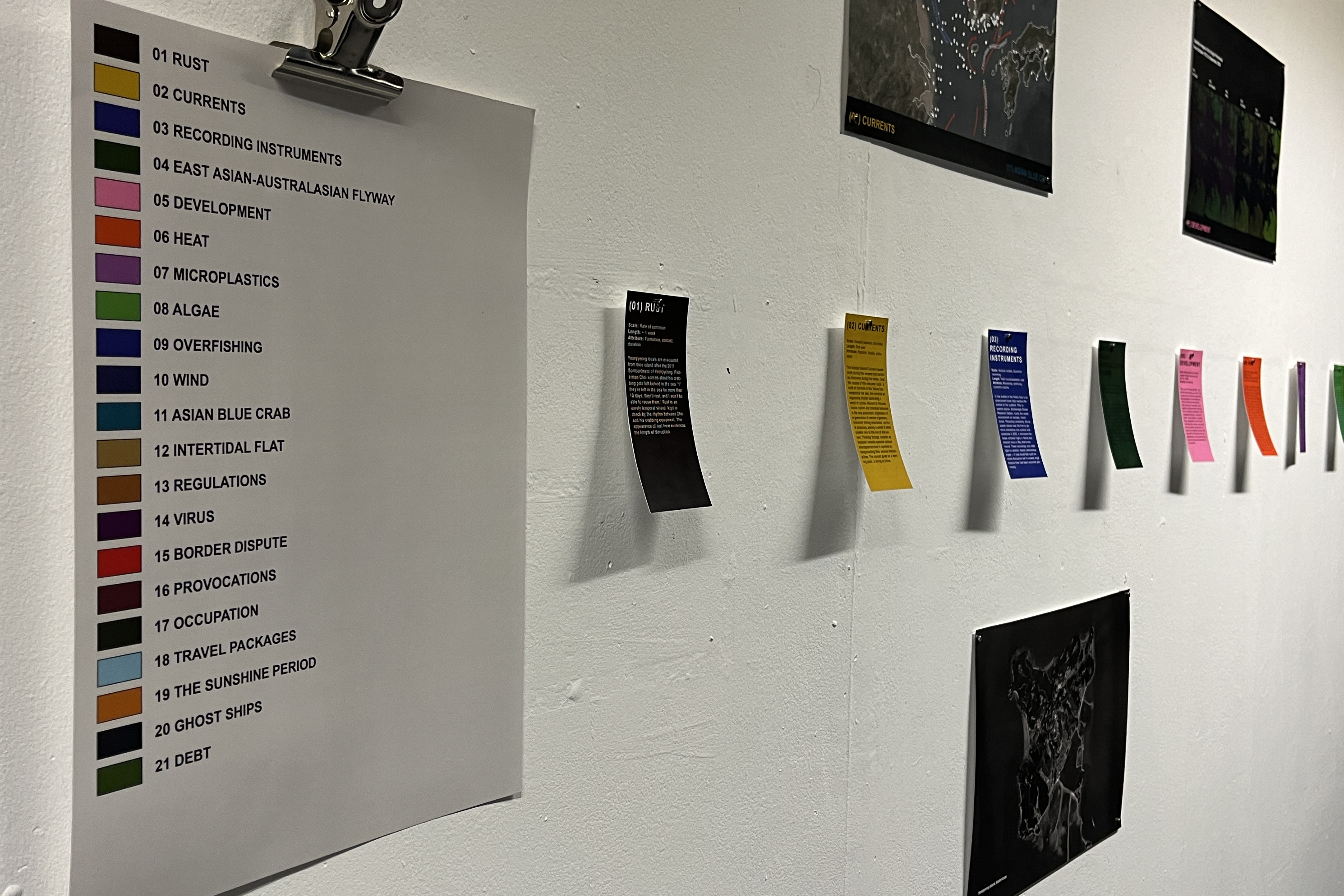
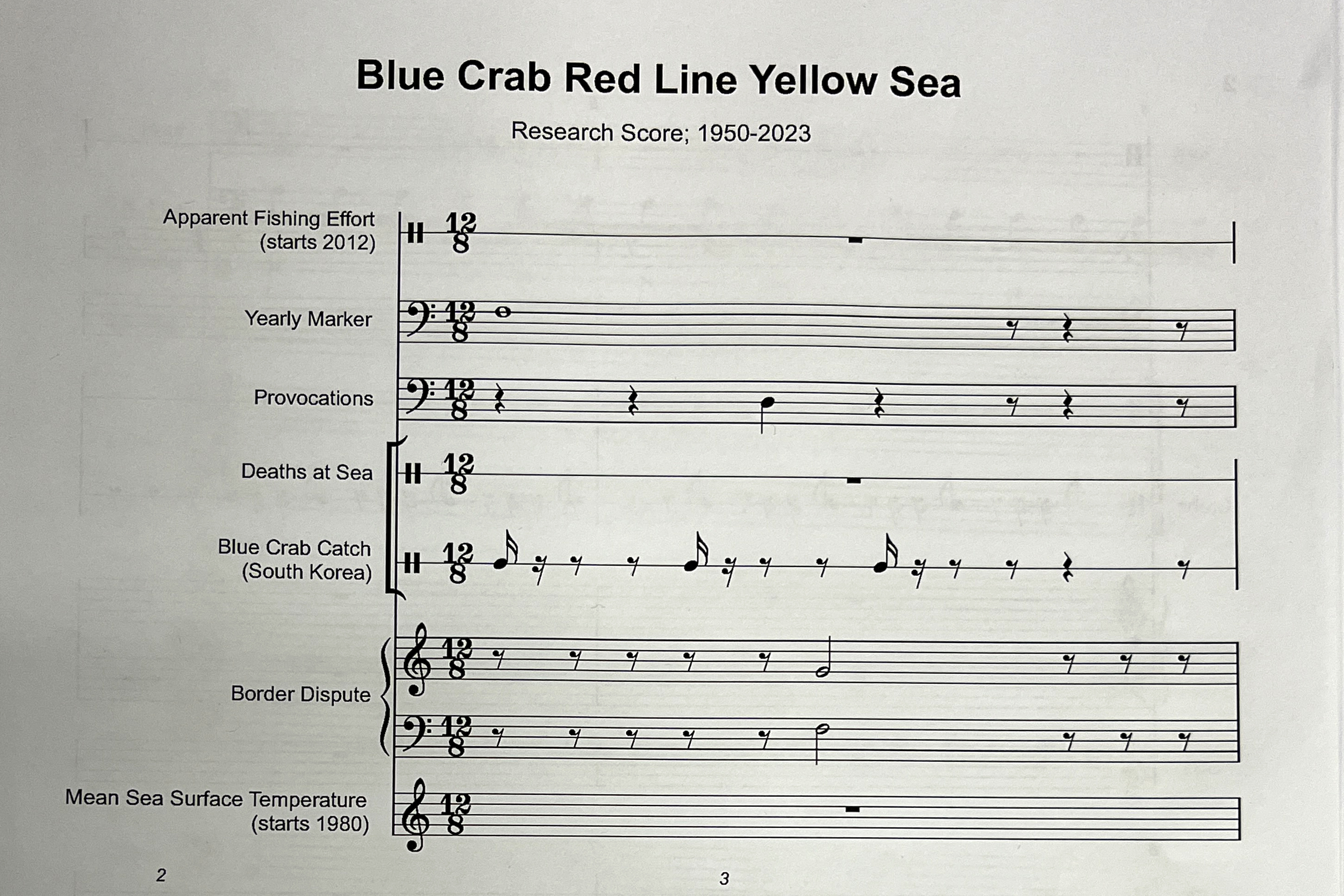
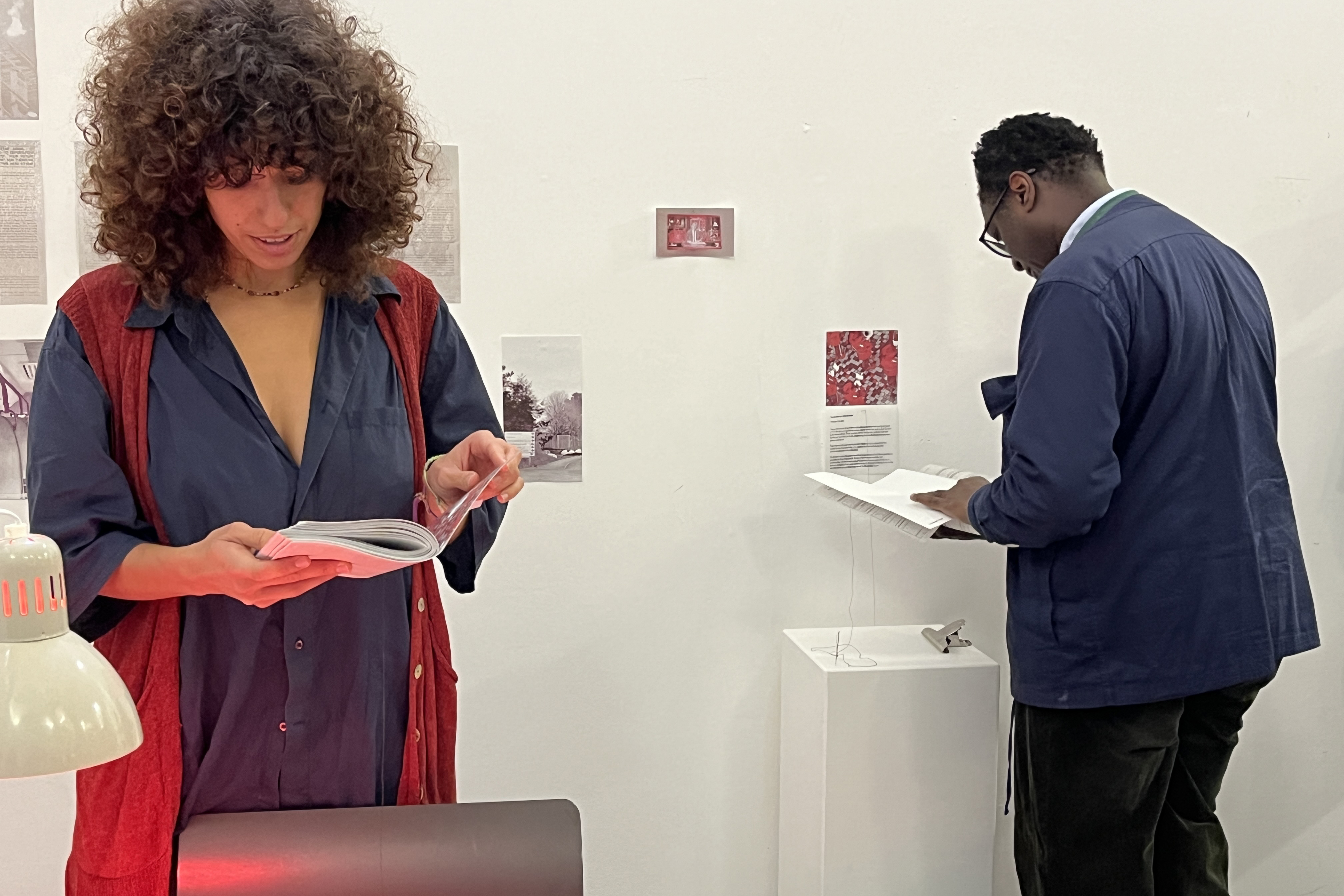
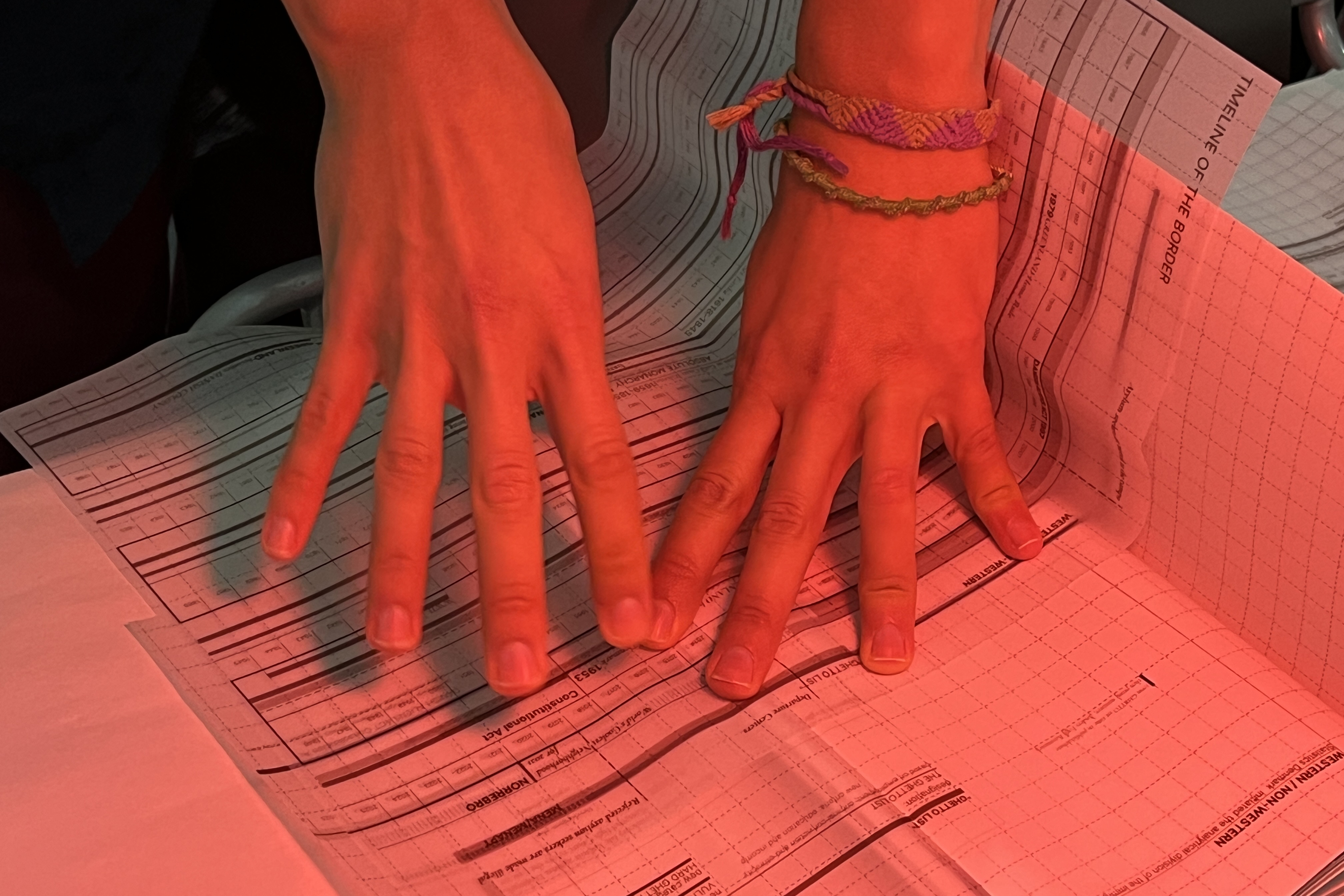
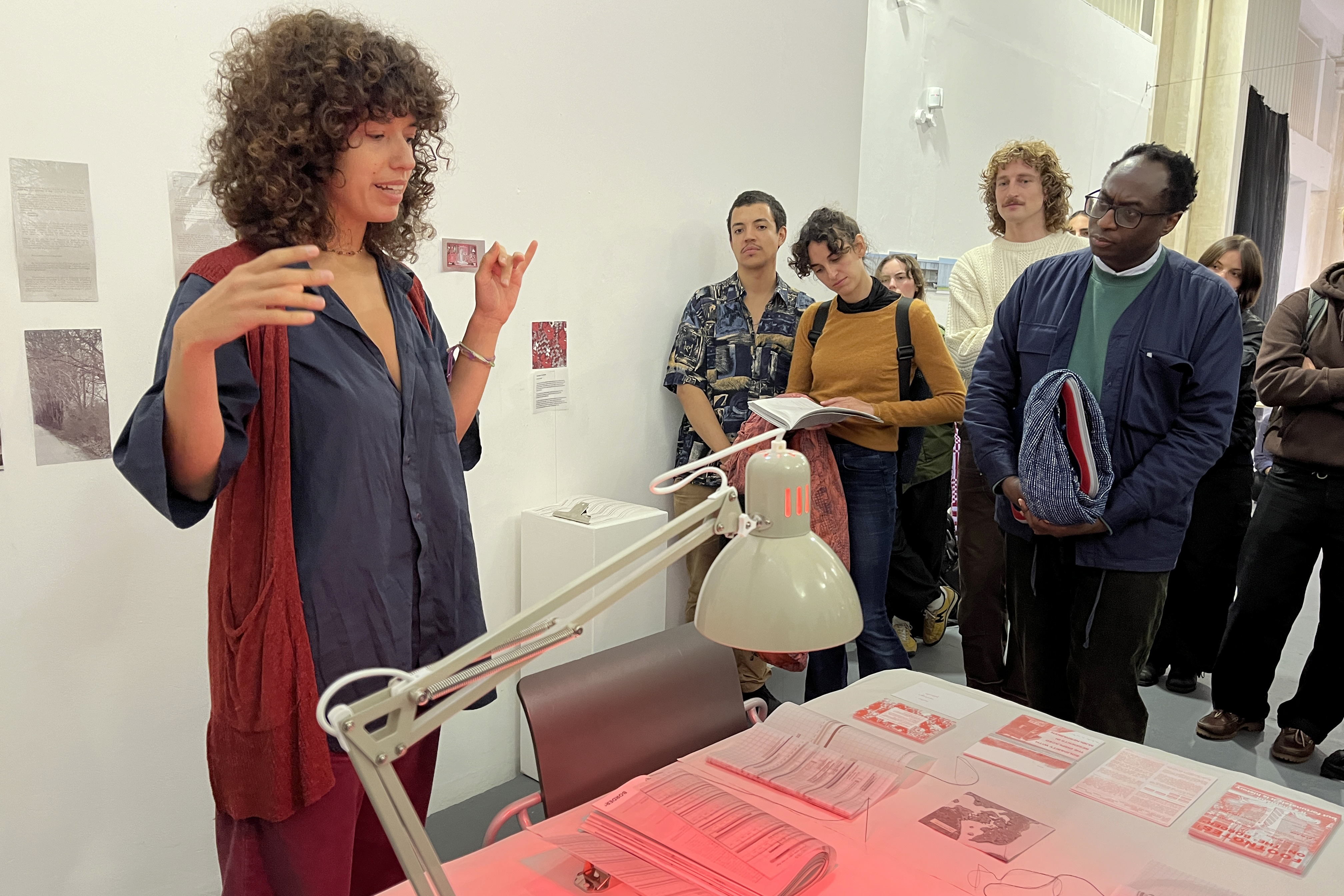

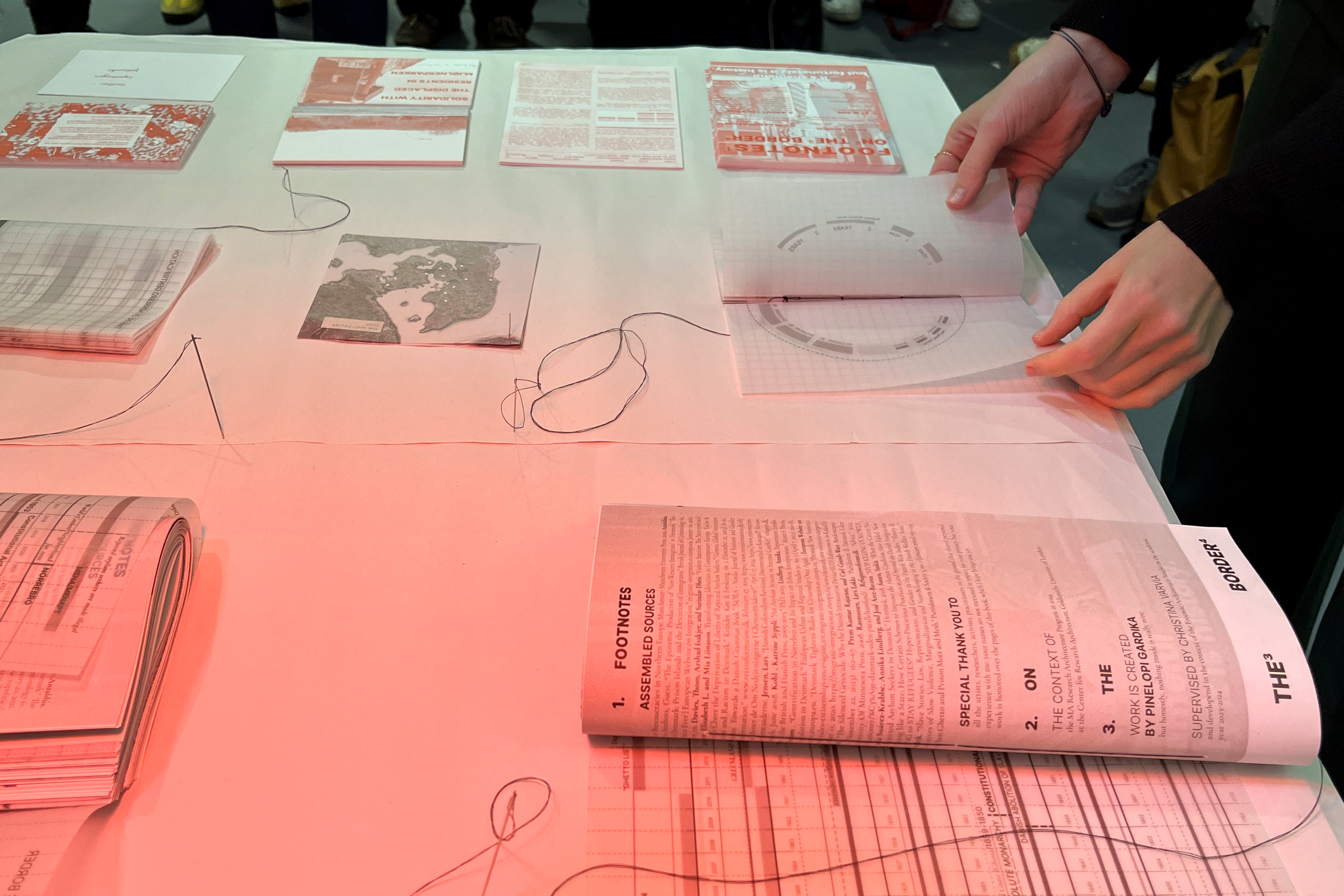
Objects in Mirror are Closer than you Think
MA Research Exhibition
2023
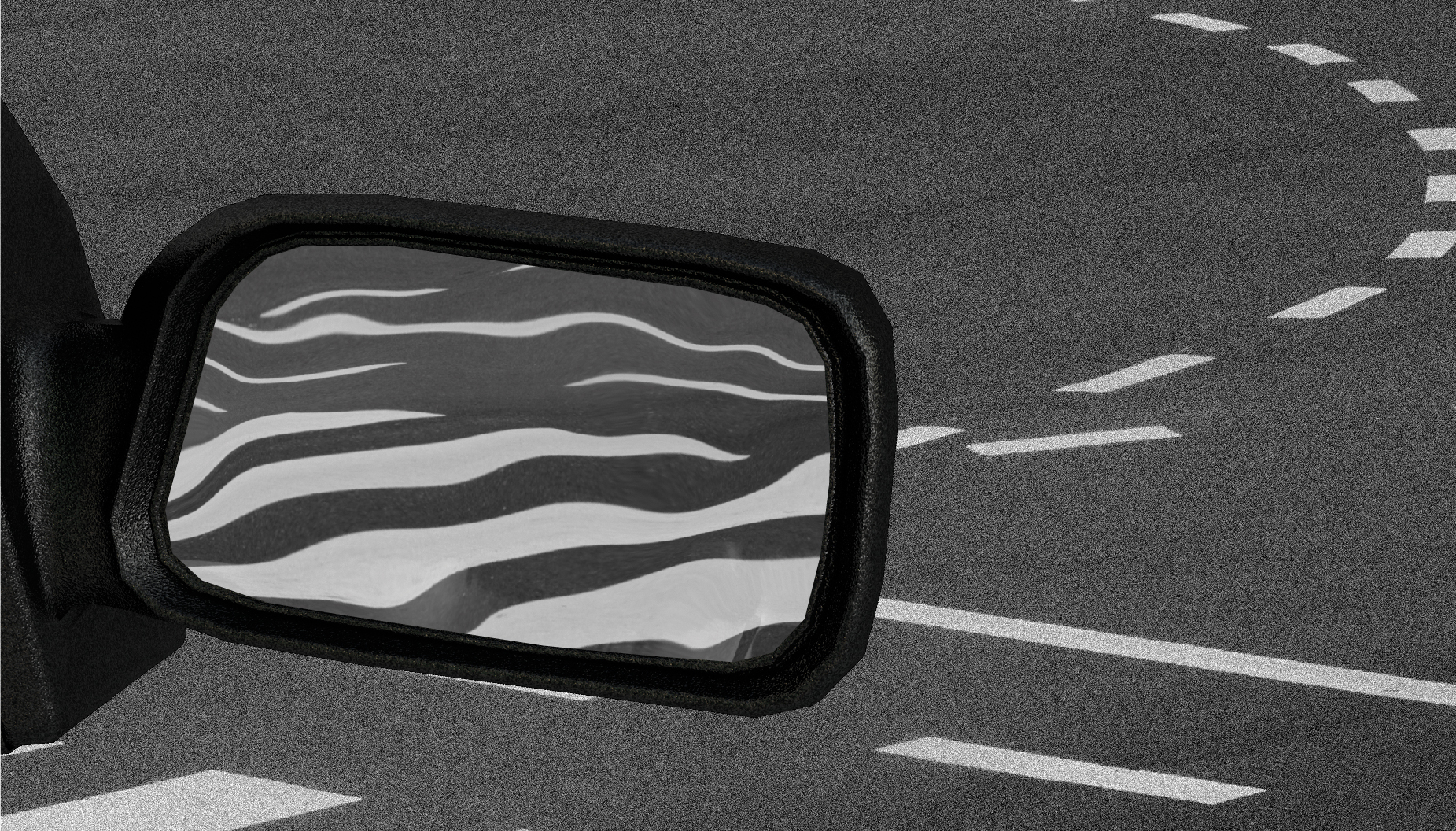
Small translucent stickers on wing mirrors read: objects in mirror are closer than they appear. These mirrors cover a blind spot, but in doing so they distort the object. Depending on the type of lens, a mirorred image can be deceptive. In this exhibition, the mirror does the work of reflecting and refracting the object under investigation, to examine the appearance–the “objectness”–of disparities, dislocations, containments, and material histories. We draw attention to the instability of those systems (institutions, laws, social relations, infrastructures) that present themselves as transhistorical and therefore natural. We reassemble the phrase to create three organising principles, which are: Objects in margins are closer than they appear. — These projects engage with the marginal, the borders the boundaries. Objects in mirror are more permanent than they appear. — These projects project the future onto the present. Objects in mirror are here. — These projects project the future onto the present. We draw on what Nancy Heimstra calls feminist periscoping—a methodology which, rather than looking directly at the object of investigation, moves around it. Like a periscope, which uses a mirror to observe objects which are out of sight, each research project focuses on reflections and refractions that are situated outside of the primary target of investigation.
But remember: the objects in mirror may be closer than they appear.
See 2023 MA research here
See 2023 MA research here
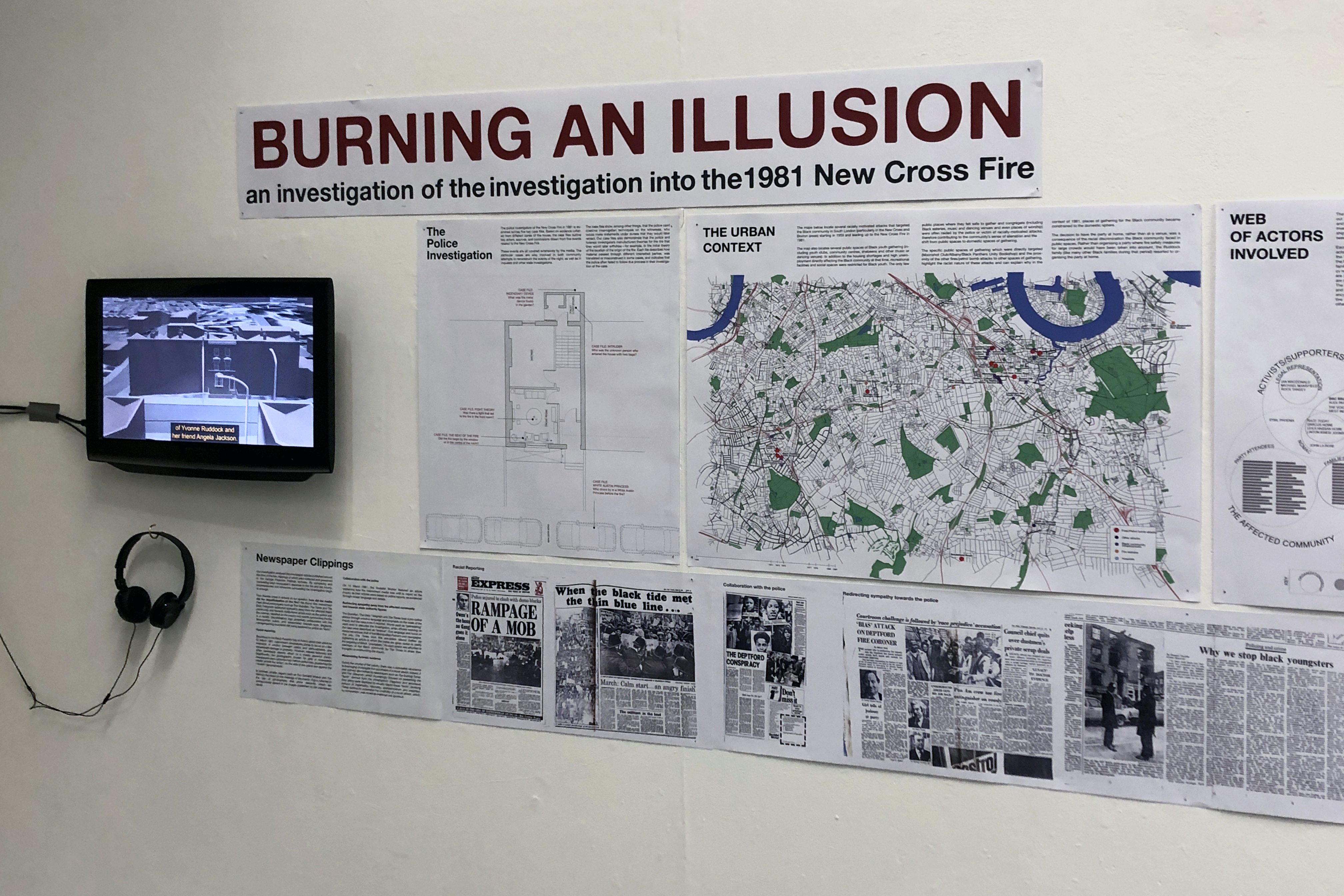
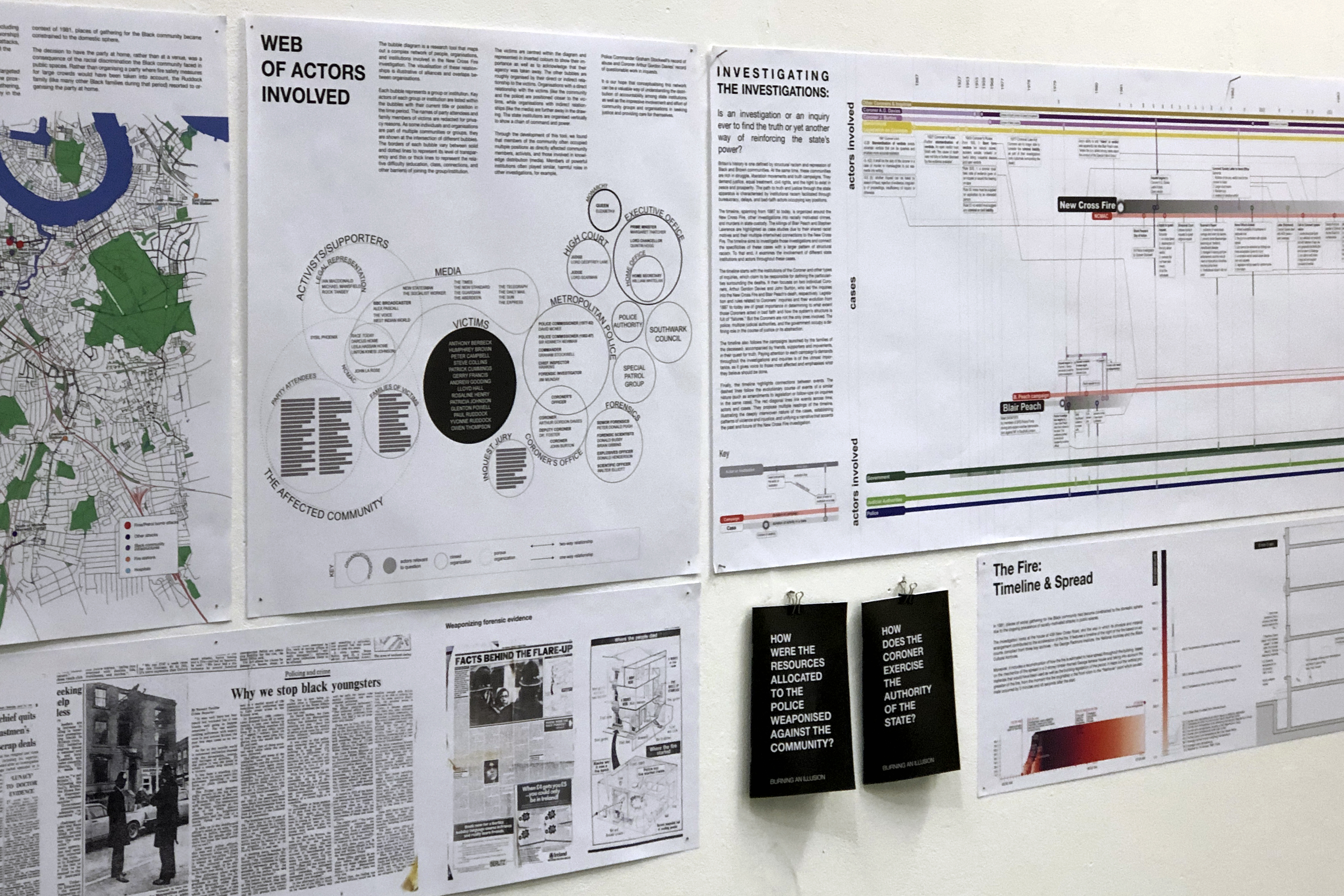
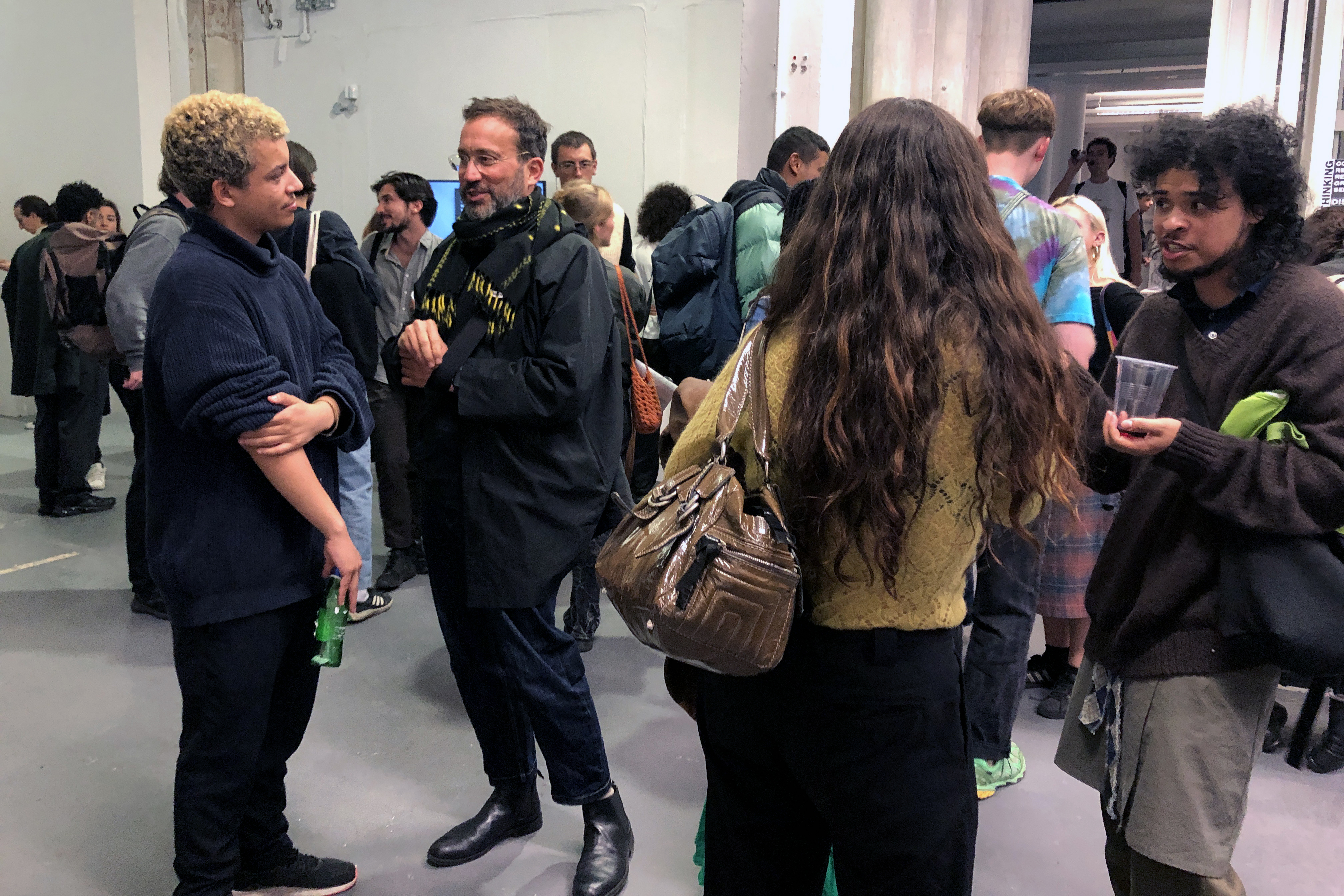
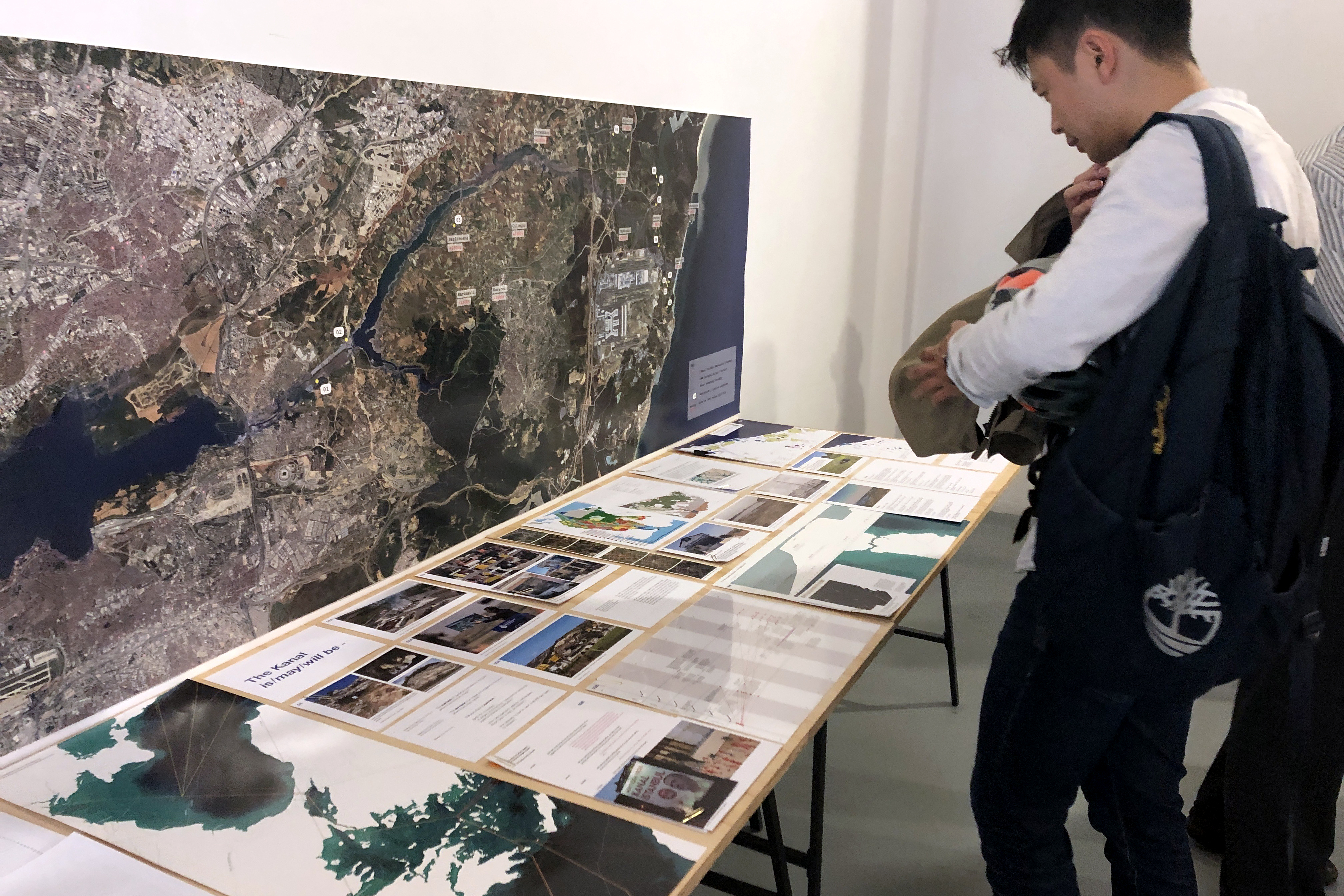
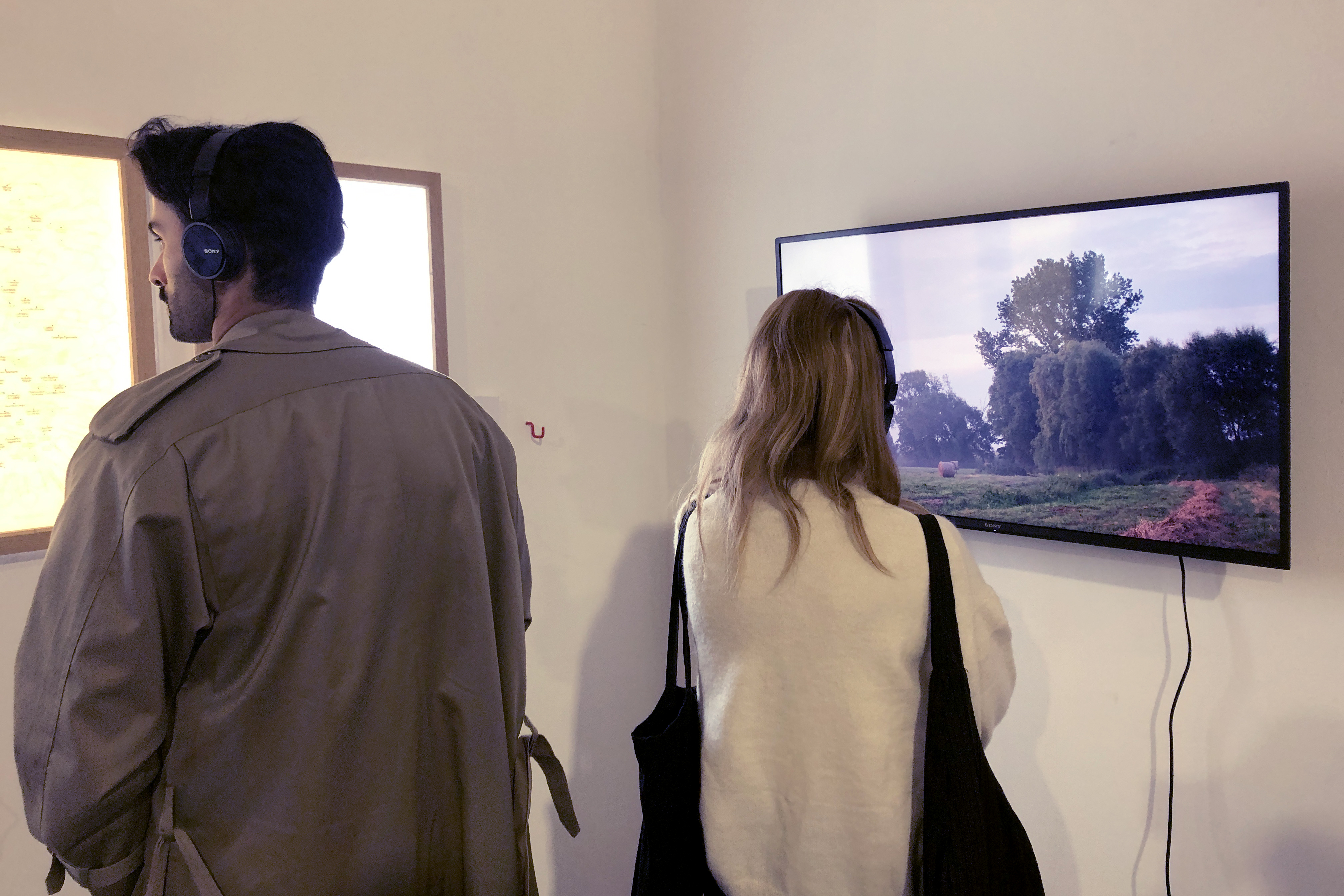
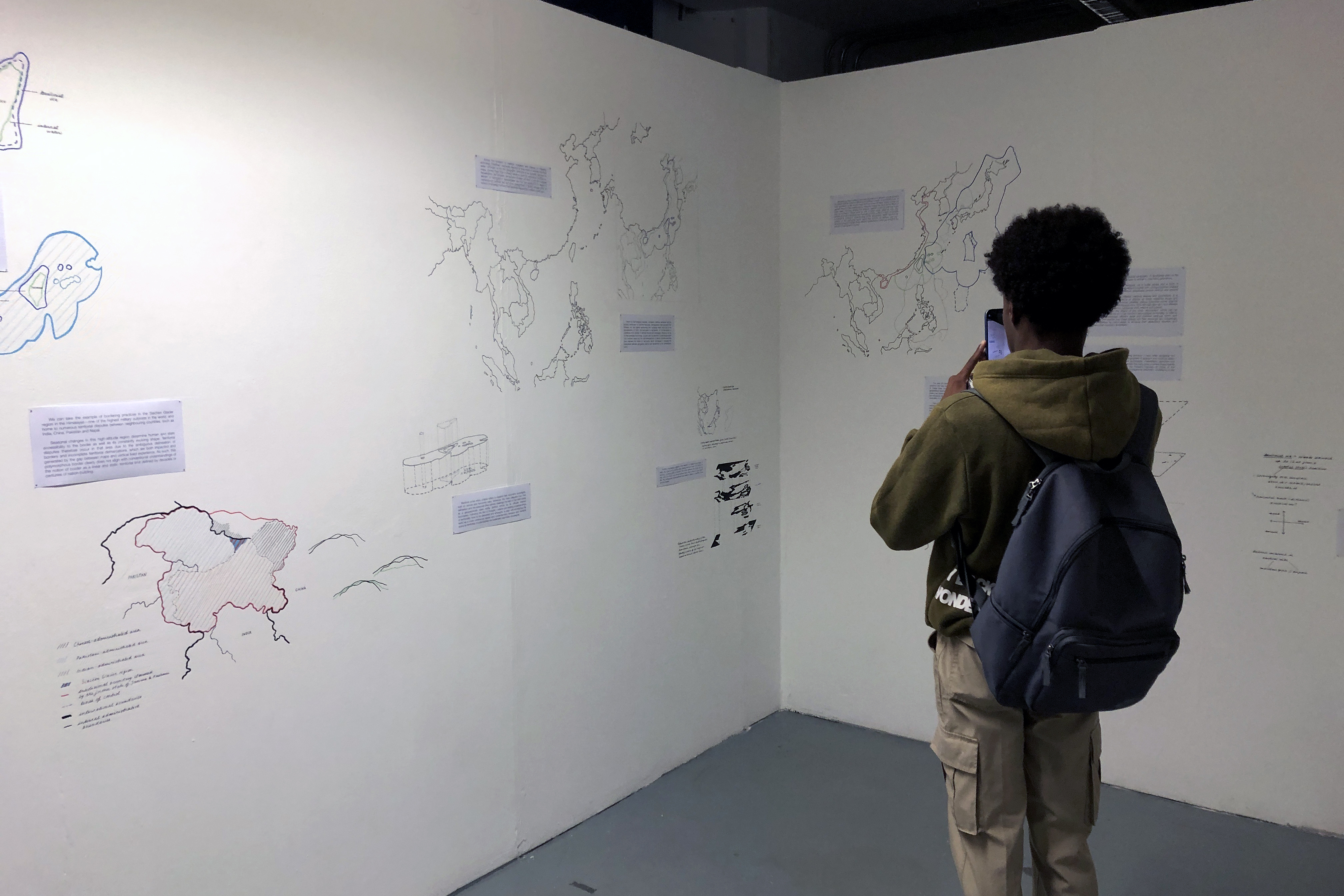
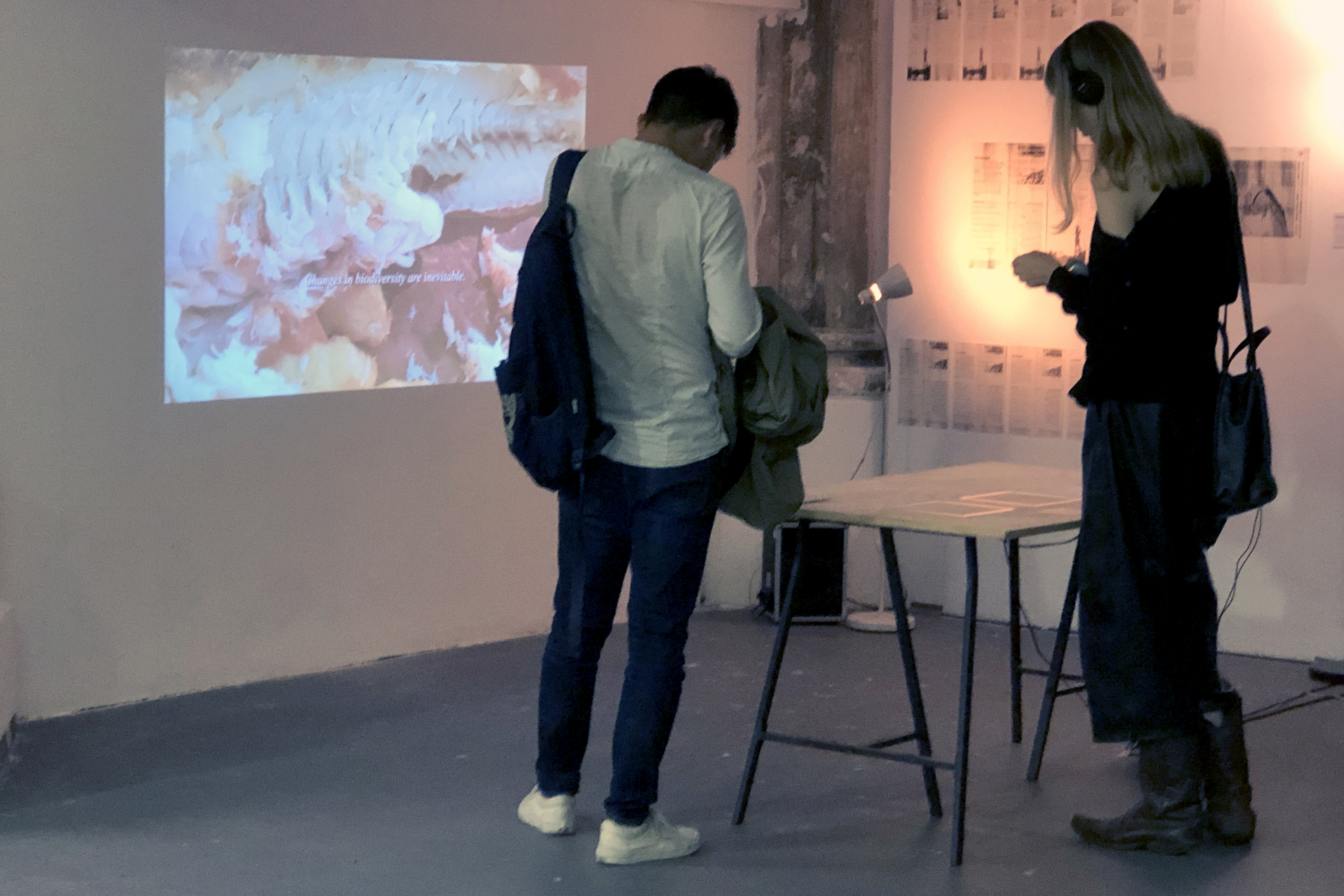
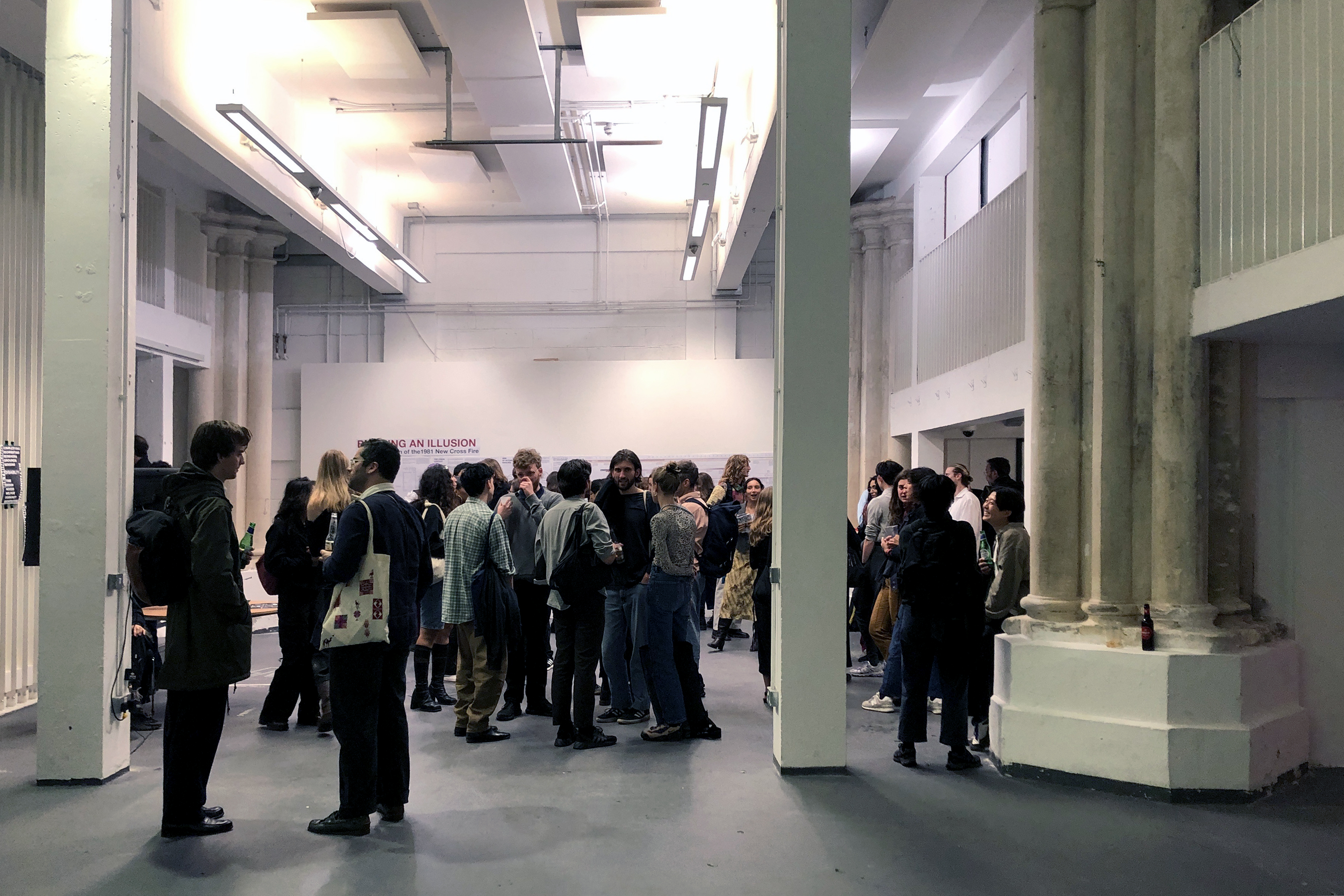
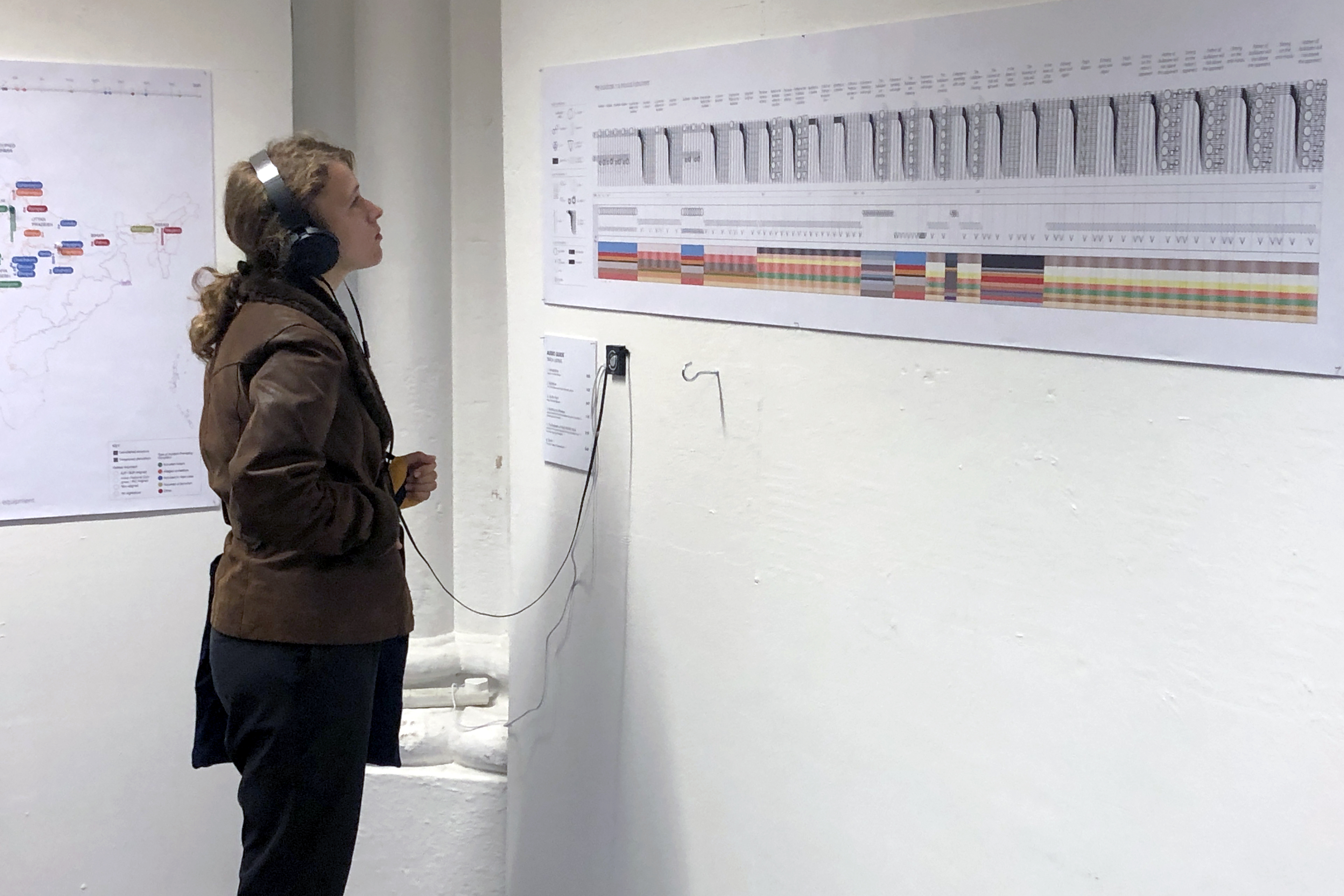
Fielding / Some Assembly Needed
MA Research Exhibition
2022
Each project in the FA Studio conceives ‘the forum’ as an ongoing process of assembly. In some cases, this involves the work of connecting to existing forums of protest. Elsewhere, it means imagining entirely new forums.
The assembly and reassembly of spatial, testimonial, digital, and mineral evidence forms the basis of six investigations. From reconstructing police killings in Brazil, to navigating the toxic ship-breaking port of Aliağa in Turkey, the exhibition moves through the legacies of war in Kosovo and Sri Lanka, before focusing on the forensic analysis of the British chicken industry and a spatial reading of digitised cultural dispossession.
Through modes of assembly, reassembly, and disassembly, these investigations both inform and take form in the design of the exhibition space. Guests are invited to attend, move through, and gather between these assemblies. We believe their and the wider public’s engagement with the presented struggles across forums is something that is very much needed.
See 2022 MA research here
The assembly and reassembly of spatial, testimonial, digital, and mineral evidence forms the basis of six investigations. From reconstructing police killings in Brazil, to navigating the toxic ship-breaking port of Aliağa in Turkey, the exhibition moves through the legacies of war in Kosovo and Sri Lanka, before focusing on the forensic analysis of the British chicken industry and a spatial reading of digitised cultural dispossession.
Through modes of assembly, reassembly, and disassembly, these investigations both inform and take form in the design of the exhibition space. Guests are invited to attend, move through, and gather between these assemblies. We believe their and the wider public’s engagement with the presented struggles across forums is something that is very much needed.
See 2022 MA research here

Thresholds + Encounters
MA Research Exhibition
2021
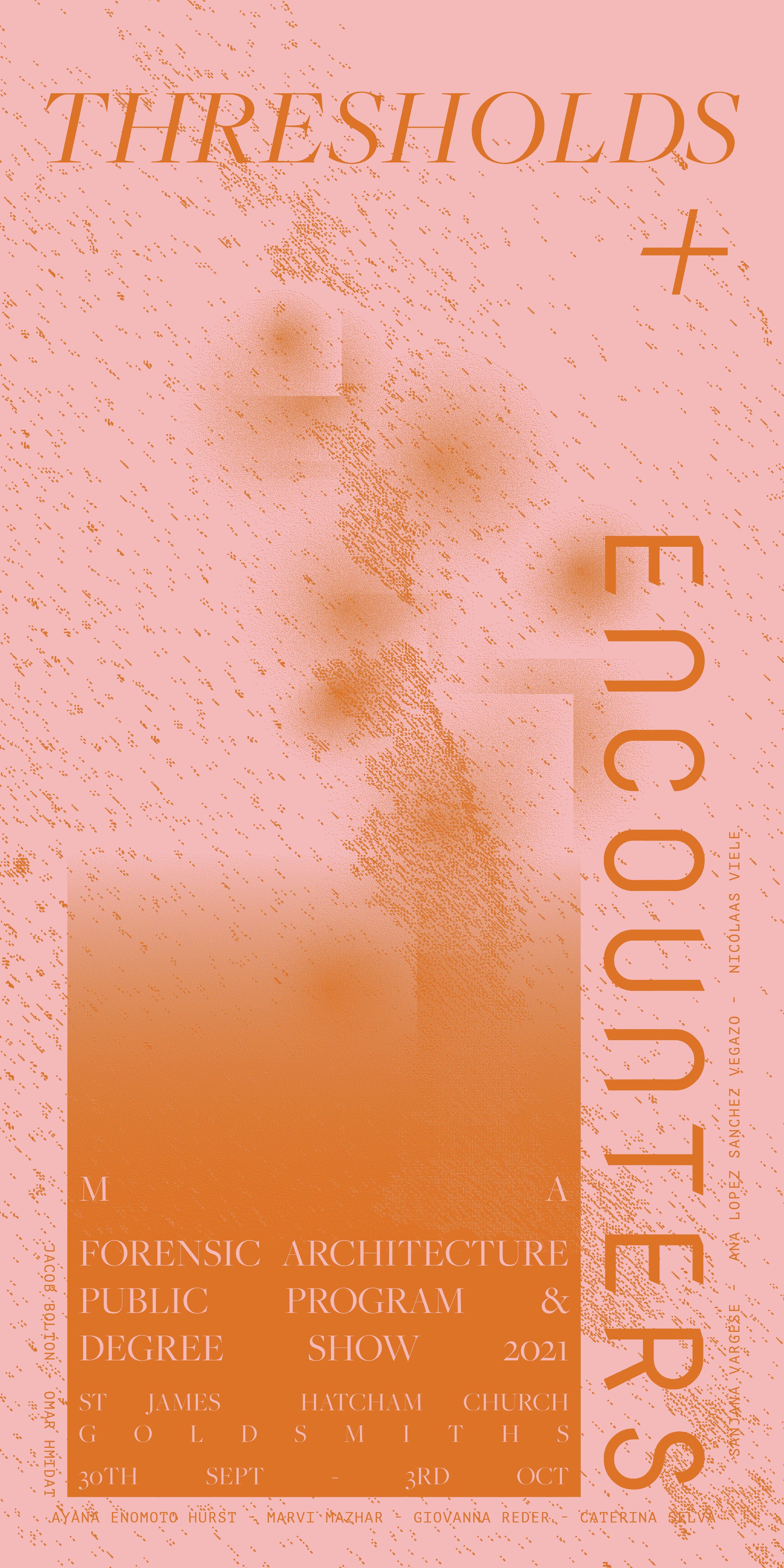
Thresholds + Encounters is the collective exhibition produced by students of the Forensic Architecture and Research Architecture Studios to investigate the multiplicity of approaches existing within the Centre for Research Architecture.
Thresholds — Thresholds are produced by a mesh/web of relations between infrastructures, technologies, historical forces, individual actors, sensors and language. Some thresholds are formed through material pressures – such as the number of carbon parts per million in our atmosphere that are thought to cause a 2° rise in global temperature. Other thresholds are ephemeral and contingent, shifting from terrain to terrain, propagating in various contexts to lead to different outcomes. Within our practice as students of the Forensic Architecture studio, we operationalised the threshold concept, drawing on our research and collective experiences to make visible the limits and delineations that have explicitly and inadvertently structured our investigations.
Encounters — An encounter is not simply a binary relationship between two (or more) actors. Rather, an encounter is a negotiation that is inherently contingent upon the mode, materiality, and form of the engagement. Whilst encounters might occur within the immediacy of the ‘now’, they unfold across multiple temporalities, enclosing both that precedes them and the emergence of possible futures. Encountering might have been anticipated but can never entirely be predicted. Although not all encounters have positive outcomes - some of these compositions might manifest as breathlessness, inaudibility, breakdown, incrementality, deviation, toxicity, incommensurability – we can apprehend something from all of them. Thinking-through and being-with encounters is our collective form of provocation, one that becomes a mandate for situated research as the requirement for informed political response-abilities. To encounter is also to become-with.
Download Thresholds + Encounters catalogue
See 2021 MA research here
Thresholds — Thresholds are produced by a mesh/web of relations between infrastructures, technologies, historical forces, individual actors, sensors and language. Some thresholds are formed through material pressures – such as the number of carbon parts per million in our atmosphere that are thought to cause a 2° rise in global temperature. Other thresholds are ephemeral and contingent, shifting from terrain to terrain, propagating in various contexts to lead to different outcomes. Within our practice as students of the Forensic Architecture studio, we operationalised the threshold concept, drawing on our research and collective experiences to make visible the limits and delineations that have explicitly and inadvertently structured our investigations.
Encounters — An encounter is not simply a binary relationship between two (or more) actors. Rather, an encounter is a negotiation that is inherently contingent upon the mode, materiality, and form of the engagement. Whilst encounters might occur within the immediacy of the ‘now’, they unfold across multiple temporalities, enclosing both that precedes them and the emergence of possible futures. Encountering might have been anticipated but can never entirely be predicted. Although not all encounters have positive outcomes - some of these compositions might manifest as breathlessness, inaudibility, breakdown, incrementality, deviation, toxicity, incommensurability – we can apprehend something from all of them. Thinking-through and being-with encounters is our collective form of provocation, one that becomes a mandate for situated research as the requirement for informed political response-abilities. To encounter is also to become-with.
Download Thresholds + Encounters catalogue
See 2021 MA research here
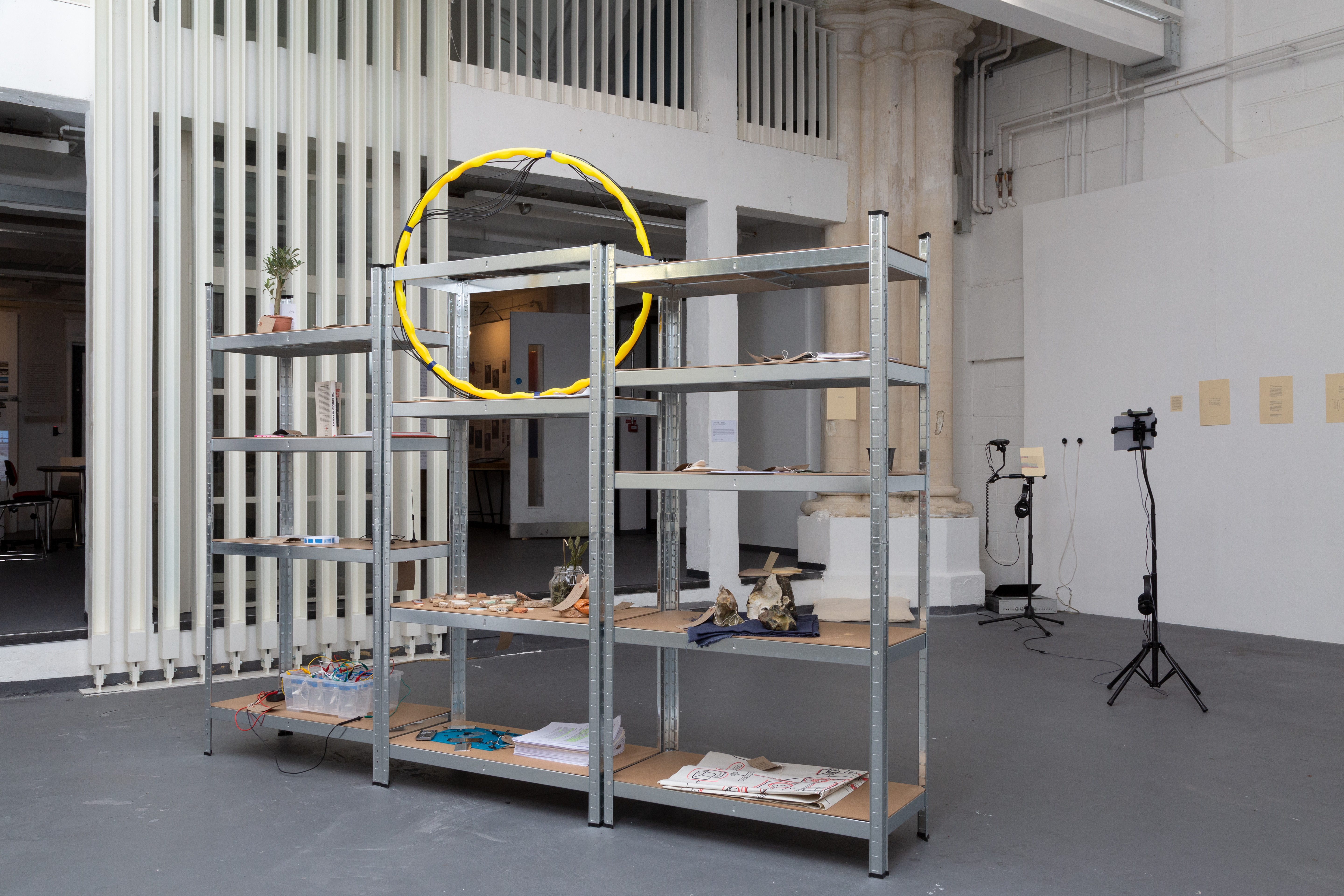
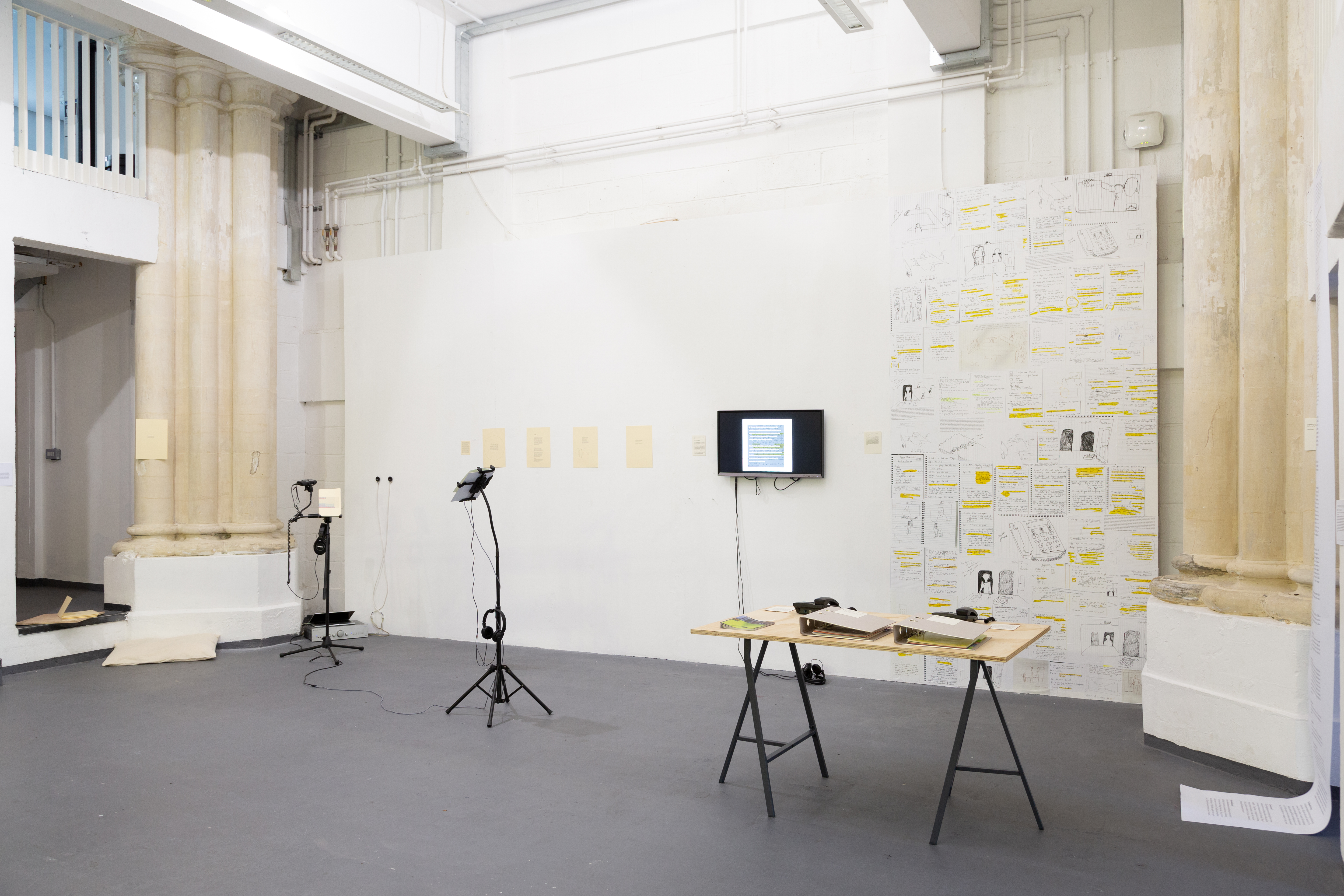


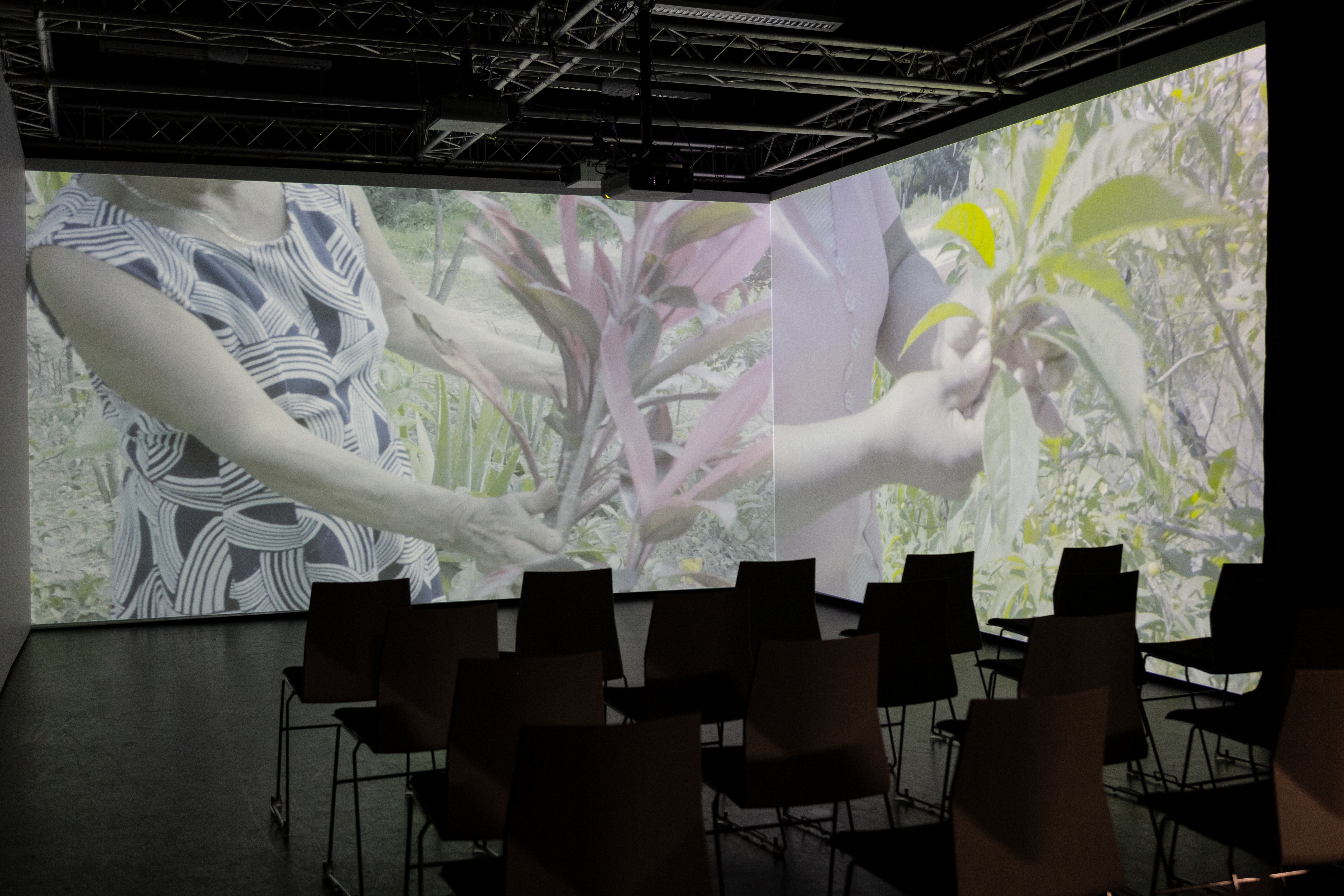
Common Sensing
MA Research Exhibition
2019

The research exhibition Common Sensing documents the workings of a series of collaborative projects which attempt to develop practices of Common Sensing. The exhibition featured the work, archives, and online platforms of the Research Architecture Studio, as well as a series of panel discussions, workshops, and screenings organised by the Forensic Architecture Studio in conjunction with the launch of the publication “Lines of Inquiry: Glossary, Media, Field Manual”.
Alongside the exhibition, MA students organised a series of public provocations that brought practice and theory together. Guest participants included Julian Henriques, Lorenzo Pezzani, Susan Schuppli, Alberto Toscano, (Goldsmiths, University of London), D'bi Young Anitafrika (dub poet), Mariama Eversley (Blights Out), Helene Kazan (Royal College of Art), Katie Mathews (filmmaker and producer), Naima Sakande (Women's Justice Initiative, Centre for Criminal Appeals), Samaneh Moafi (Forensic Architecture), and Ben Segal (Abrams Law Clinic, Chicago).
Screening of Mossville: When Great Trees Fall, 2019
See 2019 MA research here
Alongside the exhibition, MA students organised a series of public provocations that brought practice and theory together. Guest participants included Julian Henriques, Lorenzo Pezzani, Susan Schuppli, Alberto Toscano, (Goldsmiths, University of London), D'bi Young Anitafrika (dub poet), Mariama Eversley (Blights Out), Helene Kazan (Royal College of Art), Katie Mathews (filmmaker and producer), Naima Sakande (Women's Justice Initiative, Centre for Criminal Appeals), Samaneh Moafi (Forensic Architecture), and Ben Segal (Abrams Law Clinic, Chicago).
Screening of Mossville: When Great Trees Fall, 2019
See 2019 MA research here

Para-Link
Research Exhibition
2018

para-link showcases forensic and research architecture MA projects over four days with a diverse public programme at Laurie Grove Baths exhibition space.
Work is acknowledged in the margins, linked in the superscript. Evidence is collected off-page and underlying themes carried in the subtext. Ghost-written, para-linked references connect and reveal how we work. Curated and organised by the MA Research Architecture students, para-link is organised by a conceptual frame that demonstrates the interactions that happen within and around projects and research. The CRA 2018 MA cohort includes architects, filmmakers, artists, lawyers, activists, and technologists, who have spent the last year working independently and collectively to generate research processes, methodologies and solutions for some, of what we think, are the most pressing political and environmental issues—this show is a culmination of that work.
See 2018 MA research here
Work is acknowledged in the margins, linked in the superscript. Evidence is collected off-page and underlying themes carried in the subtext. Ghost-written, para-linked references connect and reveal how we work. Curated and organised by the MA Research Architecture students, para-link is organised by a conceptual frame that demonstrates the interactions that happen within and around projects and research. The CRA 2018 MA cohort includes architects, filmmakers, artists, lawyers, activists, and technologists, who have spent the last year working independently and collectively to generate research processes, methodologies and solutions for some, of what we think, are the most pressing political and environmental issues—this show is a culmination of that work.
See 2018 MA research here


